
Latest Activities

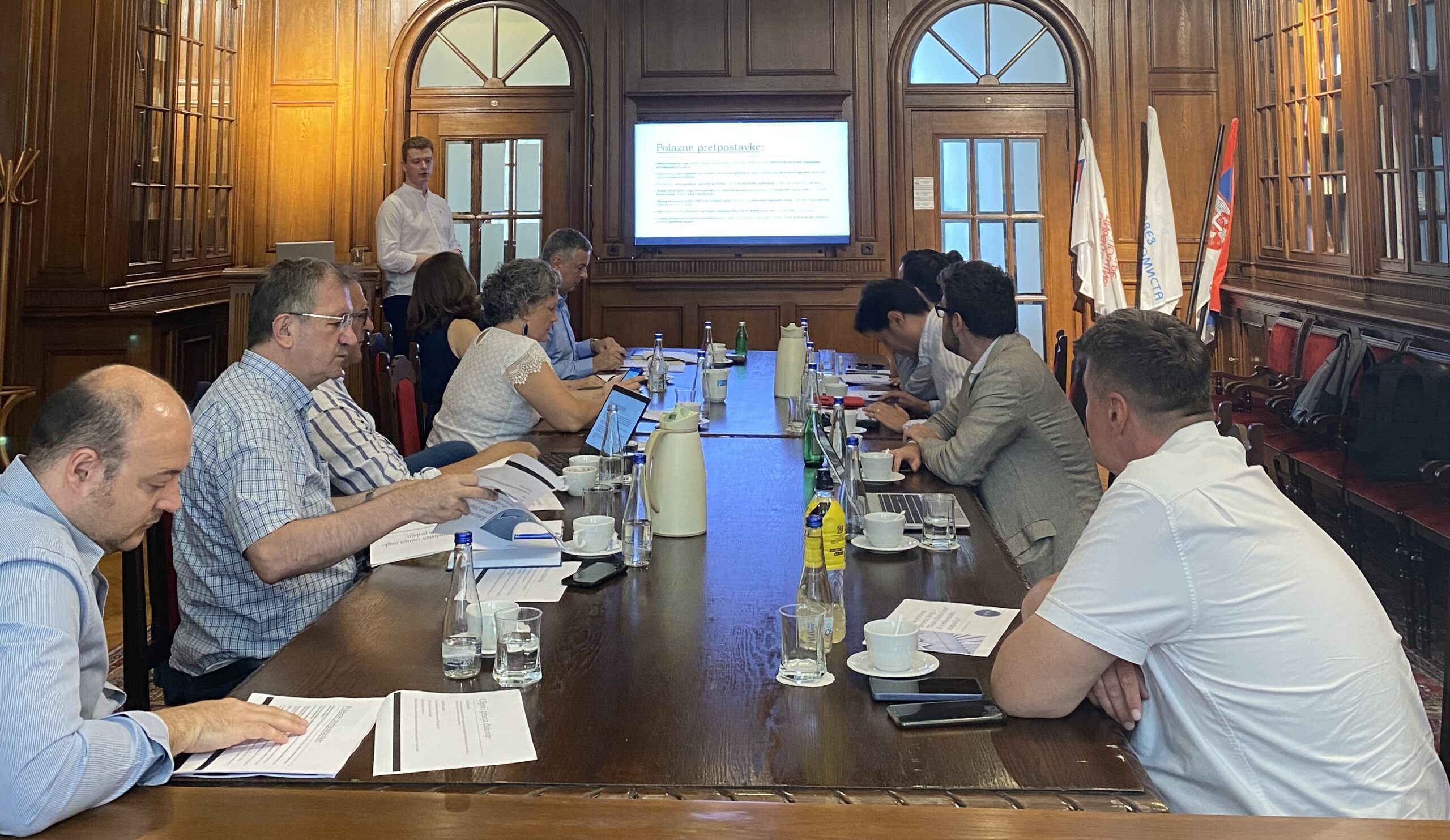
(SR) Konkurentnost privrede Srbije – „Skok u budućnost“ ili u ekonomsku stagnaciju?
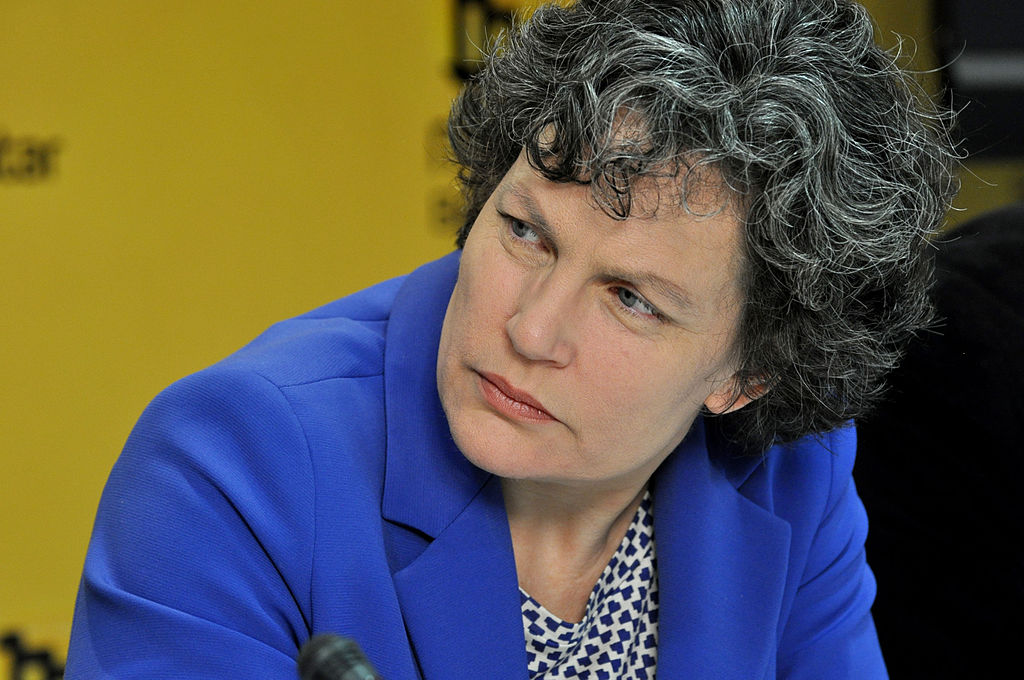
In the Shadow of the Canopy: The Shaky Foundations of Serbian Economic Growth
Protests certainly weren’t the main culprit for the slowdown in economic growth in the first quarter of this year, but they exposed the fact that Serbia’s economic growth in recent years has been resting on increasingly weak foundations.
President Vučić was blaming protests for “scaring away investors and tourists” even before the data was released. It turns out that the protests indeed scared one investor – the state itself, because, in the President’s own words: “Now there isn’t a mother’s son who will sign any paper.” This is evident in government capital expenditures which, in the first quarter of the year – a quarter when acceleration of expenditures was expected primarily for Expo-related projects – actually fell by 3.7% in nominal terms, and by as much as 7.8% in real terms. Rapid government investments have served until now to maintain economic growth even as export growth slowed. It seems that President Vučić has finally exhausted the quick methods of boosting economic growth.
Growth Structure and Changes in FDI
According to flash projections from the Statistical Office, GDP growth in the first quarter of this year compared to the first quarter of last year fell to 2.0%, versus expectations of 3.5%. These expectations took into account the exceptionally high base in the first quarter of 2023, while 4% was expected for the whole of 2025. The key contributor to this underperformance was the slowdown in public investments. There was also a slowdown in the inflow of foreign capital, which halved compared to the exceptionally high inflow in the first quarter of last year.
Serbia’s solid economic growth over the past years has so far been primarily associated with strong FDI inflows. Serbia stood out because, in the period from the pandemic to the end of 2024, these remained relatively high and stable (growing from €3.8 billion in 2020 to €5.2 billion in 2024). However, FDI is not a homogeneous category. During the observed period, their composition and perspective of contribution to sustainable development of the country changed significantly.
Frequent ribbon-cutting ceremonies in front of new, foreign, mostly German factories have accustomed the Serbian public to equate foreign investments with investments in manufacturing. These were primarily aimed at creating as many jobs as possible, which was indeed a priority at the beginning of this regime. FDI in export-oriented manufacturing appears beneficial also because it typically brings knowledge, technology, and generates foreign currency inflows. However, investments in manufacturing are just one component of FDI. They made up only 38% of the total in 2021 when they reached their peak in real terms (€1.5 billion). Since then, they have been declining, so that in 2024 they amounted to only €0.6 billion (11% of the total).
Since 2021, only FDI in mining has been growing steadily – doubling in each of the past two years, reaching €1.4 billion in 2024. Production and exports of ore and copper concentrates have also grown, which undoubtedly contributed to the overall measured GDP growth. However, given the lack of transparency in exploitation conditions, assessing the actual effect of this project on growth and development, especially compared to what might have been possible, would require a separate study. In any case, we have no doubt that this represents a missed opportunity. While copper prices on the global market are booming, with prospects for further long-term growth, Serbia’s mining royalties and negotiating power with China are low.
The largest component of FDI in 2024 (€1.5 billion) consisted of investments in the construction and real estate sector, whose contribution to GDP growth, and especially to foreign currency inflows after the investment period, is most questionable. Their actual amount is also questionable. On one hand, it is possible that in some cases, government borrowing through bilateral credit arrangements is first reflected in statistics as capital inflow from construction companies from the respective country, and only later as the Republic of Serbia’s debt. In that case, we’re not talking about an inflow of private, market-driven capital, but about Serbia’s public funds. It’s also likely that, in the context of corrupt activities, part of this money consists of “laundered” domestic capital, especially since the counterpart to this large item in the structure by country can mainly be seen in inflows from tax havens.
Exports – Crises and Opportunities
The trend in goods exports, especially manufacturing products, follows the described investment flows and has been contributing less and less to economic growth for some time. Since the reversal in the structure of FDI flows, its real growth has been halving in both 2023 and 2024, while in the first quarter of 2025 it even decreases in real terms, despite the growth in exports of ores and non-ferrous metals. The main “culprits” are, of course, difficulties in the European economy, primarily Germany. These have especially affected the part of Serbian exports included in the global value chains of the automotive and related industries, as well as those industries that rely most heavily on cheap labor. This has undoubtedly been contributed to by the fast growth of the “lowest” wages alongside the appreciation of the dinar.
Thus, during 2024, we witnessed a reduction in the number of employees in a significant number of foreign factories – for example, Yura, Mei Ta, as well as the closure of others – Adient, Siting (closed its facility). The decline in exports of these products in the first quarter of 2025 accelerated to €430 million, almost as much as in the entire 2024.
It’s clear that these investors aren’t packing up because of protests, but rather due to a longer-term and deliberate process. Even as such, their departure is relatively quick because the investors who are leaving are those who came with the least capital investment and the least prospect of their own development, easily attracted by subsidies or political agreements.
On the other hand, there are two positive stories in exports. One is the strong growth in service exports – especially ICT (nominally 17% in the first quarter of 2025) – which is in line with the positive trend in FDI inflows to this sector. This inflow, we must emphasize, could only have been encouraged by the protests. But IT services are also exported by domestic companies, which is in line with the second piece of good news. That is the continued growth in goods exports from sectors where Serbian producers are predominantly present – food, metal, plastics industry, wood (furniture and other machinery have been declining lately).
From conversations with these entrepreneurs, we learn that they are managing in conditions of slow European demand by offering competitive goods when European companies are looking for savings, or by turning to markets of former “third world” countries. They are also doing well in the wider region. Of course, this represents a missed opportunity, because domestic production and exports are not only inadequately supported but are discriminated against by tax and subsidy policies, and weak export support that puts them at a disadvantage compared to the competition.
Mortar in Exchange for Exports
It is important that during this period, public investments replaced goods exports as the engine of economic growth. Government investments in 2021 reached 7% of GDP and have since grown fast enough to maintain and even raise that level in 2024. This would be quite alright if it served to raise the productivity of the domestic economy, especially for people with the lowest wages – if their education and on-the-job training were improved, if they were prepared for more complex jobs, or if the infrastructure that foreign factories are abandoning was prepared, with appropriate programs, for domestic SMEs that are desperate for industrial locations.
Investment in road infrastructure was certainly productive in earlier years, when investments filled obvious, urgent needs, and with less haste. However, in recent years, the selection of investment projects has been done without clear criteria, consists of too much cement, not to say mortar, and too little equipment, and it is done at the expense of investing in the state’s capacity to provide adequate support and development services to the economy and citizens.
The collapse of the Novi Sad railway station canopy is not an isolated incident, just as the accident at TENT 3.5 years ago was not an isolated incident, but the tip of the iceberg of delayed or poorly executed investments in EPS and other public enterprises.
Conclusion
For President Vučić, the slowdown in government investments represents a huge problem. Not only does it increase the risk of missing deadlines for the Expo, but, as we have shown here – the key (short-term) driver of economic growth is being lost. And this is happening precisely at a moment when, under conditions of political crisis, the President especially needs to produce results. According to public statements, the President still believes that the lost time can be made up.
For citizens, the problem is that the political elite blames protests for problems it is unable to solve. It is unable to raise the productivity of the economy through investments, because that requires dialogue with it; it is unable to lead them quickly and responsibly, because that requires competent and motivated civil servants. It is unable to see, let alone activate, the potential that lies in the domestic economy – because this requires fair market competition, and again – competent and motivated civil servants, as well as productive and service-oriented public enterprises. It is unable to seize better opportunities that are still opening up in the restructuring European economy – because that requires the work of an entire network of people and competent and motivated civil servants.
In any case, it is better for citizens that economic growth slows down than for some “mother’s sons” to give in under pressure again.
Author: Kori Udovički, Chairwoman of the Board, Director, CEVES

CEVES Newsletter – The shaky foundations of Serbia’s growth; Is Serbian economy suffering from Dutch disease?
We share with you our newsletter for the first quarter of 2025 – which, in addition to a brief overview of the most important economic trends in Serbia and the EU, also provides our reflections on the key challenges shaping the economic and political climate, as well as CEVES’ activities during this period.
The past quarter saw Serbia’s economy slow its growth, with global economic policy uncertainties and possibly a domestic political crisis beginning to spill over into economic sentiment. In the “CEVES Perspective” section, we address signs that institutional weaknesses (rather than protests) have started visibly hindering economic growth (unlike sustainable development, which they have been obstructing for some time).
According to flash estimates, Serbia’s GDP growth significantly slowed in Q1 2025 (2% vs. 3.9% in 2024), primarily due to a continued slowdown in both public and private investments that began in the second half of 2024, as well as a further decline in goods exports to Western markets. Although direct data is not yet available, this is inferred from a sharp decline (-55%) in foreign direct investments in the first quarter of this year and a drop in the state’s capital expenditures (-8%) throughout the quarter compared to the same period last year. The value of exports of ICT and other creative services, as well as ores and base metals, continued the strong growth from the previous period, likely explaining why growth still remained positive.
Change in the export structure is reflected in the growth of exports from the mining and base metals sectors (+16%), alongside a simultaneous decline in exports from industries involved in global value chains, such as the automotive industry and related sectors, as well as those relying on low labor costs (-20%). Service exports, led by ICT, recorded real growth and made a significant positive contribution. Domestic consumption remained the only stable component: public consumption grew slightly in real terms, while private consumption likely began to weaken, as indicated by a decline in domestic tourist overnight stays, lower VAT collection, and stagnation in retail.
Economic sentiment in Serbia at the beginning of 2025 fell below 100, aligning with the EU27 average, primarily due to a sharp decline in sentiment in the services sector – one of the lowest since the pandemic (although, unlike then, it is still above 100 now). Sentiment in the industrial and construction sectors shifted from slightly positive to negative, with a much sharper decline in construction. This is reflected in official data – the value of construction works in Q1 2025 fell by 1.4% in current prices and 5.6% in constant prices. Meanwhile, sentiment in retail remains relatively stable and positive, though negative consumer sentiment has somewhat deepened. The decline in Serbia’s sentiment occurs in the context of broader European stagnation – sentiment in the EU27 remains slightly negative and largely unchanged despite falling interest rates, while in Germany, our most important trading partner, which ended 2024 with a decline in economic activity, sentiment is at one of its lowest levels since the pandemic.
Protests were certainly not the main culprit for the slowdown in economic growth in the first quarter of this year, but they exposed the fact that Serbia’s economic growth in recent years has rested on increasingly fragile foundations. It is normal for economic growth in a country to slow when public investments fall by 8%. But it is not normal for public investments to fall because, in the words of President Aleksandar Vučić, “there isn’t a damn soul who will sign any paper.” In fact, it was never normal that “damned souls” in Serbia signed papers at all – they did so because the President urged and pushed them through parallel channels of power built precisely to bypass institutions.
The infrastructure built this way has begun to crumble, as have the foundations on which such growth was based. The easy wins offered by Serbia’s eroded economic potential during the transition have been exhausted. Irresponsible construction, we hope, will no longer be tolerated by Serbia’s engineers. For further sustainable growth, and especially development, institutions must enable legal certainty and productivity growth by listening to the needs of the economy.
This primarily involves eliminating discrimination against domestic businesses, measures to support their investments and modernization (digitalization and alignment with green transition requirements), and ensuring increasingly better and more relevant educational profiles – essential steps to replace investors who are now leaving with those who need knowledge and skills.
None of this is on the horizon.
Read the article further exploring this topic HERE.
Sustainable and resilient communities start locally
At the closing conference of the “Sustainable development for all” project, held on April 4 in Belgrade, CEVES organized a panel discussion titled “Planning the development of sustainable, inclusive, and resilient communities.” Participants from various sectors – local governments, development agencies, and civil society – highlighted the key role of local actors in achieving sustainable development goals.
The discussion shed light on the barriers communities face in a centralized system – such as lack of autonomy, limited capacities, and poor communication with local economy – but also pointed to the potential of inter-municipal cooperation and good practices, such as the “Green-blue communities” project and CEVES’ SME100 initiative, which demonstrate how concrete policies can be developed from the ground up, empowering local businesses and fostering dialogue with the community.
The panel’s conclusion was clear: genuine sustainable development requires meaningful decentralization and systemic support for local initiatives.
SMEs in the focus of sustainable development at the Green Peak Festival
CEVES was a partner of the first Belgrade edition of the Green Peak Festival – Austria’s largest conference dedicated to sustainability – held on April 3. As a long-time advocate for the importance of small and medium enterprises (SMEs) for sustainable and inclusive growth, CEVES premiered a short film showcasing the best examples of innovative and successful Serbian SMEs. The film was designed to highlight their contribution to sustainability and business resilience and is available HERE.
During the conference, CEVES’ president and director, Kori Udovički, participated in a panel discussion created, organized, and moderated by Sonja Avlijaš from the Faculty of Economics at the University of Belgrade, titled “Rethinking innovation: The role of SMEs in business sustainability.” Kori Udovički emphasized that Serbian SMEs, especially exporters, are deeply rooted in their local communities and highly innovative, as this is the only way they can survive, a view shared by the other panelists.
CEVES at the panel on Serbia’s development challenges
Organized by The Serbian Academy of Sciences and Arts, the World Bank, and CEVES, a panel discussion titled “Is Serbia trapped in the middle-income trap?” was held to present the World Bank’s report Greater heights: Growing to high income in Europe and Central Asia.
The key findings were presented by Dr. Ivailo Izvorski, Chief Economist for Europe and Central Asia at the World Bank, with participation from academic Pavle Petrović, Dr. Milojko Arsić, Dr. Kori Udovički, and Dr. Nicola Pontara.
The panelists agreed that domestic private investments remain low, and Serbia’s growth continues to rely on foreign investments and public consumption.
CEVES particularly highlighted that Serbian SMEs rarely grow into large companies – despite examples like SME100 showing high potential for innovation, exports, and growth. For these companies to become the backbone of sustainable development, deeper institutional and policy reforms are needed to support their growth beyond the SME framework.
The report is available at: Greater heights: Growing to high income in Europe and Central Asia.
Is Serbian economy suffering from Dutch disease?
An introduction to the analysis of the need for a new economic policy
In early June 2025, CEVES will organize a roundtable with leading economic experts in Serbia to open an evidence-based discussion on whether the Serbian economy could be diagnosed with a specific form of Dutch disease. This will be the first in a series of roundtables aimed at recommending economic reforms and policies to enhance Serbia’s competitiveness, supporting citizens striving for the establishment of the rule of law and accountable institutions.
Partnerships and cooperation for development
CEVES has started a new project with the International Labour Organization (ILO) to explore how climate change affects employment in Serbia and identify policies that promote a just transition to green jobs.
CEVES has also begun a market assessment for factoring in the Western Balkans for the International Finance Corporation (IFC), aiming to identify barriers and opportunities for developing this financial instrument to support the growth of small and medium enterprises in the region.
Thank you for following our work and contributing to the dialogue on sustainable and just development in Serbia!
Your CEVES team

(SR) Srpska privreda: Zverka kojoj je vreme da riče
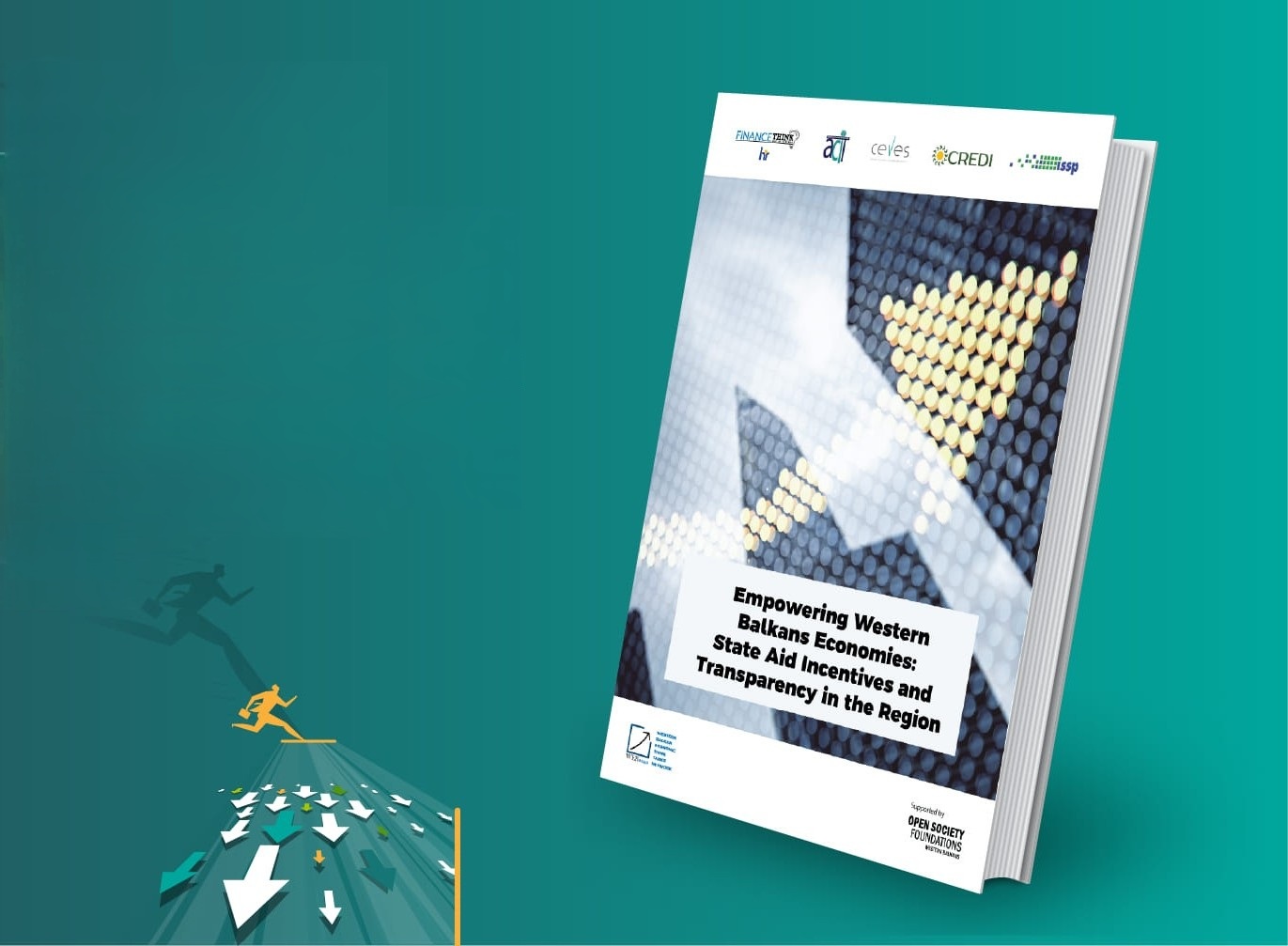
(SR) Transparentnost, obim i ciljano usmeravanje državne pomoći na Zapadnom Balkanu: Ključ za rast?

(SR) Bilten: Studenti su u pravu; ekonomsko stanje Srbije, EU
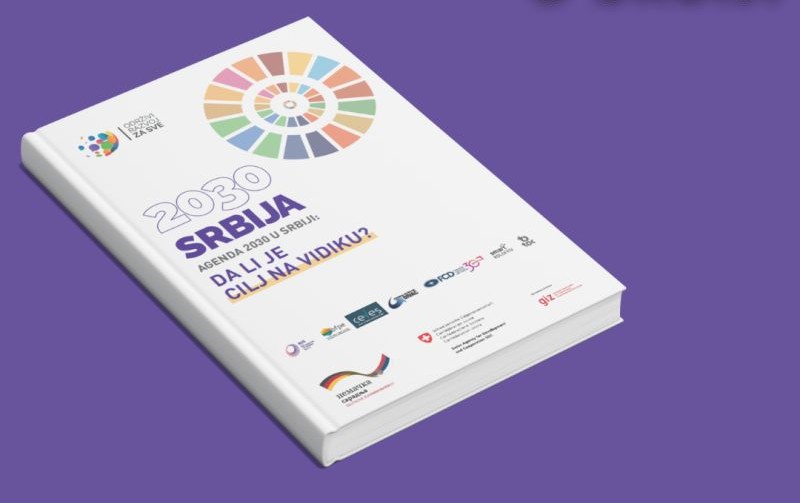
(SR) Novi izveštaj Platforme „Održivi razvoj za sve“: Da li je cilj na vidiku?
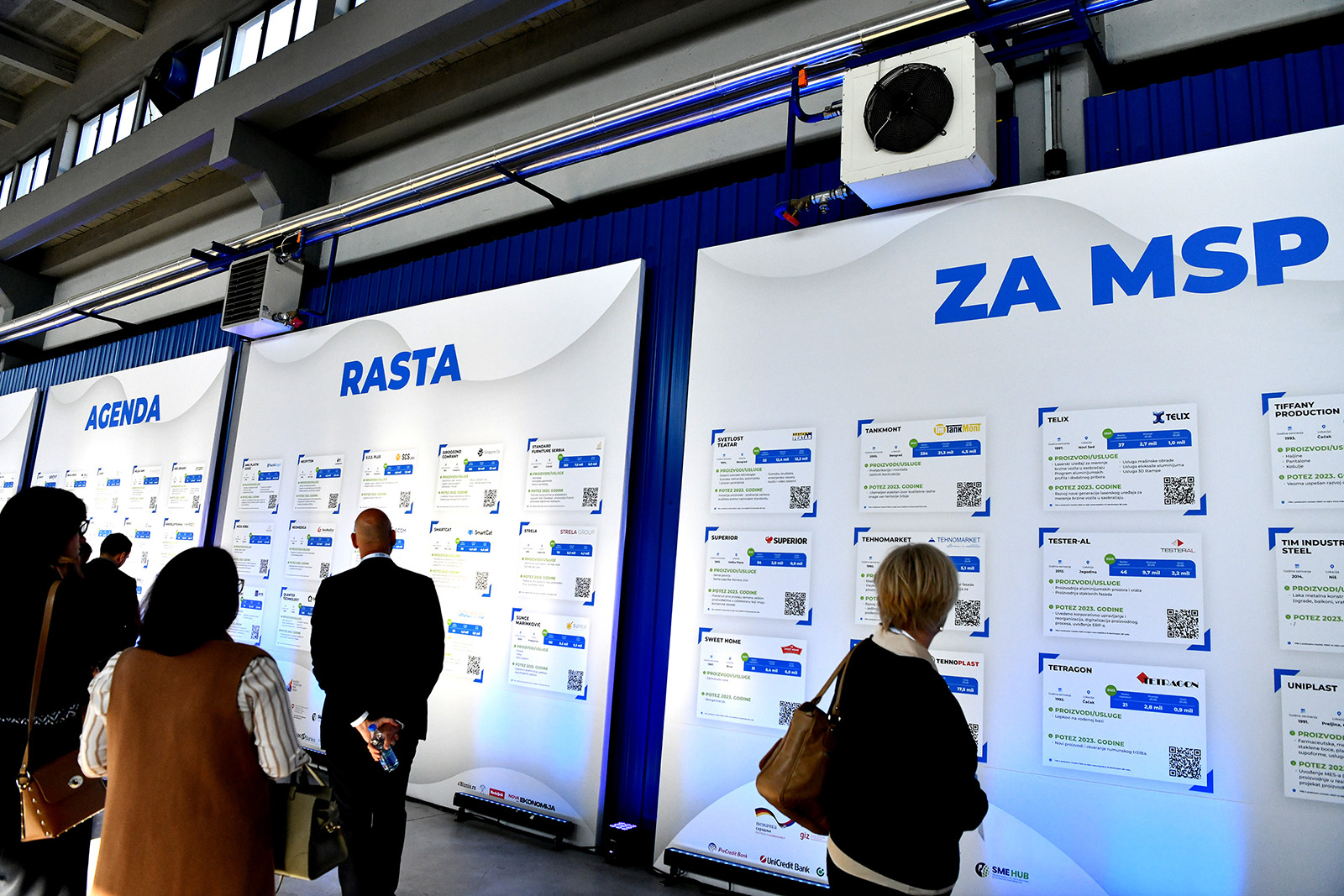
(SR) MSP su i centar i margina: poreski kredit važi za velike, ali ne i za male firme
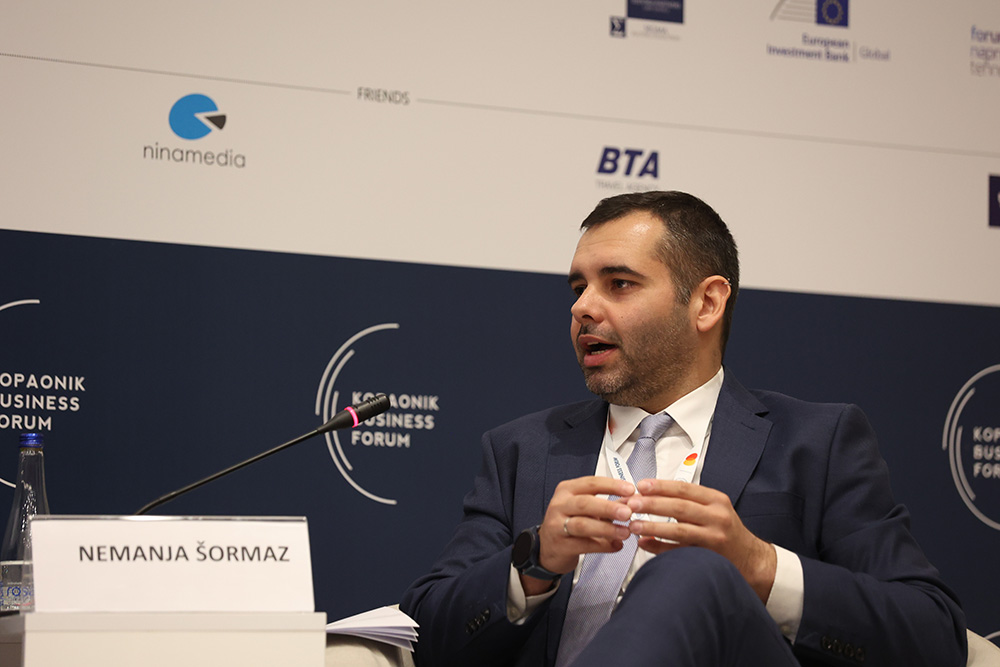
(SR) Predlog budžeta za 2025. godinu – javne investicije bez dugoročnog plana i razvojnih prioriteta, podrška privredi inertna
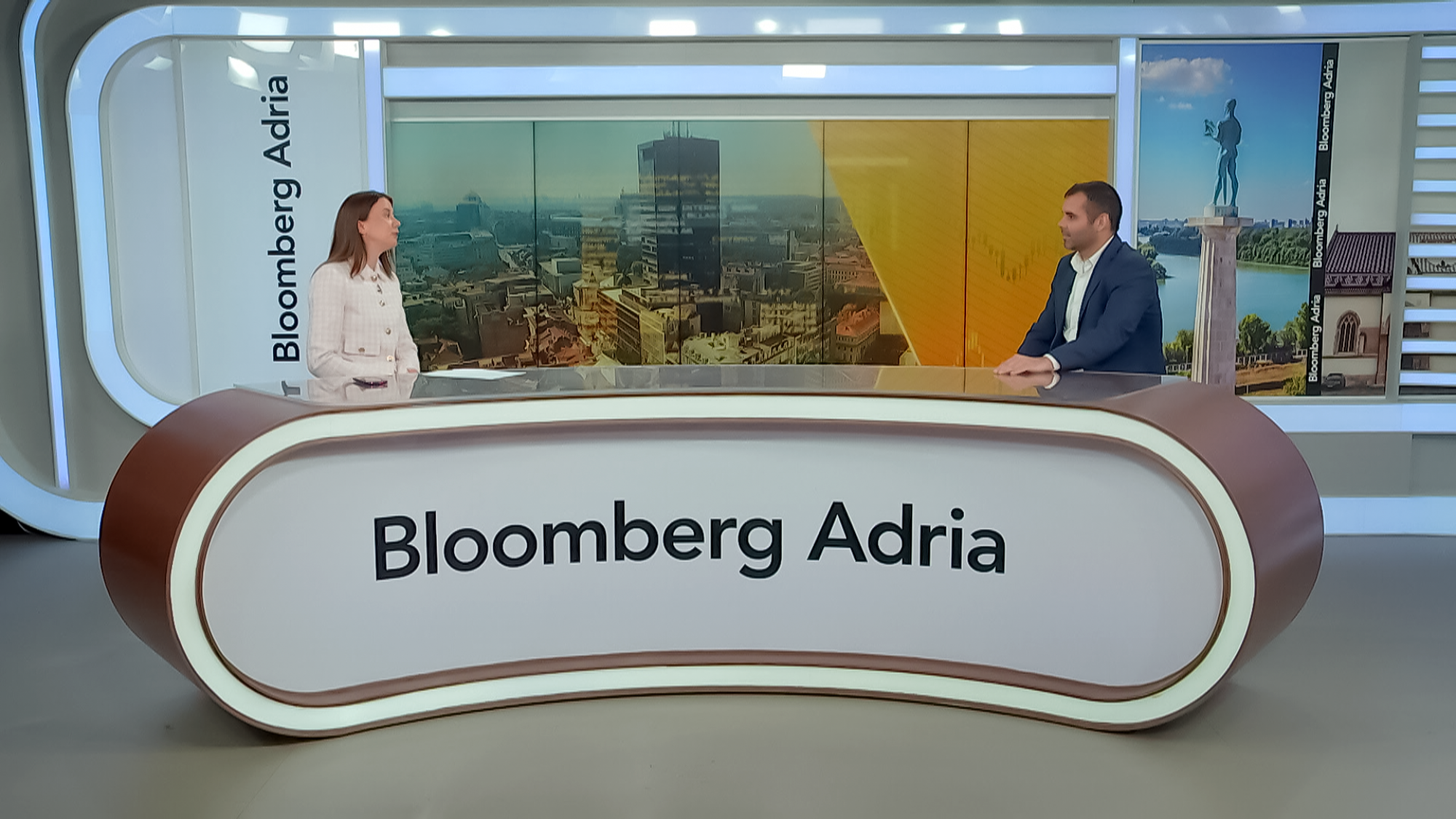
(SR) Subvencije idu strancima, poreska politika ne ide naruku MSP-u, a nešto je i do samih preduzeća

(SR) Kongres neće odobriti ogromno rezanje budžeta koje Mask najavljuje
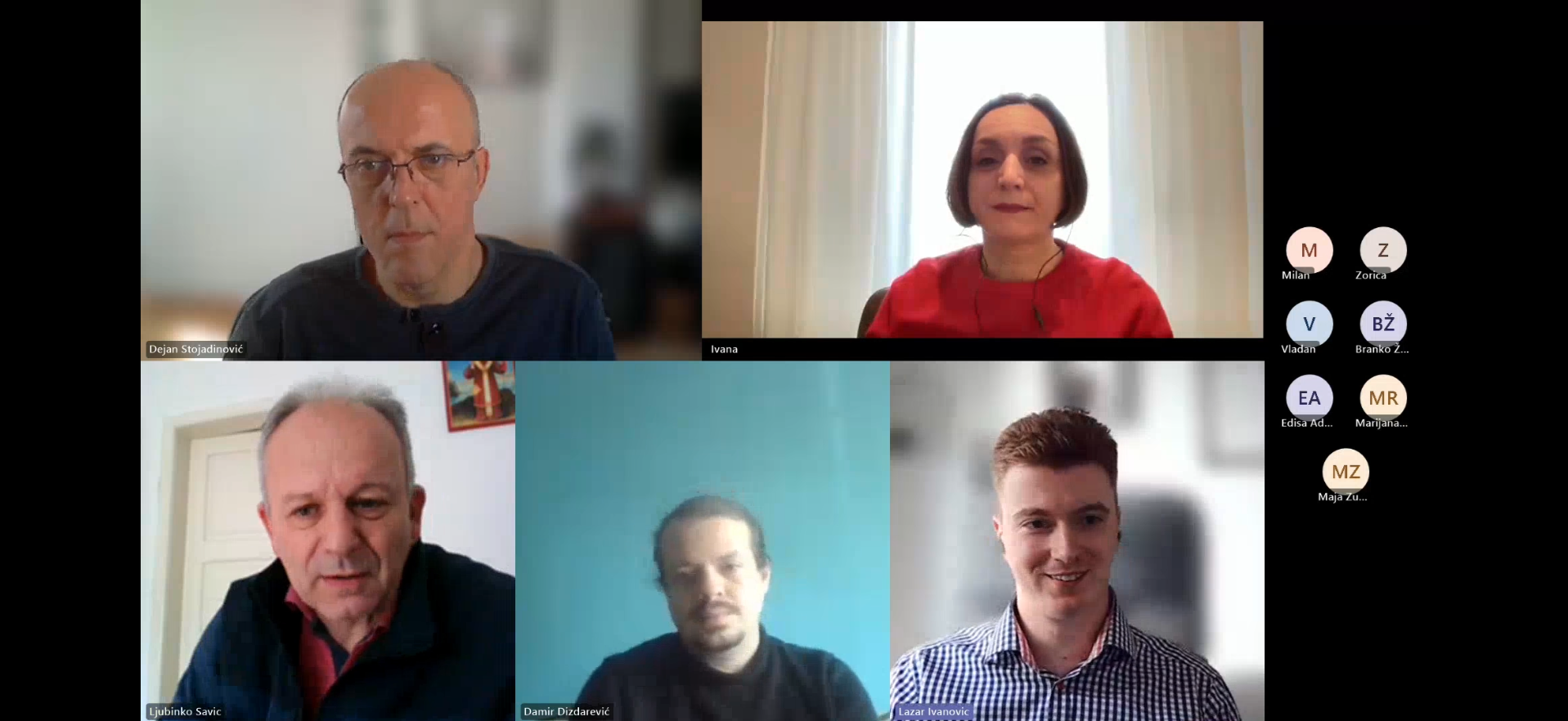
(SR) Prozjumeri – neiskorišćen mehanizam u Srbiji

(SR) Panel diskusija: Prozjumeri i energetska sigurnost u Srbiji
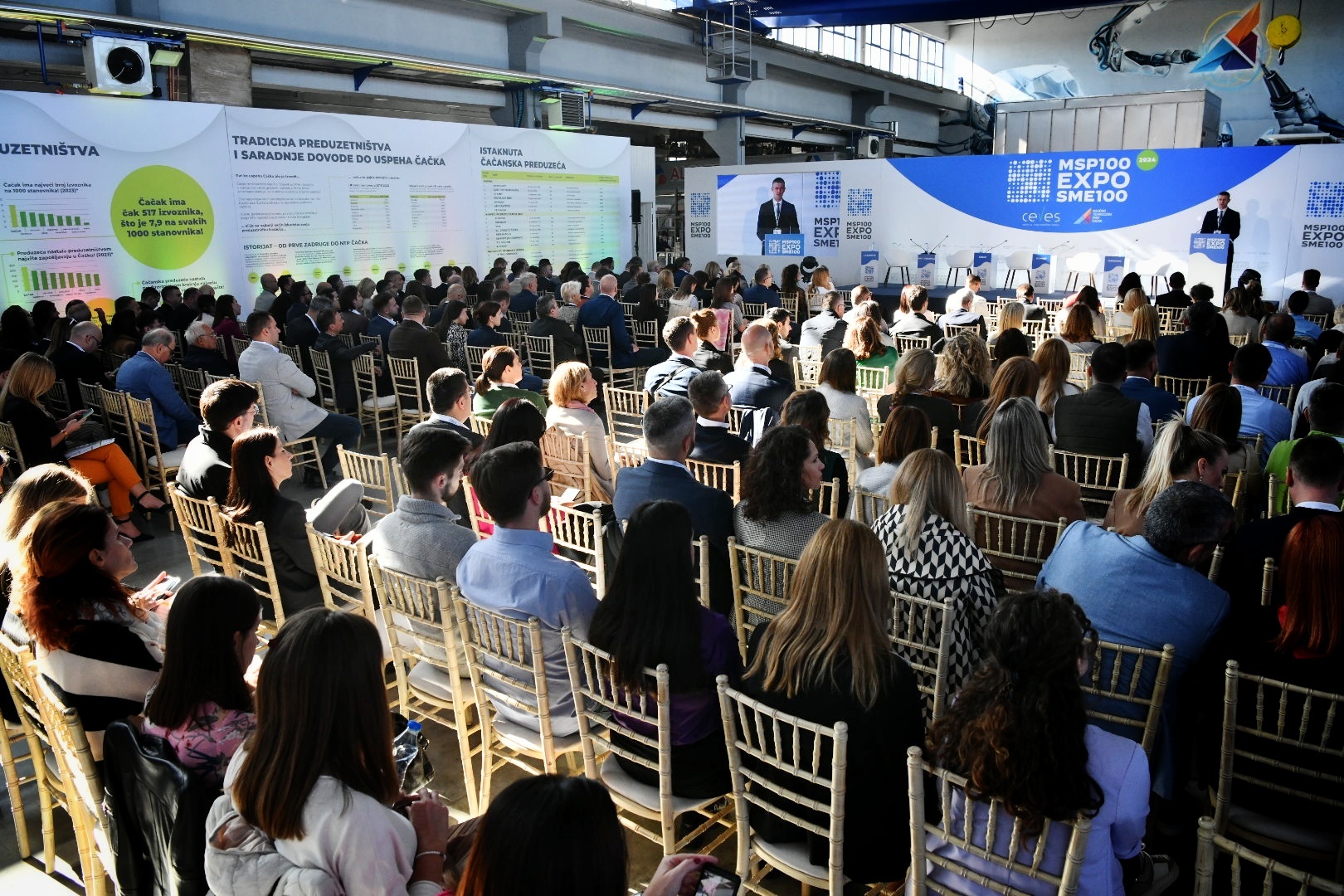
SME100 Expo 2024: A New Growth Agenda for SMEs
SME100 Expo 2024, held on October 18, 2024, in Čačak, under the slogan ‘A New Growth Agenda for SMEs’ brought together 350 participants, including over 100 leading domestic small and medium enterprises, representatives from more than 20 key national and international institutions, as well as numerous members of the financial sector, aiming to further improve the business environment for Serbian SMEs.
The event, organized by CEVES and the Čačak Science and Technology Park, showcased successful family-owned businesses that make significant contributions to their communities. Panels covered topics from overcoming market challenges to accessing financial support, emphasizing SMEs as key economic drivers in Serbia.
With exhibitions, panel discussions, hard-talk sessions, and awards for the Super Champions — the best among Serbia’s top small and medium enterprises — SME100 Expo, for the third consecutive year, confirmed the growth potential and resilience of Serbia’s SME sector in an ever-changing global economy, while also reminding policymakers of initiatives that could enable even faster and stronger growth in this sector.
Find conclusions and a brief overview of the event here.
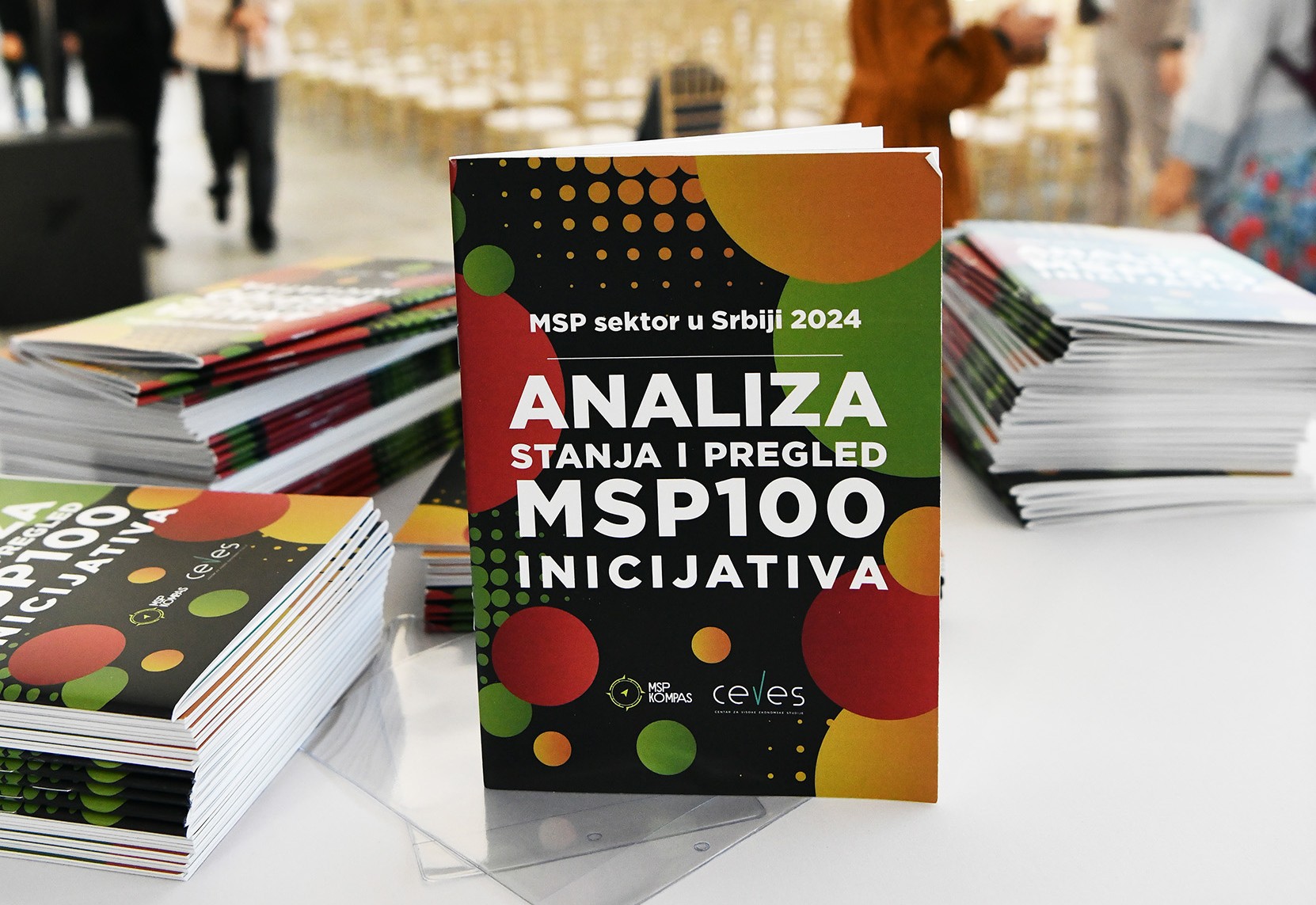
(SR) MSP sektor u Srbiji 2024: Analiza stanja i pregled MSP100 inicijativa

(SR) Koraci ka intenzivnijoj razvojnoj podršci MSP sektoru u Srbiji

(SR) Struktura cena i moguća rešenja za domaće tržište – poreska politika, troškovi distribucije i ulazne cene su ključni

(SR) Medić: Investicioni kreditni rejting smanjuje trošak zaduživanja

(SR) Pavle Medić o „Najboljoj ceni“: Takva vrsta politike nije moguća dugoročno, cene u Srbiji su slične cenama u EU, a plate dva i po puta niže

(SR) Nuklearna energija energetski najefikasnija, ali za „proizvodnju“ kadrova potrebno i do 20 godina

(SR) Zapadni Balkan manje energetski efikasan od EU zbog niske cene struje i više decenija nedovoljnih investicija
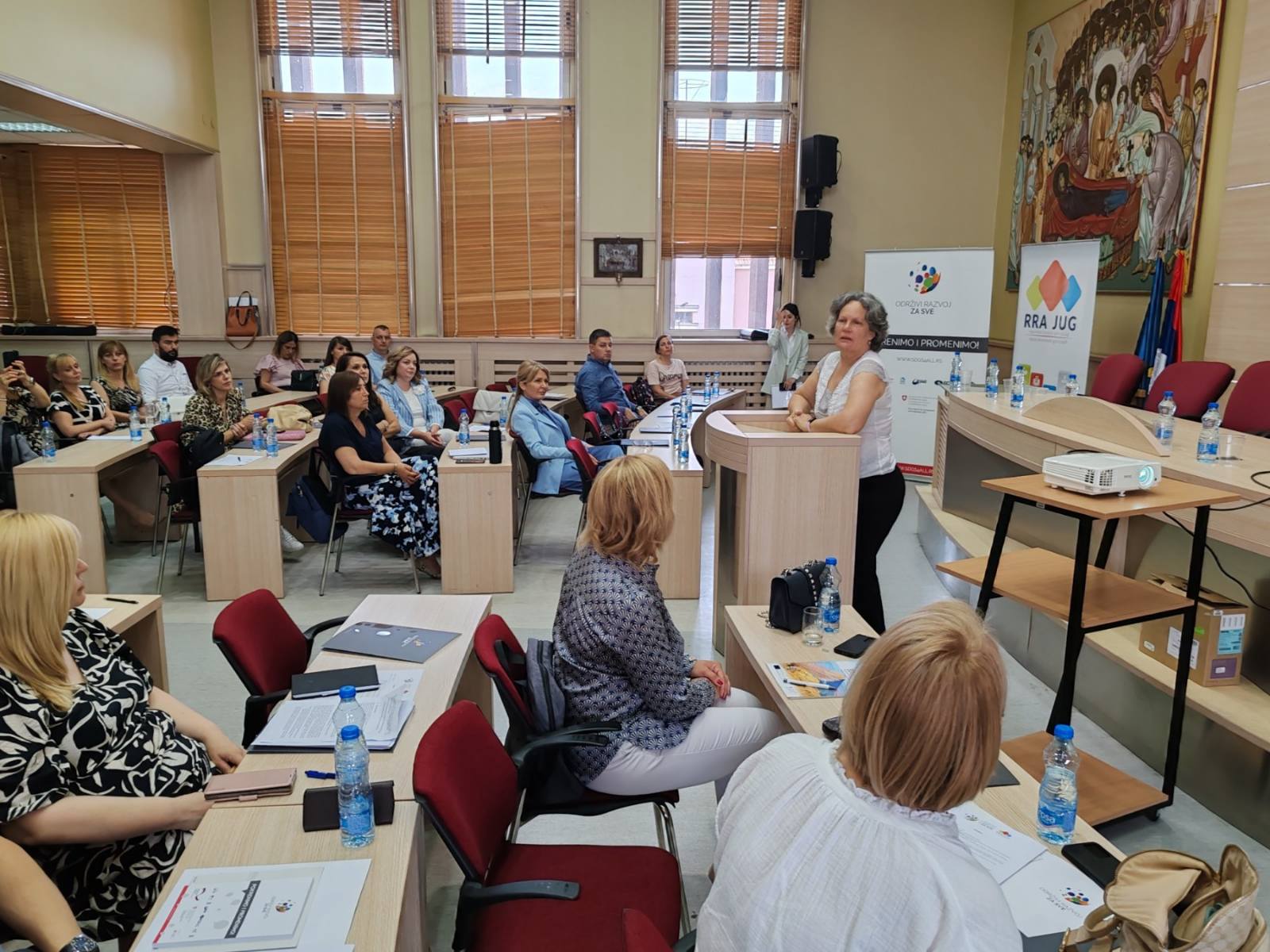
Pirot 2024: Listening to the Economy and People and the Proactive Role of Local Government as Key Factors in Sustainable Local Economic Development
The Center for Advanced Economic Studies (CEVES) organized the conference “Key Factors of Sustainable Local Economic Development” in Pirot on June 20, 2024, aiming to exchange experiences among representatives from the Pirot, Toplica, Nišava, and Zaječar districts. The conference was organized in collaboration with the Association for the Development of Sustainable Communities (TOC) and the Regional Development Agency South (RRA JUG), within the Platform “SDGs for All”, supported by the governments of Switzerland and Germany and implemented by GIZ as part of the project “Public Finance Reform – Agenda 2030”.
The conference was opened with introductory addresses by the Deputy Mayor of Pirot, Miloš Colić, the President of the Board and Chief Economist of CEVES, Kori Udovički, and the Manager of the Local Government Development Sector at RRA JUG, Nataša Andrejević.
The working part of the conference began with the presentation of the CEVES analysis “Listening to the Market – A Key Factor for Successful Development”, which highlighted the importance of considering all characteristics, similarities, and complementarities of the economy and people for an adequate regional development analysis.
The panel titled “Creating Education Based on Labor Market Needs: Challenges in Implementing the National Agenda, Perspectives of Local Communities, and Expectations of the Economy” brought together participants to discuss the efforts made to bridge the gap between education outcomes and labor market demands, the main results and difficulties, and future plans. The panelists included Gabrijela Grujić, Director of the Office for Dual Education and National Qualifications Framework, Miloš Colić, Deputy Mayor of Pirot, Marija Ćirić, Director of the Vocational High School in Pirot, and Mira Zlatkov, Director of the ZIP Center Pirot, moderated by Tatijana Pavlović Križanić, an expert in local economic development. The discussion showed that efforts to bridge the gap between education results and labor market needs are under way –methodologies have been developed, synergies between education and industry are identified, and programs are being created. However, there is a need for speed and scaling up of results.
Following the panel, Miljana Medarov-Vujaklija, Head of the Monitoring Department at the City Administration of Niš, presented the process of creating the Voluntary Local Report on the implementation of the 2030 Agenda, making Niš the first city in Serbia to do so.
In the second part of the conference, representatives from municipalities and cities from the four districts had the opportunity to share their experiences regarding specific initiatives important for local economic development in line with all three dimensions of the 2030 Agenda. Conference participants learned more about the regional councils established and supported by RRA JUG, as well as the territorial investment strategies that will enable the implementation of important projects aimed at improving infrastructure and education in the Pirot and Niš districts. Dragan Mančev, a representative from Dimitrovgrad, presented the opportunities provided by this municipality to the economy, such as revolving funds, which are also implemented in other cities and municipalities, allowing socially responsible entrepreneurs and farmers to obtain the capital needed to improve or start their businesses. Aleksandar Ranđelović, a representative from Gadžin Han, shared the experience of establishing a joint ombudsman office with the city of Niš as an example of how small municipalities can, through inter-municipal cooperation, enable their residents to protect their rights with fewer resources. In the field of environmental protection, Bojan Pešić, Head of the Department at the City Administration, shared the experience of establishing and operating the regional landfill in Pirot, explaining how inter-municipal cooperation between Pirot, Babušnica, Dimitrovgrad, and Bela Palanka was achieved to set up a joint landfill.
The conference highlighted the need for a proactive role of local government in the sustainable development of its community, which involves continuously listening to the needs of people and the economy and seeking solutions to their problems through the experiences of other cities and municipalities or cooperation with them.

(SR) Potencijal za sigurnost energetskog snabdevanja kroz promociju prozjumerskog tržišta
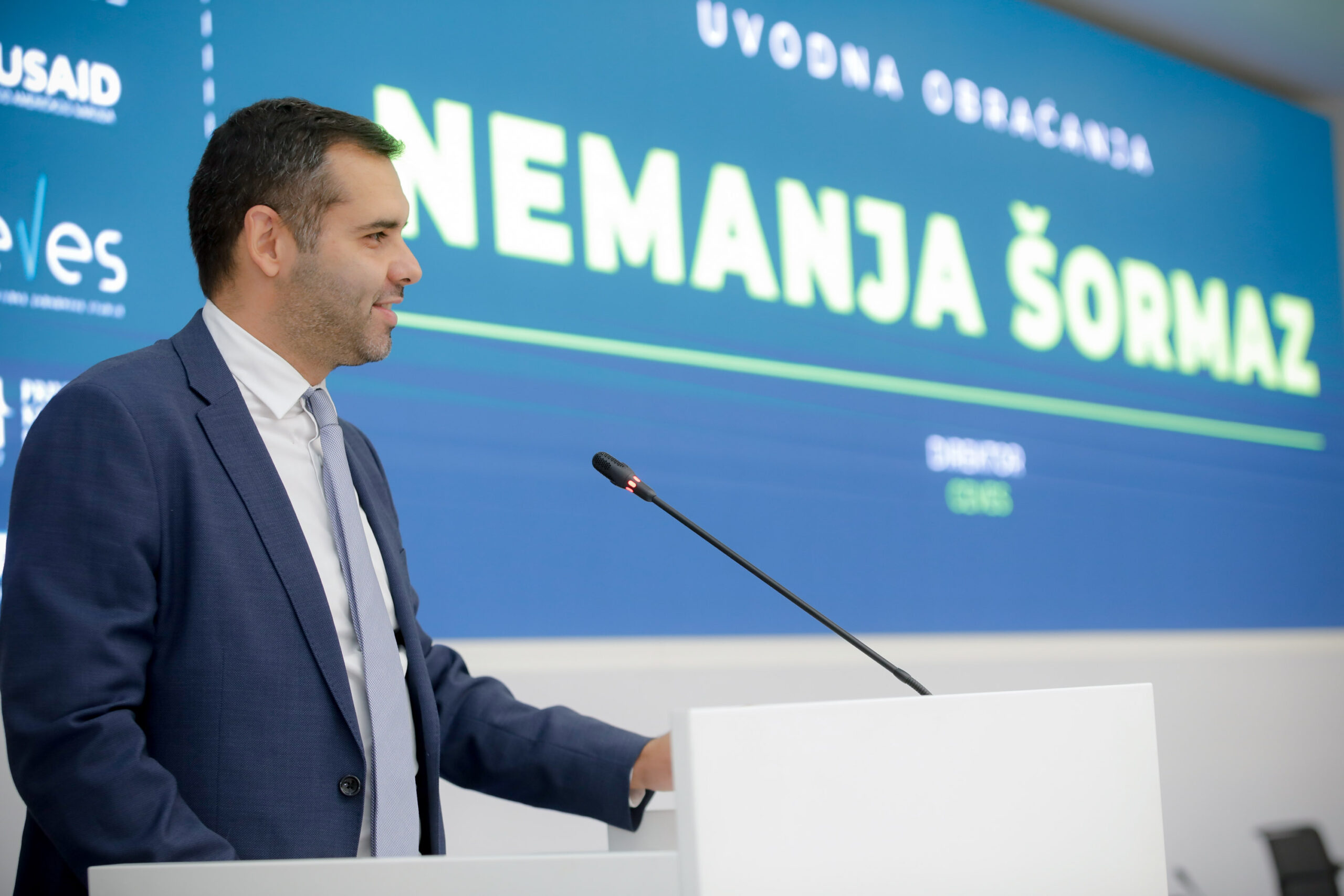
(SR) Predstavljen MSP Kompas–rezultati u 2023. i očekivanja u 2024.
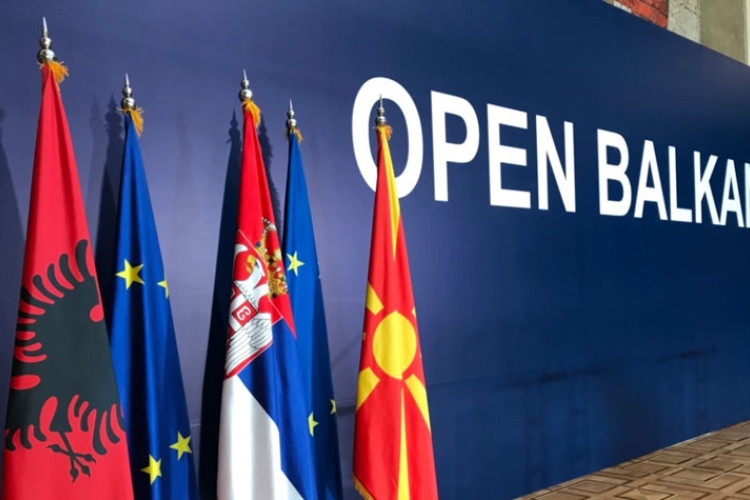
(SR) Smanjivanje administrativnog jaza i stavovi privrede o Inicijativi Otvoreni Balkan

SME COMPASS INDEX 2024: SMALL BUSINESS – GREAT POTENTIAL, Friday, May 17, from 11 AM, Chamber of Commerce of Serbia, Resavska 13-15.

(SR) CEVES Bilten – mart 2024
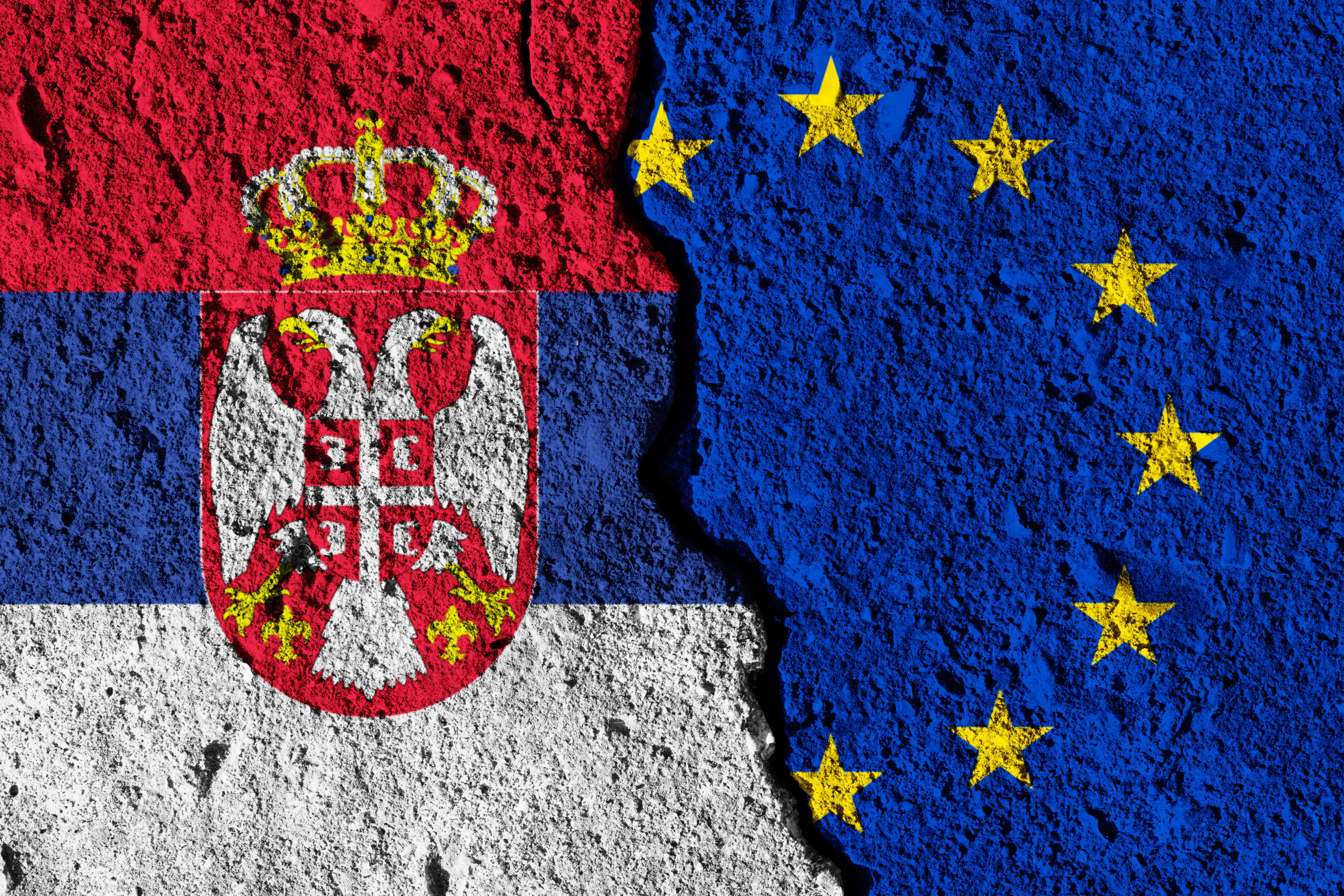
(SR) Novi Plan rasta za Zapadni Balkan – stidljivim koracima ka (evropskoj) budućnosti

(SR) Nemačka ključna destinacija za srpska mala i srednja preduzeća

(SR) Poreski kredit bi za pet godina povećao investicije za 40 odsto
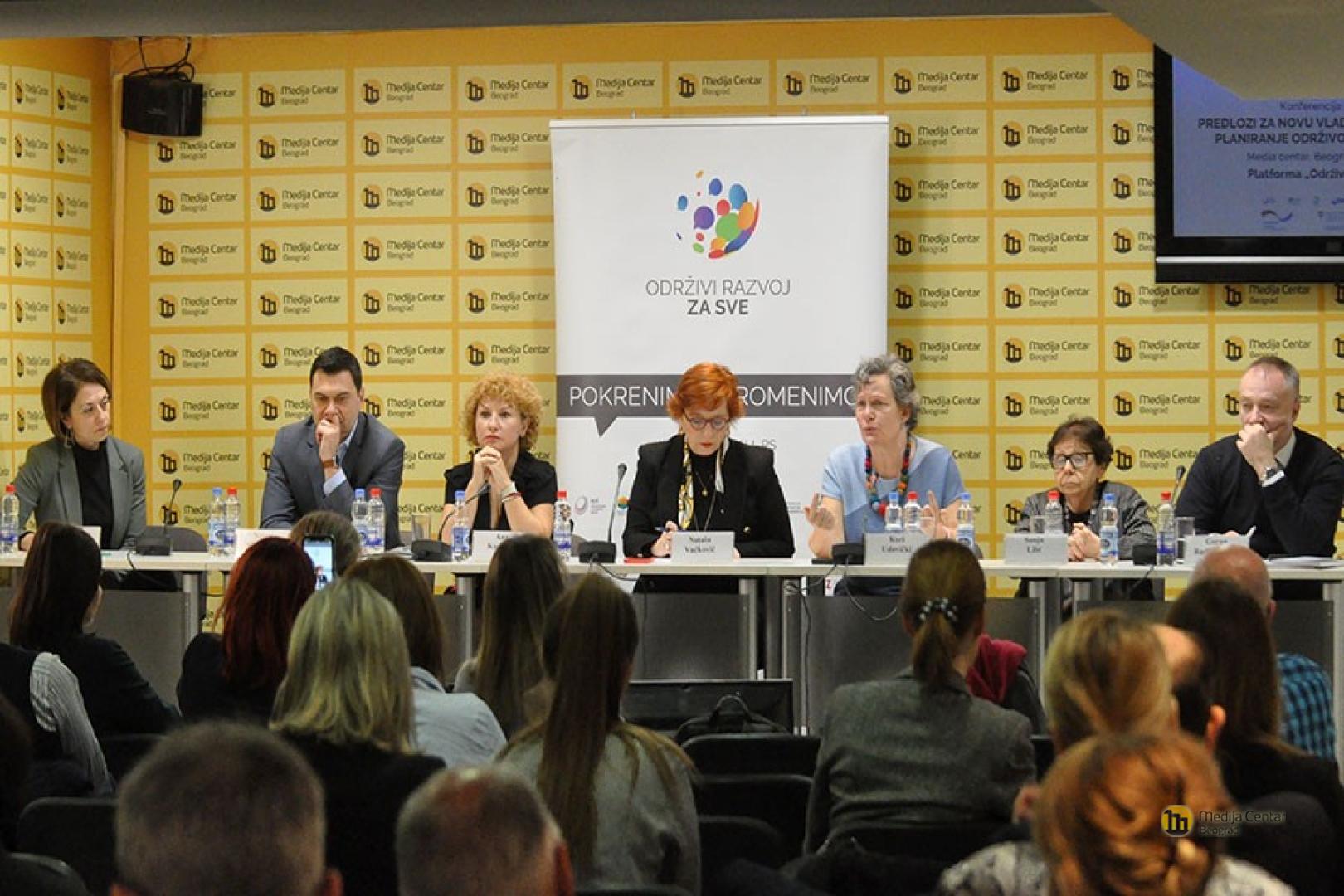
(SR) Nova Vlada Republike Srbije da se fokusira na pravi plan razvoja: održiv i namenjen svim građanima i privredi Srbije (naročito MSP)

(SR) Vraćanje poreskog kredita najbitnija stvar koju država može da uradi za MSP

(SR) Zašto Srbija ima tako puno stranih, a tako malo domaćih investicija?
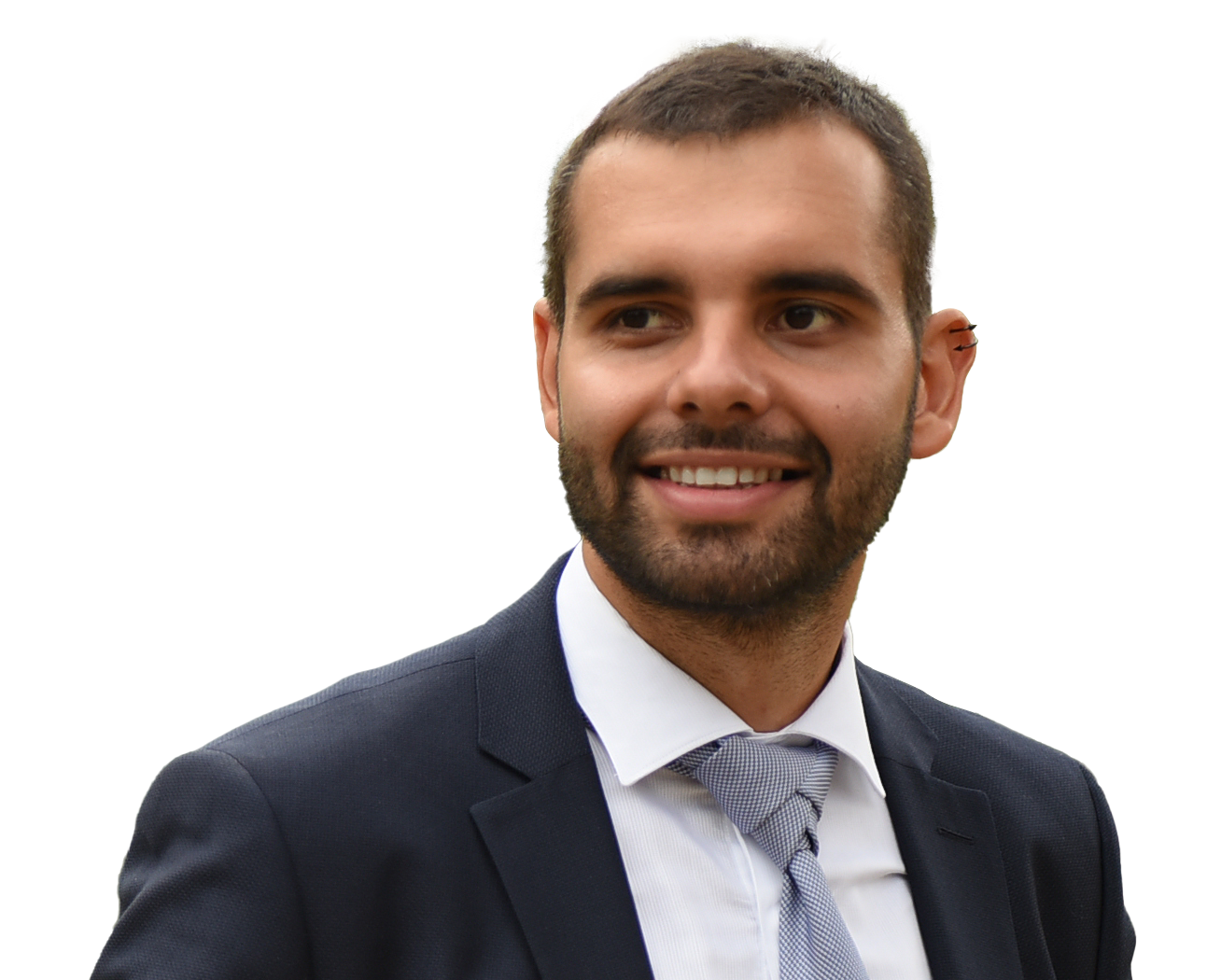
(SR) Među desetinama hiljada domaćih firmi samo njih 500 izveze robu za više od četiri miliona evra

(SR) Novi marketinški trik aktuelne vlasti: “Srbija 2027” eldorado iz šešira

(SR) Kvantni skok od tri odsto: Ekonomski efekti projekta Jadar
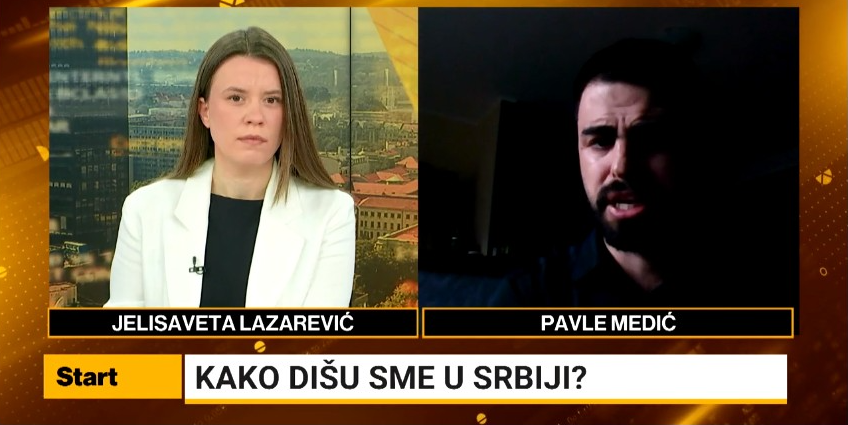
(SR) Pozitivan sentiment MSP za narednih pet godina ne prate planovi za investicije
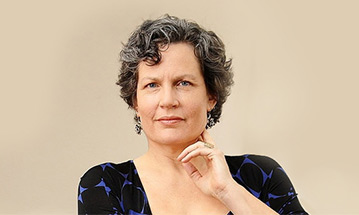
(SR) Kori Udovički za Biznis.rs: Mala i srednja preduzeća su ključna za razvoj Srbije

(SR) Nemanja Šormaz za NIN: Srbija – rasadnik skrivenih šampiona

(SR) Nemanja Šormaz za Nedeljnik: MSP Kompas – portal o malim i srednjim preduzećima

(SR) Održan MSP100 Expo 2023: Ljudi su uspeh

(SR) MSP100 Expo 2023: Ljudi su uspeh – Jačanje kadrovskih i organizacionih kapaciteta malih i srednjih preduzeća

(SR) Trenutno stanje i izazovi u planiranju lokalnog ekonomskog razvoja

(SR) Potreban zaokret – više planiranja u ekonomskoj politici i fokus na domaću privredu

(SR) Ceves opservatorija

(SR) Pohlepa zgodan osumnjičeni za visoku inflaciju
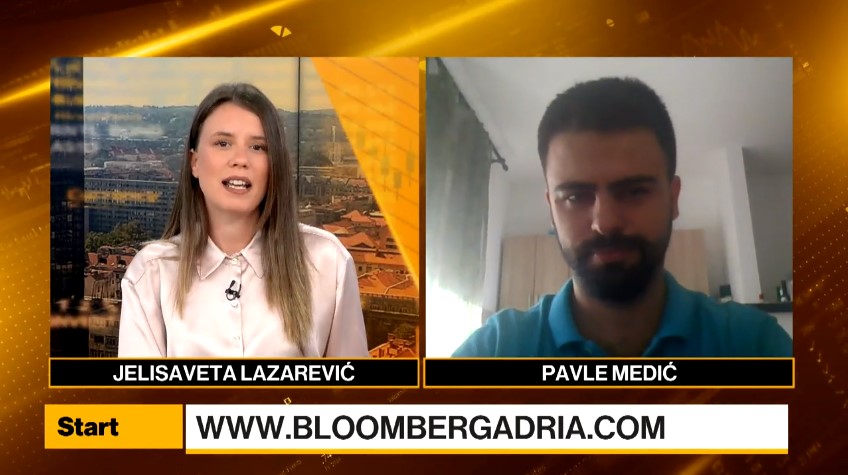
(SR) Dogovor između trgovaca i države nema potencijal da slomi inflatorna očekivanja
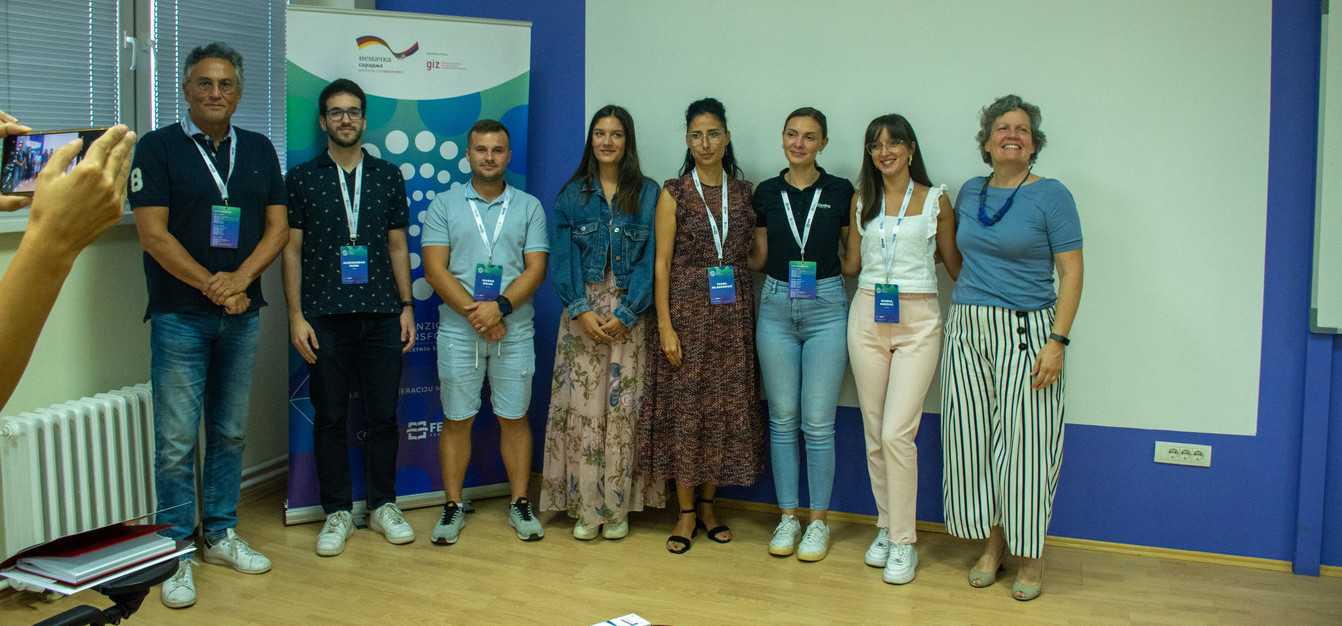
(SR) Održana Letnja škola „Zelena tranzicija i digitalna transformacija“ za sledeću generaciju lidera domaćeg MSP sektora

(SR) Osvrt na ekonomsku i monetarnu politiku Srbije: Izveštaj sa sednice radne grupe Nacionalnog konventa o Evropskoj uniji održane 29.8.2023. godine
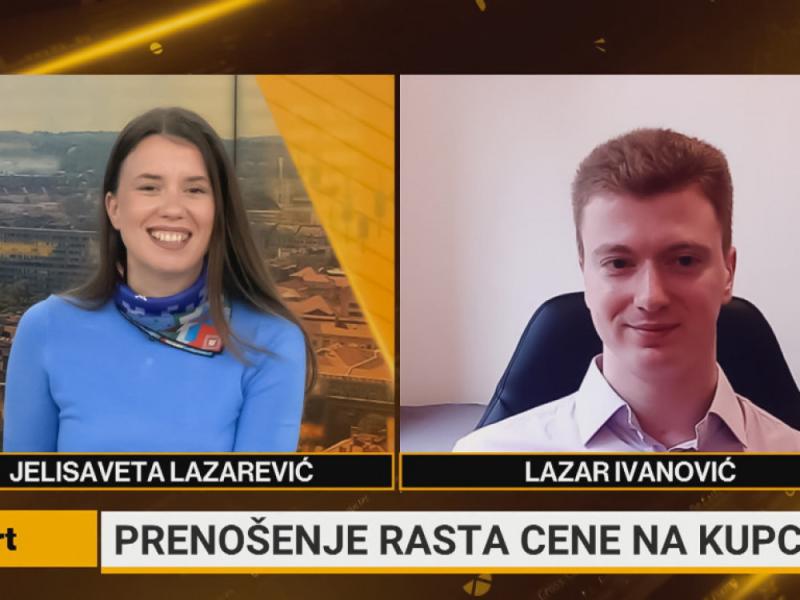
(SR) Kamatne stope nisu glavni uzrok niskih privatnih investicija

(SR) Marijana Radovanović za NIN: SRPSKA PRIVREDA IZMEĐU VELIKIH DRŽAVNIH I MALIH I SREDNjIH PRIVATNIH PREDUZEĆA – U raljama neefikasnog državnog kapitala
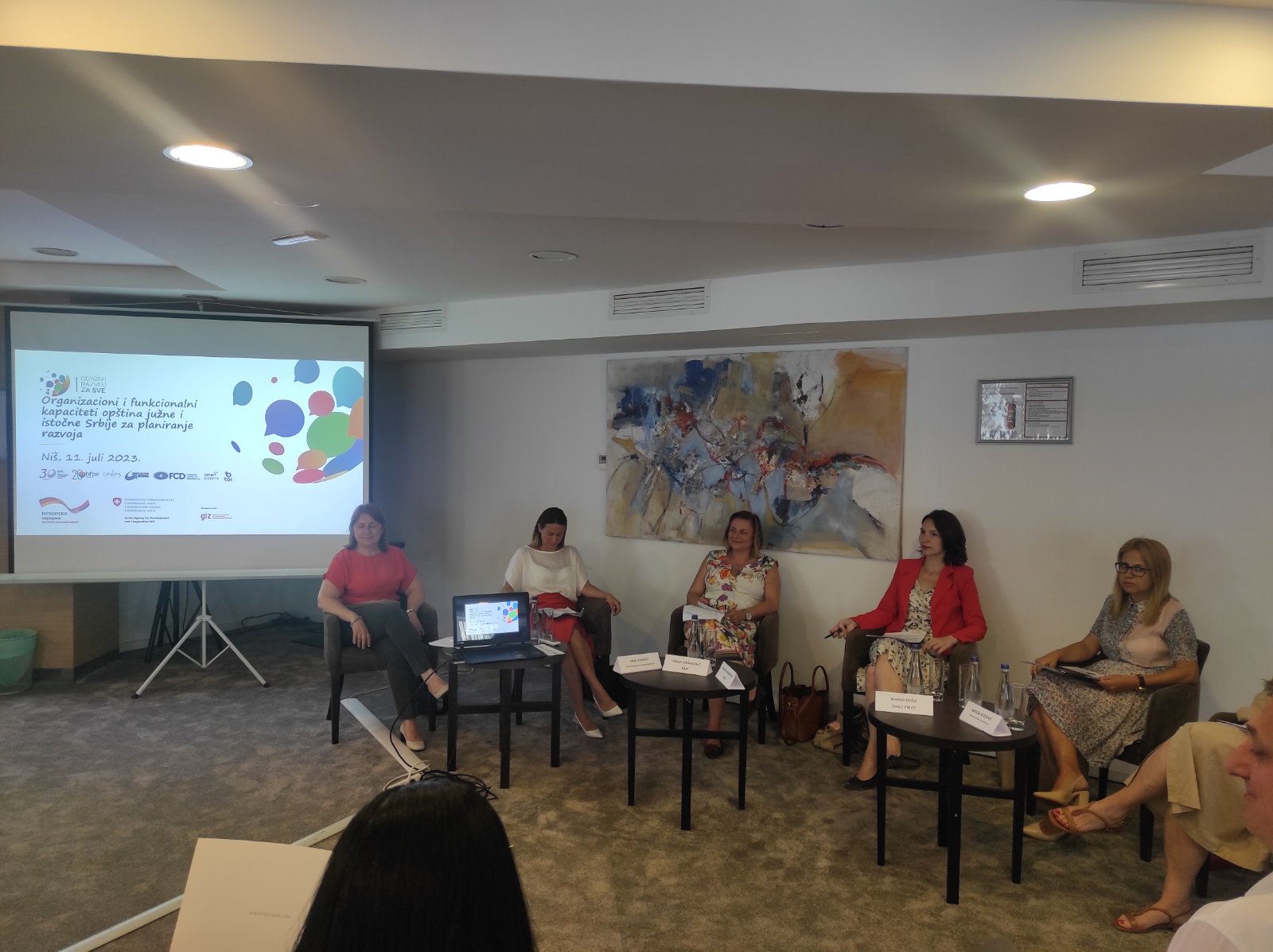
Conference Enhancing Local Economic Development Planning through Inter-Municipal Cooperation held in Niš
On Tuesday, July 11, 2023, the conference “Enhancing Local Economic Development Planning through Inter-Municipal Cooperation” took place in Niš, organized by the Center for Advanced Economic Studies (CEVES) in collaboration with the Regional Development Agency South. It was the first out of three events that will be organized by the “SDGs for All” Platform with aim to initiate the exchange of experiences and knowledge among municipalities and cities throughout Serbia about the localization of SDGs and their integration into local planning documents. The event assembled representatives from the local self-governments of Nišava, Pirot, Zaječar, Toplica and Jablanica districts, as well as central-level institutions, development projects, civil society organizations, and agencies.
The conference began with a presentation of the results of a questionnaire concerning the organizational and functional capacities of local self-governments in four districts of South and East Serbia, essential for the development planning process. The presentation was conducted by Tatijana Pavlović Križanić, expert in local economic development. The recommendations derived from the questionnaire’s responses focused on improving the sustainability of the planning system, enhancing inter-municipal collaboration, and fostering cooperation with the private sector and civil society organizations.
The first panel addressed the state of development planning in the local self-governments in line with the principles of the 2030 Agenda. Panelists included Anja Stančić, a senior advisor in the Cabinet of the Minister for European Integration; Sanja Mešanović, Deputy Director of the Public Policy Secretariat; Milena Radomirović, Director for the Planning System and Public Finances at the Standing Conference of Towns and Municipalities; Marija Đošić, Head of the Local Economic Development Office in the City Administration of Pirot, and Nataša Vučković, General Secretary of the “Center for Democracy” Foundation. The panelists agreed that further efforts are needed to strengthen the capacity of local self-governments in creating and implementing planning documents, standardizing these processes, prioritizing objectives in planning documents, and ensuring predictable funding for local self-governments.
The second panel focused on showcasing examples of good and/or alternative practices in sustainable development planning. Among the panelists were Dragana Stojanović, Director of the Regional Development Agency South; Viktor Veljović, Manager of the EU Pro Plus Capacity Development Sector; Ivan Pavlović, Head of the Development Planning and Project Management Sector at LEDO Niš; Dragan Mančev, a member of the Municipal Council for Economy and Agriculture in Dimitrovgrad; and Luka Milovanović, Program Assistant at the BFPE Foundation for Responsible Society. During the panel, the RDA South presented the initiative to form regional councils that would actively collaborate with local self-governments. These councils, focusing on business and investment, infrastructure, agriculture and rural development, as well as social development, should provide concrete assistance to local self-governments by identifying common issues and developing initiatives addressed to decision-makers and donors that contribute to the joint development of local communities. The panel emphasized the significance of a participatory approach in defining territorial and local community priorities, as well as the importance of considering the realistic capabilities of local self-governments and utilizing the existing knowledge and capacities of development organizations and other stakeholders in sustainable local development.
Based on the discussions held during the conference, CEVES will prepare a document containing conclusions and recommendations that will define further work on enhancing local economic development planning. The document will serve as a foundation for future inter-municipal exchange events within the “SDGs for All” Platform.

CEVES joins the Global Forum for National SDG Advisory Bodies on behalf of the “SDGs for All” Platform
On behalf of the “SDGs for All” Platform, in June 2023, CEVES joined the prestigious Global Forum for National SDG Advisory Bodies. The Global Forum is a network that connects the knowledge and experience of multi-stakeholder advisory commissions, councils and similar bodies for sustainable development. These bodies contribute to the national institutional architectures for the implementation of the Sustainable Development Goals (SDGs). By bridging knowledge and interests of various stakeholder groups, multi-stakeholder advisory bodies foster social acceptance and cohesion within society in times of transformation.
As a member of the Global Forum for National SDG Advisory Bodies, CEVES will actively participate, on behalf of the “SDGs for All” Platform, in international discussions and knowledge exchange on sustainable development, sharing contributions developed within the Platform, as well as acquired experiences and lessons learned. Membership provides an opportunity for Serbia to exchange experiences, best practices, and lessons learned with other countries, enhancing global collaboration and collective efforts towards achieving SDGs.
The “SDGs for All” Platform will leverage its membership in the Global Forum, as well as the knowledge gained within it, to continue advocating for policy coherence and effective implementation of the SDGs at the national level. By joining the Global Forum, the “SDGs for All” Platform reaffirms its commitment to sustainable development, fostering collaboration, and guiding Serbia towards achieving SDGs, thus strengthening its position as a key player in driving sustainable development efforts in Serbia. We expect that these partnerships will accelerate efforts in building a better future for all, leaving no one behind in the pursuit of a more sustainable and equitable world.
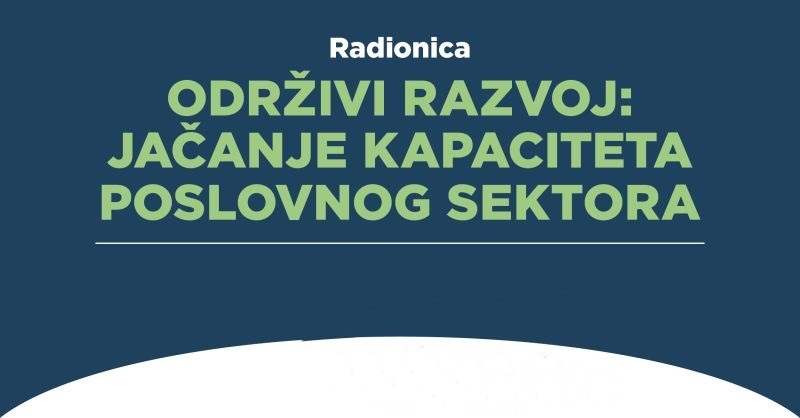
(SR) Održivi razvoj: jačanje kapaciteta poslovnog sektora – radionice u tri grada u Srbiji

(SR) Podneta inicijativa za izvoznu podršku MSP šampionima

(SR) Ivanović: Raste izvoz u Rusiju, domaće firme koriste globalnu situaciju
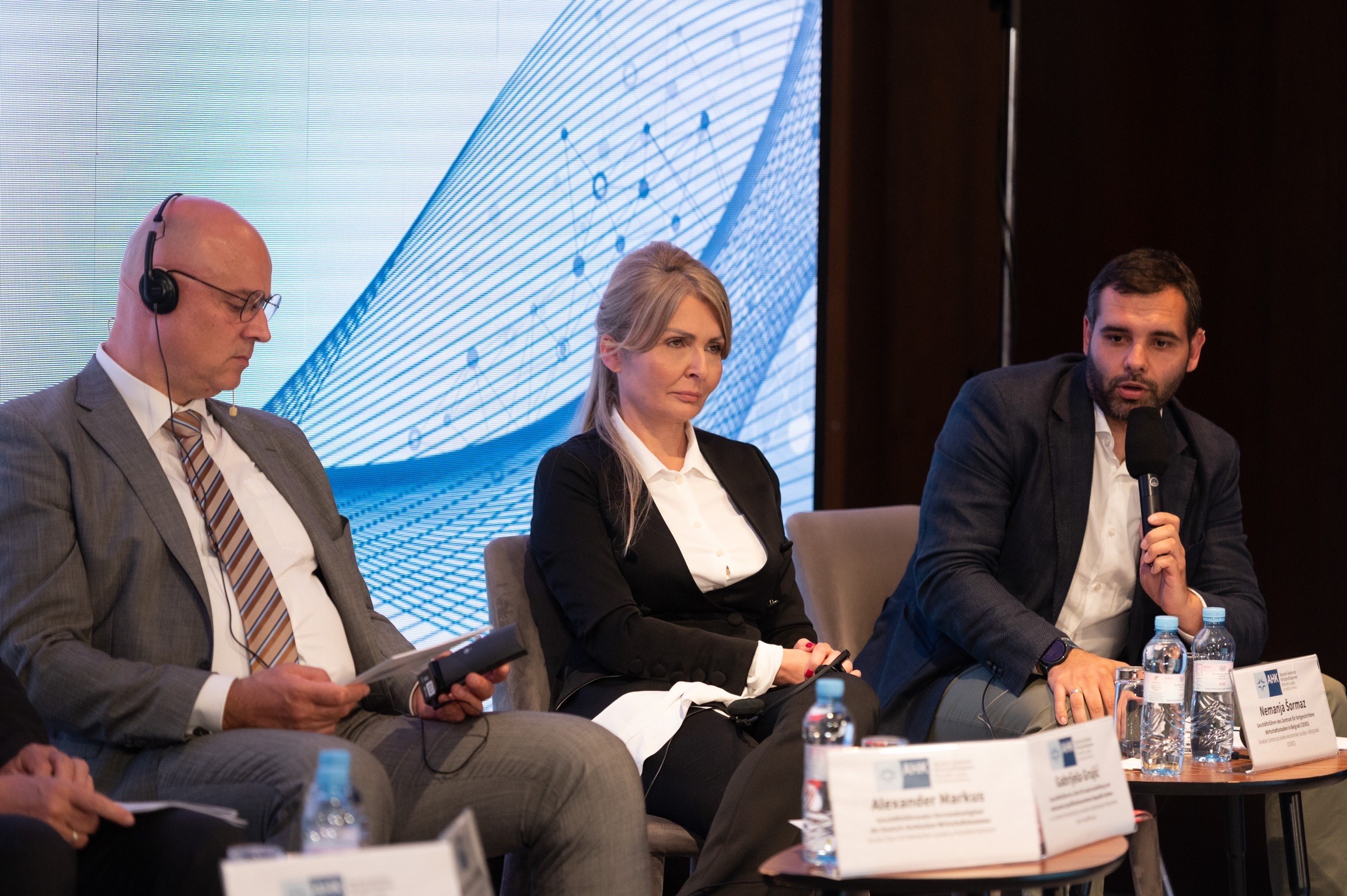
(SR) Šormaz: Poslovno okruženje u Srbiji povoljnije za velike strane firme nego za domaća MSP

(SR) Izveštaj: Skrining Inicijative Otvoreni Balkan – analiza po zemljama
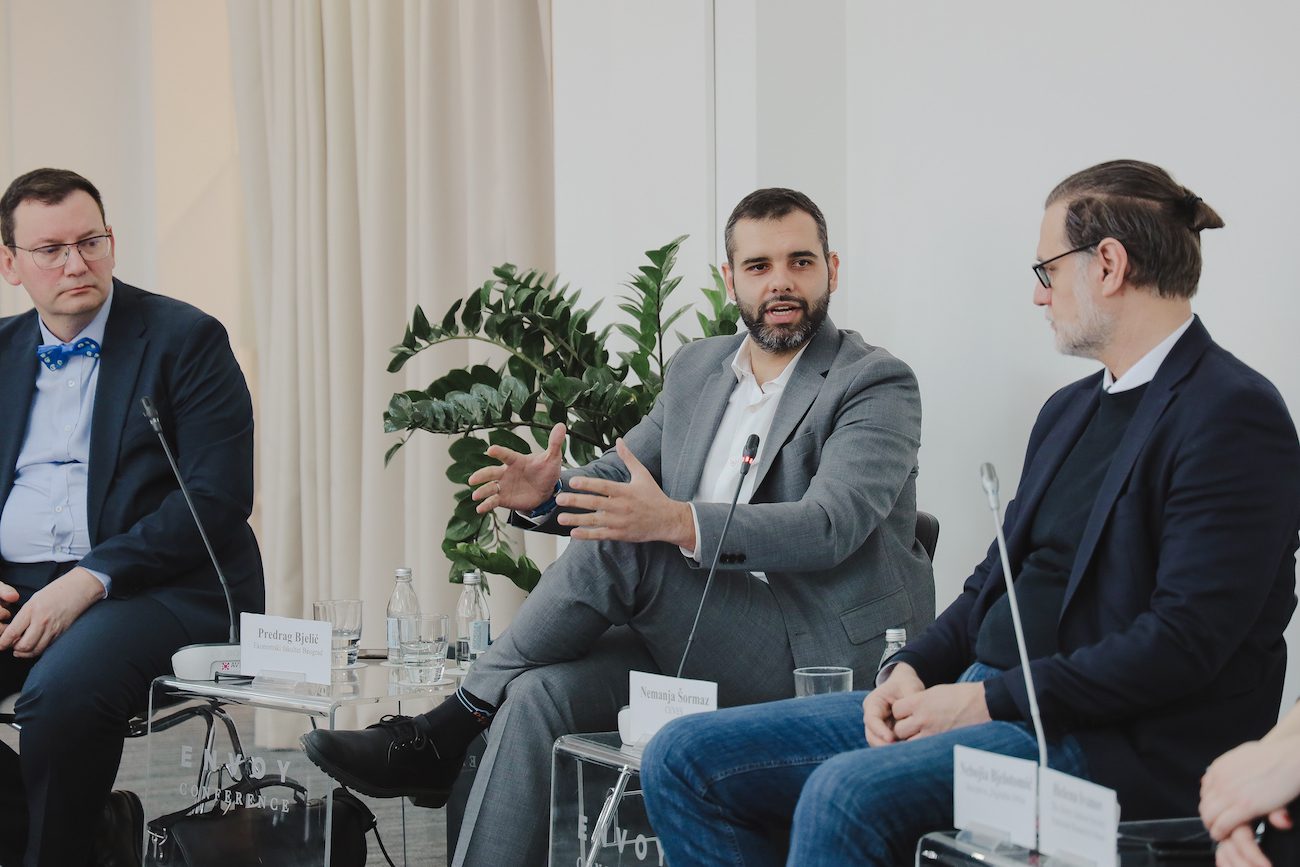
(SR) Zadatak za državu – stvoriti povoljno poslovno okruženje i za domaće kompanije
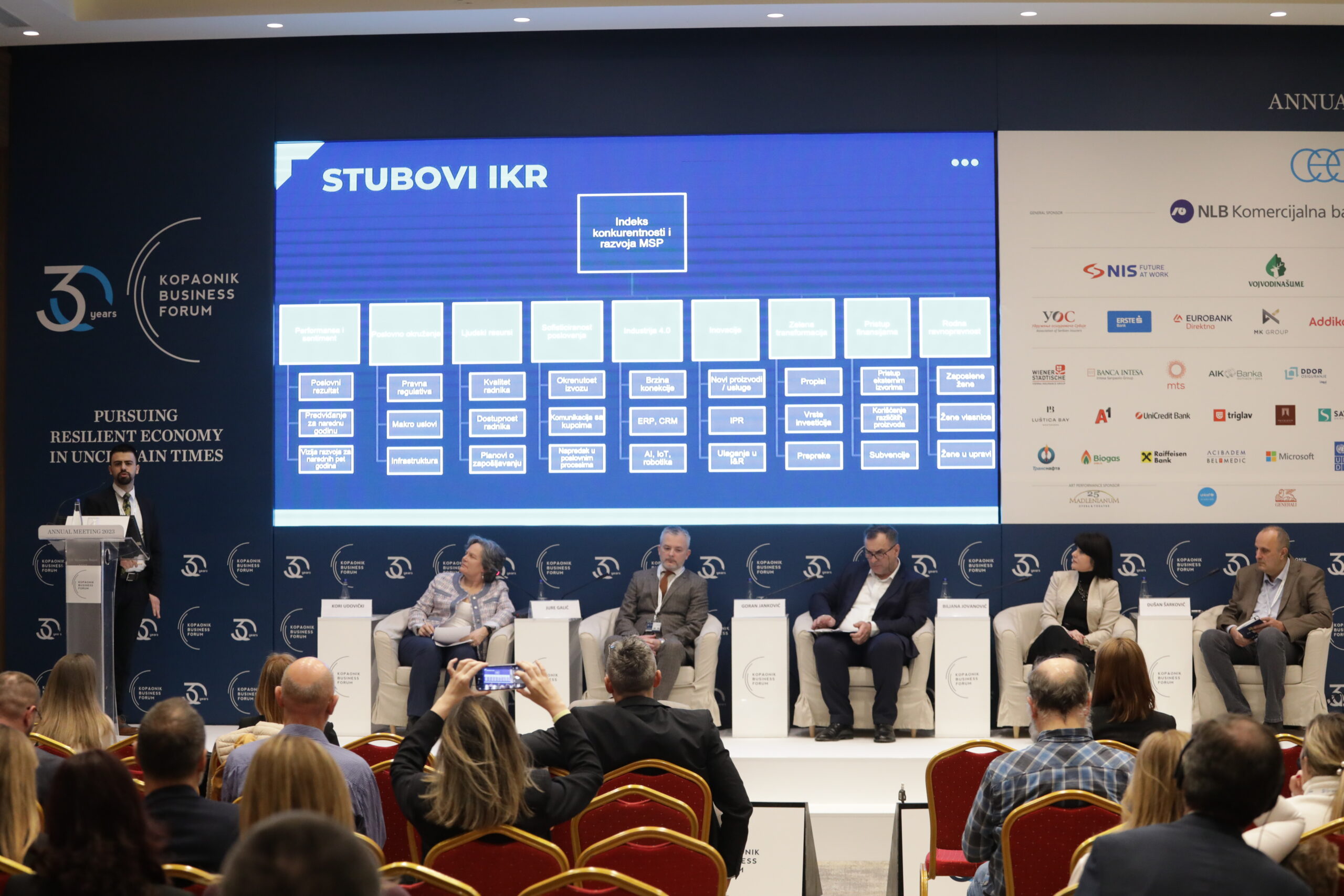
TIME FOR A BIG SMALL ECONOMY:IT’S COMPETITIVE AND INNOVATIVE, Panel diskusija, Kopaonik Biznis is forum 2023
As part of the Kopaonik Business Forum 2023, Ceves, in cooperation with USAID, organized a panel discussion TIME FOR A BIG SMALL ECONOMY: COMPETITIVE AND INNOVATIVE. Panel was moderated by Cevesa’s chief economist Kori Udovički, while the panelists were Jure Galić (NOVELIC), Goran Janković (Inmold Plast), Biljana Jovanović (Luna) and Šarković Dušan (DMV – industrial control systems). During the panel, we could hear great stories from our panelists about how their companies grew from small family businesses into serious, innovative and socially responsible companies, whose products are exported all over the world. Also, the panelists informed and faced us with the real problems that they encounter during their daily business
During the panel, deputy chief economist of Ceves, Pavle Medić, presented the competitiveness index of the Serbian economy. Competitivness index is composite Index that aims to monitor the competitiveness of the Serbian economy through the competitiveness of its companies in nine different dimensions: performance and sentiment, innovation, gender equality, industry 4.0, innovations, human resources, sophistication, business environment, access to finance, green transformation.

NEW DATE MARCH 2nd: It’s time for SMEs!
In cooperation with the Chamber of Commerce and Industry of Serbia, CEVES is organizing the event (panel discussion and exhibition) “It’s time for SMEs!” on March 2nd at 9.30-12.15 at the premises of the Chamber of Commerce and Industry of Serbia, Resavska 15, Belgrade.
The panel discussion on the importance of SMEs and what is needed for this part of the economy to continue to grow and contribute even more strongly to the sustainable development of Serbia will be followed by an exhibition of the selected companies, representatives of the SME100. The companies are selected according to the clearly defined export criteria, their contribution to the development of local communities, innovations in business, commitment to green business and contribution to the sustainable development. Profiles of these companies are available here.
The program includes a short presentation on the importance of SMEs and a panel with representatives of the SME 100, state institutions important for the development of SME sector, Serbian Chamber of Commerce and Industry and experts for the SME sector. You can find the preliminary program here.
The Conference is organized within the “SDG For All” Platform, supported by the Governments of Switzerland and Germany and implemented by Deutsche Gesellschaft für Internationale Zusammenarbeit (GIZ) GmbH through the Public Finance Reform – 2030 Agenda project.
Participation is free of charge, with mandatory registration here. After the panel, light food and beverage will be served.
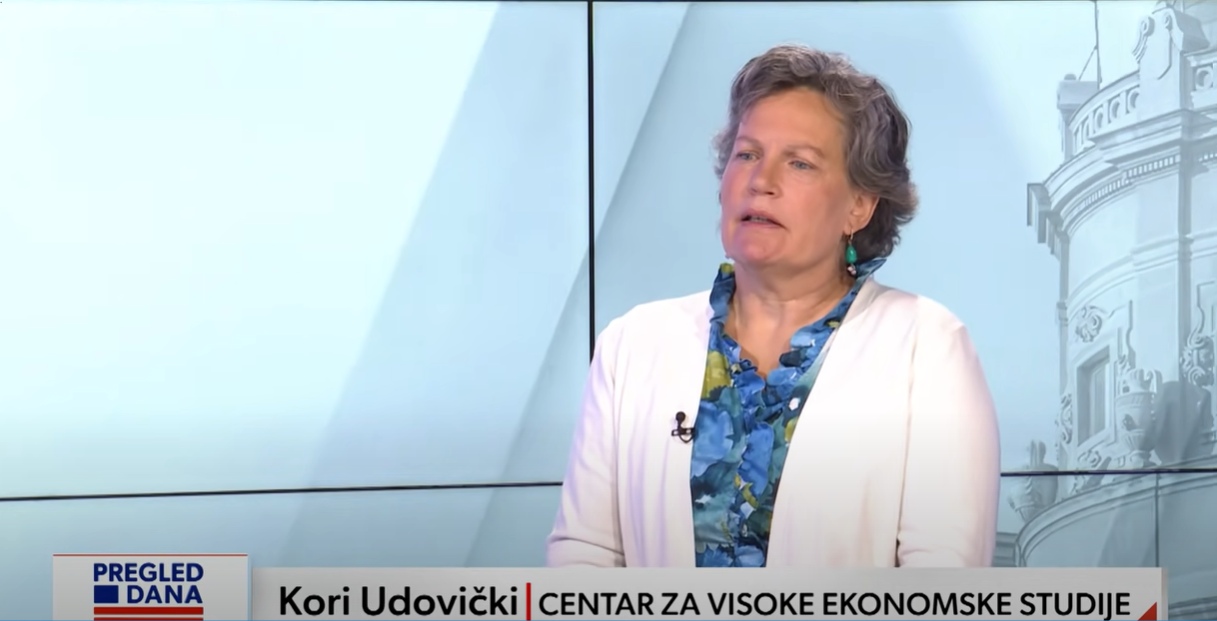
Gostovanje u Dnevniku – Kori Udovički 30.12.2022
Gostujući u Dnevniku, Kori Udovički komentarisala je godinu iza nas. Kako je ekonomska i energetska kriza uticala na Srbiju i Evropu, da li je Srbija zaista otpornija nego druge zemlje na ovakve šokove, o aranžmanu sa MMF, situaciji u EPS-u i drugim temama možete poslušati na sledećem linku.
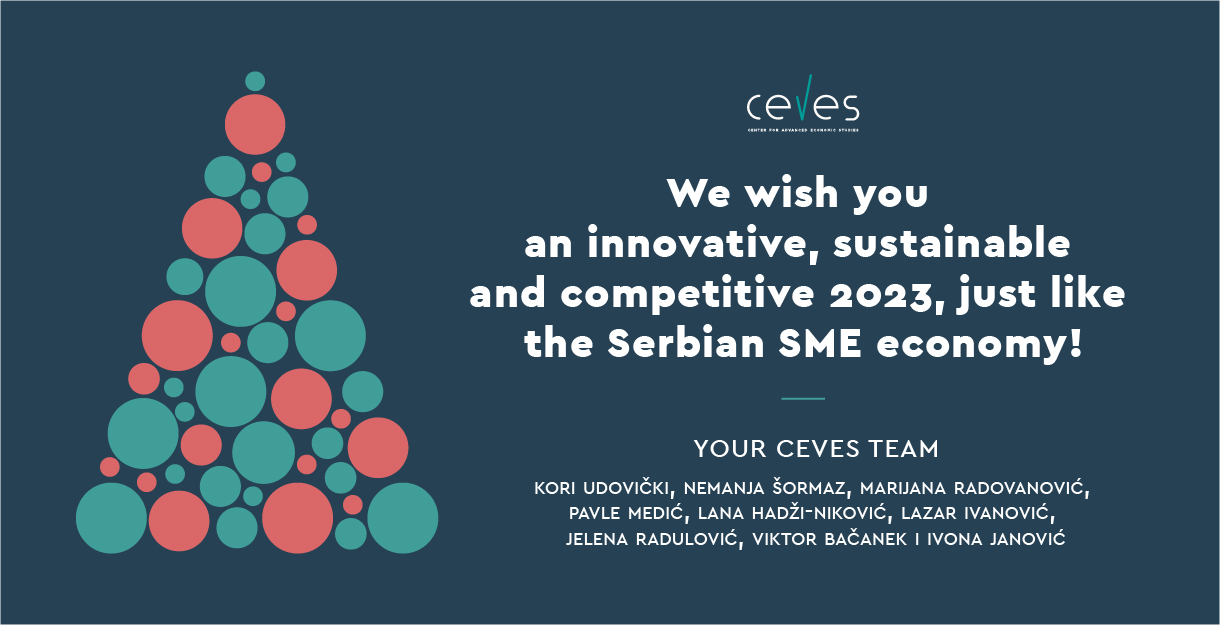
Newsletter: It’s time for SMEs and Happy New Year!
Dear friends, partners, donors,
During 2022, we advocated for sustainable development in Serbia, and particularly for the key role that small and medium-sized enterprises (SMEs) are needed to play in it. We have also shown that SMEs a have great potential to do so—provided that policymakers and society stop treating them as “second-class” economic citizens. The past year has brought political uncertainty, increased costs, and declining export demand due to the energy crisis, the war in Ukraine, and an increasingly sceptical attitude of business partners towards the international position of Serbia. In addressing these challenges, SMEs have been showing grit and resilience, as during the pandemic. And this, despite the additional pressures and risks they suffer in the absence of the rule of law in Serbia. Or maybe it’s exactly because of it—they operate prepared for unpleasant surprises. A piece of good news is that SMEs are showing an increasing interest in greening and digitalization. By promoting those transformations, we plan to make a small contribution not only to the growth of their productivity but also to living in Serbia by European values and standards.
Our New Year’s resolution is to work on encouraging the development of continuous and stable support for SMEs through cooperation with all the relevant stakeholders. We will also persevere in the effort to make Serbia a better society for all its citizens. We take this opportunity to summarize our work and messages in 2022 before New Year’s wishes and announce the key activities we plan for the year ahead.
________________________________________
Favorable circumstances we identified in the past have enabled Serbia to accelerate economic growth. This was an opportunity to turn growth into sustainable development, and it was missed. In the current crisis, failure to abide by European values in the way we work threatens not only to erode organizational / institutional capacity, as we can already see happened with EPS, but also a regression in the development accomplished thus far. Servicing EPS’ debts has required a significant narrowing of the fiscal framework (available in Serbian only), as well as a bigger increase in electricity prices than the European energy crisis would have required alone. Despite this, untargeted budget spending has continued: giving to broad groups of citizens including those who do not need help, and permanently worsening the position of those who need it most. This is dangerous considering the strong inflationary momentum. Also, in the long run, it is difficult to believe in the sustainability of the economic structure that is being built as decisions on sizable public investment are made outside the law, and without the scrutiny and participation of the public, or even the expert community.
As one of the coordinator of the “SDGs 4 All” Platform, we participated in the assessment of the progress Serbia made in 2021. Despite some improvements, Serbia has not made progress in achieving the 2030 Agenda. We paid special attention to the SME sector (more in the next section) and some of the key challenges they face: lack of skills in the labour market (Serbian only) and digital and green transformation. At the local level, we continued to work on strengthening local communities’ capacities for the management of their own development (Serbian only), while in three local self-governments – Pirot, Knjazevac and Sombor (Serbian only) – we actively worked on recognizing development opportunities and preparing local development plans.
CEVES OBSERVATORY
The war in Ukraine (started in late February 2022) pushed the already deteriorating economic sentiment in Europe deep into negative territory. However, there are encouraging indications that the decline is stabilizing, and even recovering somewhat in recent months, especially in the countries of Central and South-Eastern Europe. The economic sentiment in Serbia notably improves only in the last, November observation.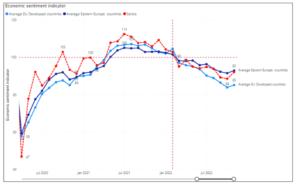
Source: Eurostat, consumer and bussines surveys
_____________________________________________
We are particularly proud of the exhibition “SME Serbia 2030:SME100 Expo”, held in June 2022, where we gathered and presented 100 leading SMEs (PDF for download). We showed their potential and started bringing together their voices to make them better heard. The conference spawned a number of initiatives (available in Serbian only) to further strengthen the competitiveness and innovation of the SME sector, which CEVES further on took and advocated for in front of decision-makers and the public.
From 2023, we are embarking on an advocacy campaign – IT’S TIME FOR SMEs! We want tangible change in SME positioning within Serbia’s policies, an end to the neglect or even discrimination that they currently suffer. In particular we will focus on: the return of the tax credit on investments (which large companies get and SMEs do not); raising export support to the level common in competing countries in Europe; reorienting the support criteria for attracting FDI from a focus on employment numbers, to the overall effect it has on the domestic economy, especially in the field of knowledge building. The campaign will be launched at the end of January with a panel discussion and display of the June SME100 exhibition, in the premises of the Serbian Chamber of Industry and Commerce. During a series of media activities, the campaign will include a panel discussion in the Kopaonik Business Forum on March 7 – where we will also present our new SME competitiveness and innovation index*, and the second conference “SME Serbia 2030: SME100: Expo 2023” in September.
*With the support of USAID, through the five-year project “Big Small Economy” implemented by ACDI/VOCA , which CEVES is a partner of since 2022.
_____________________________________________
CEVES STANCE
Instead of the (once key) question – when will Serbia enter the EU, the key question is becoming – will Europe enter Serbia, and when? These days the Serbian leadership and public are once again distracted by the complex situation in Kosovo, which threatens to spiral out of control, and erode Serbia’s image of stability. Stability, and its image, are a key conditions of the country’s further economic recovery. The second condition is the perception of a clear European perspective. This too is being seriously eroded by both the Kosovo problem and by Serbia’s lack of alignment with the key issue in the EU’s foreign policy – the attitude towards Russia. The third condition is the establishment of the rule of law and respect for European values in the management of public affairs. Laws are generally good, but they are not applied, or do not apply equally to everyone. In this context, the adoption of the currently proposed Law on the Police, which in fact legalizes the violation of basic human rights, would be the biggest setback in the previous two decades. By contrast, living in legal certainty, and policy development with the participation interested parties, would radically improve the business environment and the quality of public investments, therefore strengthening Serbia’s businesses while facing external challenges. And that is not all. “Europe in Serbia”, a condition that is entirely in our hads, would strengthen Serbia’s European perspective and trust.
_____________________________________________
We are entering the new year with announcements of the ownership transformation of public companies (into joint-stock companies), and particularly of the state-owned electric power company EPS i Norwegian advisors also participate will advise. The real “news” however these days has been that “EPS exports electricity again”. In fact, the Serbian power system will not return to full production capacity for at least another year, while public finances will have been saddled with repaying the price of last year’s disaster for much longer. The reorganization of public enterprises cannot transform them from political to well-managed systems until the establishment of the rule of law transforms paper competences into real ones. Meanwhile, some progress could be made by adopting consistent energy and climate strategies that would answer the question of how will Serbia meet the emission reduction commitments it has taken before the world. And what is the plan for when in 20-30 years there is no more coal? In any case, any real change will have to be preceded by serious preparations of a gradual reduction in the massive excess employment related to all public utilities. Most important and demanding is the preparation of alternative sources of employment, as it takes resources and time. We hope that the Norwegian advisors will see this as well.
In the coming year, we will make significant efforts to encourage SMEs and help them move on with greening their business and their communities. We will argue in a series of brochures and workshops, that making business green is not only a trend or a threat imposed by the European Union, but also a moral obligation and a global process that shape future demand and brings opportunities for improving productivity and profitability of the business.
_____________________________________________
THANK YOU NOTE
Great thanks to our partners from the project “SDGs 4 All”, as well as GIZ, SDC, World Bank, National Convention on the European Union, USAID, embassies of Germany, Switzerland and Slovenia, and other donors and partners who motivate us to jointly seek solutions to the challenges of a sustainable future for the Serbian economy. We look forward to further cooperation!
_____________________________________________
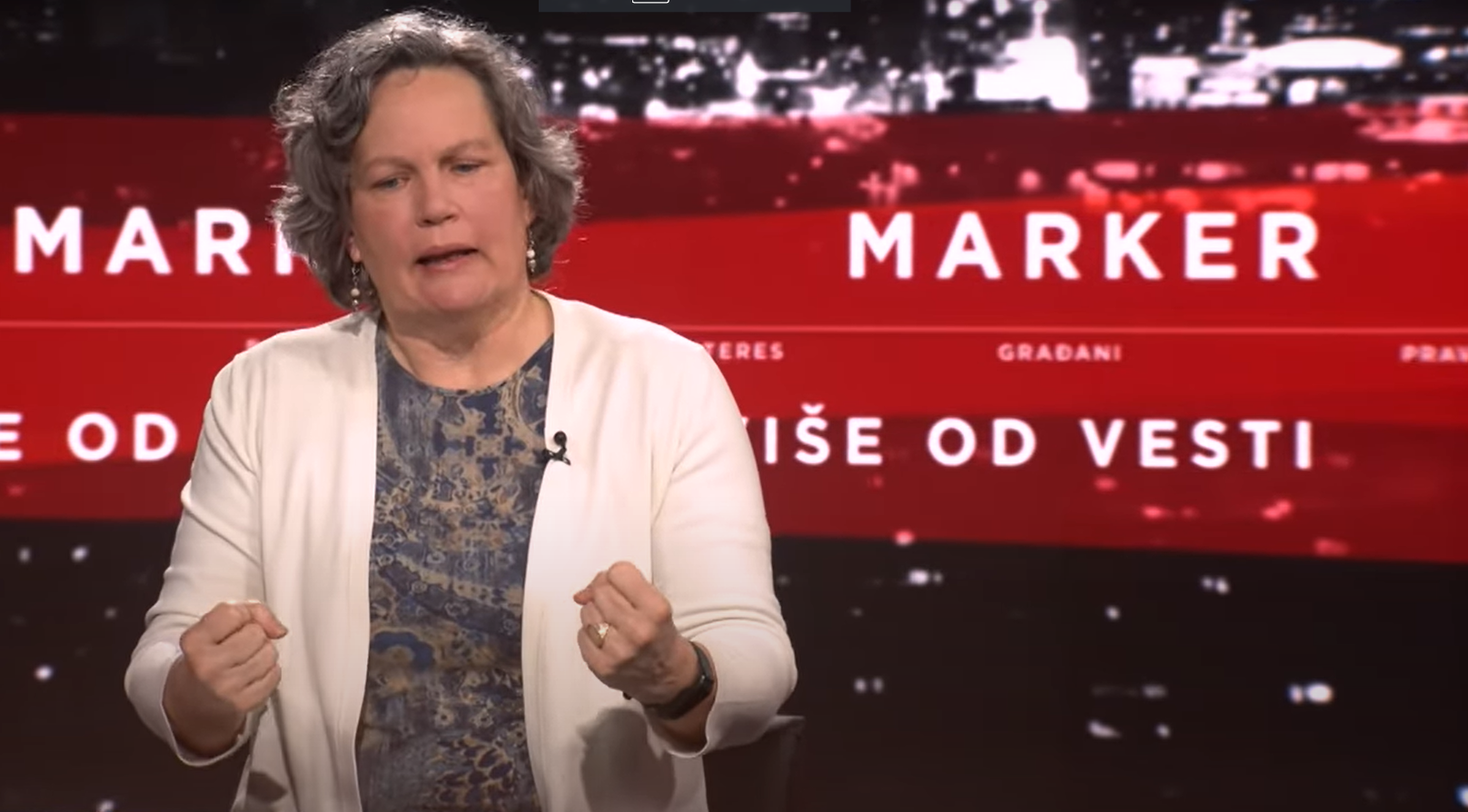
Kori Udovički: In the process of EPS reform, the biggest problem has always been political interference
Chief Economist of Cevesa Kori Udovički stated that in the process of reforming the Electric Power Industry of Serbia, the biggest problem has always been political interference.
“It is a much bigger problem than simple corruption.” If you manage the system badly as we have just seen. The price of that overwork, the price of not maintaining something properly is ultimately higher than what someone has installed somewhere,” said Udovicki on Insider television.
Udovicki said that because of this, it is necessary to ask the question of where the policy is leading EPS because, as she stated, there is a threat of a coal shortage.
“We will run out of coal in 20-30 years.” In energy, that period is tomorrow, and we are still talking about it as if it is something that is yet to come,” she added.
Regarding the Serbian government’s move to hire a company from Norway to propose a reform model, Udovicki says that the company can act as an advisor, but that the state will ultimately implement the reforms.
“When it was necessary to stabilize coal production in Kolubara, a director for the Kolubara Mining Basin was found who knows how to organize production. The problem is that he is a politician from another story. And what do we do now? “Are we going to let the Norwegians throw politics out of the EPS,” asked Udovički
You can watch the entire interview at the following link.
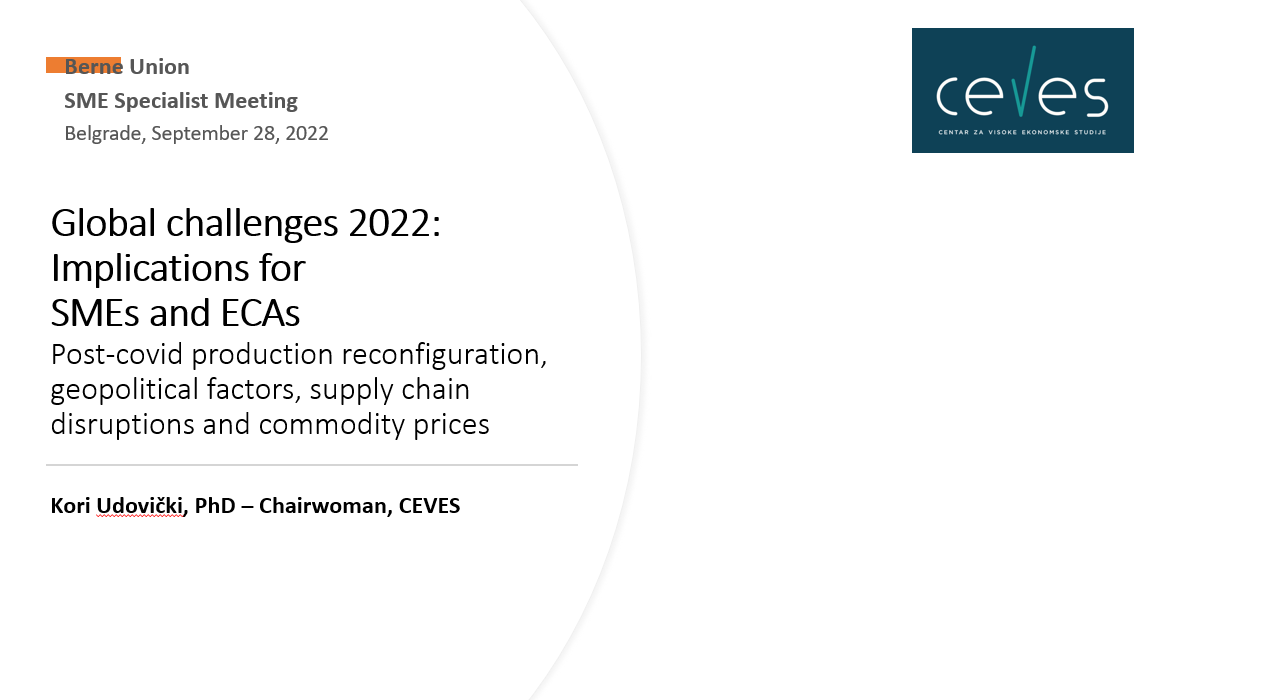
Global challenges 2022: Implications for SMEs – Kori Udovički
Kori Udovički the, president and chief economist of CEVES presented the analysis of the key global chellenges and there implications for SMES in Serbia at the SME Special Meeting, hosted by AOFI in partnership with Berne Union held on 28th and 29th September in Belgrade. More about post-covid production reconfiguration, geopolitical factors, supply chain disruptions and commodity prices find in presetnation: Berne Union Global Challenges and SMEs_wAnim

CEVES OBSERVATORY 30.06.2022
Despite the energy crisis, the war in Ukraine, difficulties in global supply chains and turmoil in global capital markets, the global post-pandemic economic recovery continues. This is a key factor in maintaining solid economic growth in Serbia, based primarily on external factors — relatively strong growth in exports (5.7% in real terms in the first quarter of this year compared to the previous year) relatively strong inflow of foreign direct investments (FDI – 698 million euros net in the first four months). In addition, some domestic factors also played a significant role – such as a strong fiscal stimulus (deficit of 4% of GDP) in which increased spending on public investments plays a key role (read more about the macroeconomic framework in the Assessment of the NKEU Working Group for Chapter 17) . In both cases, that growth is very unstable. The global recovery is increasingly threatened by the efforts of key central banks to suppress inflation, which in May reached a level of 8.8% in the EU-27 (10.1% in Serbia) and is currently accelerating (hence the tremors in the capital markets). This threat alone is a grave threat for Serbia as well, because the global recession would hit us both through the reduction of exports and through the reduction of FDI that can happen due to the growth of global uncertainty.
Serbian economic growth is also threatened by other factors, above all the extremely short-term horizon with which the Government responds to an increasingly complex situation. The political effect of “closing ranks” that accompanies every war, including the one in Ukraine, was not used in Serbia to prepare citizens for long-term changes in the energy sector. Even if we manage to avoid shortages, an increase in energy prices is inevitable, and it should have already happened. For now, the increase in energy import costs, which in the first four months of 2022 amounted to 130 million euros for electricity, over 900 million euros for gas, and certainly a certain amount for the import of fuel oil, is “absorbed” by public companies — EPS, Srbijagas, and heating plants. In other words, it will come due in the future (which is very uncertain). Their prices for households and small commercial consumers have not been adjusted since the beginning of the crisis, and for larger commercial consumers only by one part (more about the “oil” formula” in the interview). On the other hand, the geostrategic ambivalence of Serbia in relation to the war in Ukraine can lead to the stopping of capital flows not only from the West, but also from other parts of the world.
We do not see any preparation for the measures to increase energy efficiency, which could significantly contribute to the reduction of energy consumption and dependence on imports by the next, and especially the winter after. We also see no other measures that could contribute to “cushioning” the fiscal and economic shocks that are likely to continue to multiply. For instance, instead of bans on exports, with better management of commodity reserves, measures to support the provision of expensive fertilizers in order to support agricultural production would benefit the Serbian economy even in conditions of increasing prices of its products that will certainly be maintained in the medium term. In both this, as in the case of discrimination against domestic SMEs, in addition to the absence of political ideas/will, the issue is also the inability of institutions to act in a targeted manner (see interview).
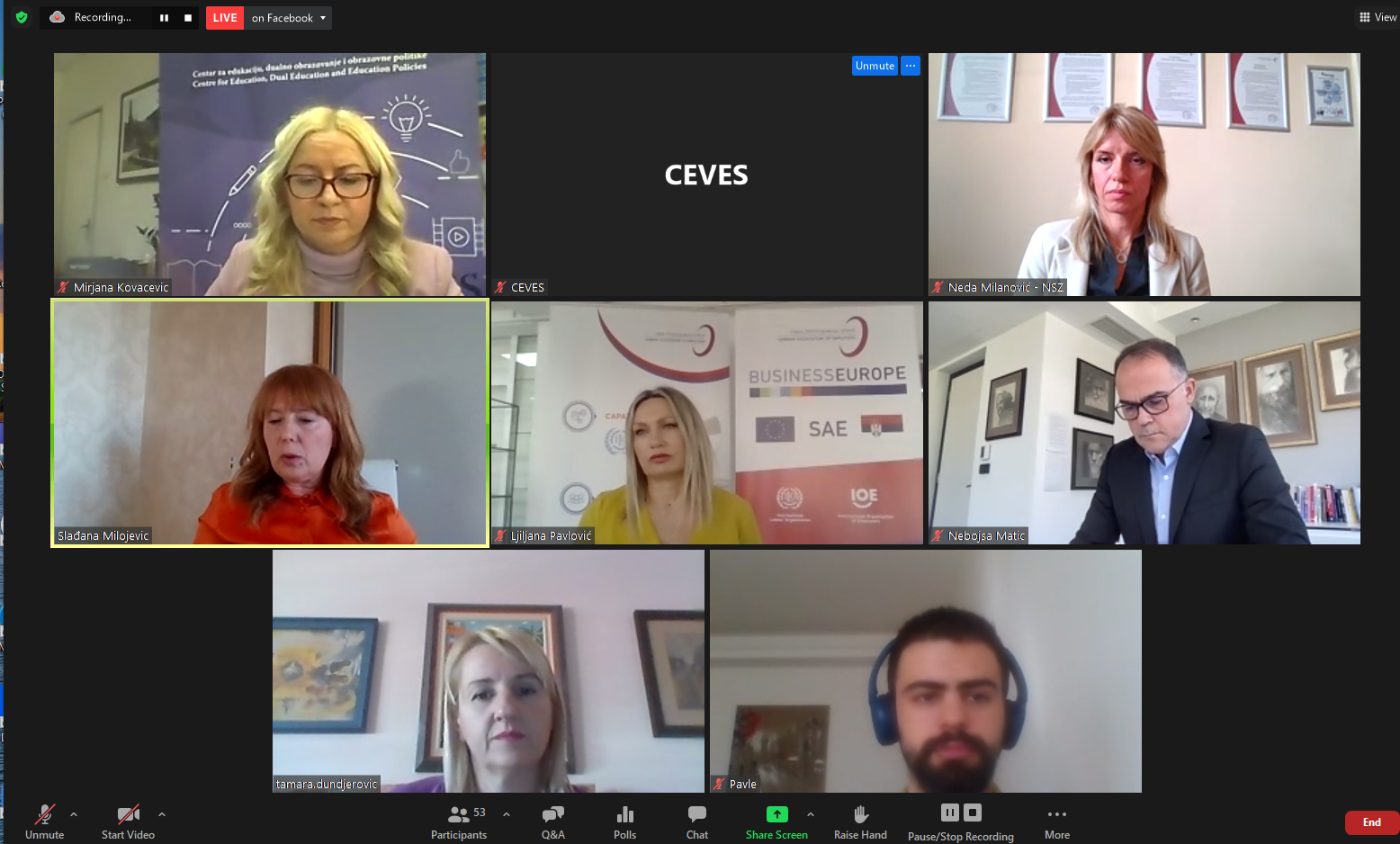
(SR) Održana konferencija „MSP Srbije 2030: Razvoj veština kao preduslov razvoja domaće privrede“

“REAL” SOCIO-ECONOMIC DEVELOPMENT & HAPPY HOLIDAYS!
CEVES Newsletter
It is our New Year’s resolution to be in more regular contact with you so that we can better support each other’s efforts to make Serbia a better place. We take this opportunity to wish you a Happy New Year and recapitulate what we do, and how we articulated it throughout the outgoing year.
_______________________________________________________________________
We advocate for “real” socio-economic development, the kind that benefits all citizens not only with rising incomes but also with growing opportunities to satisfy nonmaterial needs and rights. This is the kind of development that “leaves no one behind” and that recognizes that we should also protect those who are yet to be born—by being environmentally sustainable. That is why we embrace the United Nations’ 2030 Agenda. You can find the 2030 Serbia vision and priorities that together with our partners we advocate for in the document on our “SDGS for ALL” Platform. To contribute to this vision, we fight on the following three fronts.
_______________________________________________________________________
Strengthening of the domestic economy, comprised of small and medium-sized enterprises, or businesses that were SME until recently, which is overshadowed by foreign investment and the public sector. After a decade of destruction and two decades of painstaking transformation, a new domestic economy has emerged. It is a reservoir of knowledge, skills and entrepreneurial energy that, with proper support, can ensure the development of the most remote parts of the country, as well as lead us to the front lines of the technological revolution.
_______________________________________________________________________
Strong and responsible institutions, that equally respect everybody’s rights and that do not look for “signals from top levels”. Rather, they plan policies so they and all interested parties can know what the institutions will do and where they will put the resources at their disposal. Such institutions would have been able respond to the pandemic both more efficiently and far more effectively.
_______________________________________________________________________
CEVES’ STANCE
Recent protests have been powerful enough to result in changes of two laws, because they touched on the wider and deeper distrust that Serbia’s society—and not just opposition supporters—feels towards the state. This lack of trust, i.e. the weakness of the institutions that produce it, has an ever greater cost in terms of “real” socio-economic development. We wrote about the fact that it will have a particular cost in the development of mining, here.
For green development, that in Serbia is only starting to be understood. Beginning to transition away from coal is not a mistake, contrary to the message repeatedly recently sent from the top of the government. We should embrace green development because it takes us into the future and because the development that develops people, relies rather on smarter and less on energy-intensive industries.
_______________________________________________________________________
CEVES OBSERVATORY
The fact that all important decisions in Serbia are made by one (power) center instead of by decentralized institutions, leads to missed development opportunities. For example, the annual FDI inflow in the previous three years is nearly EUR 2 billion higher than in 2013-14. However, only in the automotive sector (comprising only 10% of the increase) is there evidence that we are taking advantage of the unique opportunity that has opened up for Serbia in the ongoing restructuring of global value chains. This is the “exception that confirms the rule”, as the attraction of investment into automotive is systematically supported by teams of people – both on the Serbia and the German, originating, side of the flow. Flows into the rest of the processing industry are, in fact, unchanged or even declining! The main increase in inflows occurred in land development and real estate (which we have yet to explain!), and in the mining and basic metals sectors. These are precisely sectors comprised of “a small number of large projects”, in which negotiations and decisions can depend on one man.
Source: National bank of Serbia // Methodological/coverage notes
_______________________________________________________________________
We are thankful to our partners from the SDG project as well as GIZ, then BTD, Konvent, USAID – Innovation Project, ILO as well as others, who motivate us to jointly seek answers to questions about the sustainable future of Serbia as well to look for opportunities to support the SME community, through supplier chain development, innovations, and start-up development.
We look forward to working with you!
_______________________________________________________________________
Your CEVES Team
Kori Udovički, Nemanja Šormaz, Pavle Medić, Ivona Janović, Marijana Radovanović, Lana Hadži-Niković, Viktor Bačanek, Lazar Ivanović
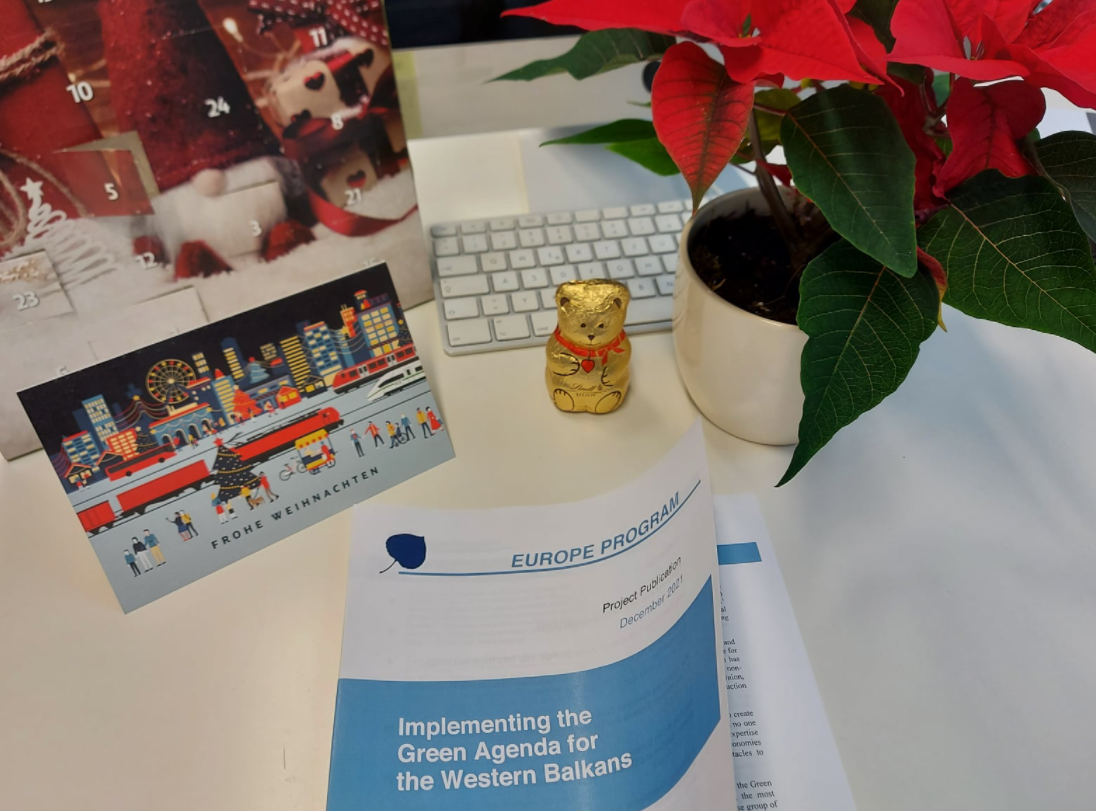
Analysis: Decarbonizing the Western Balkans: (Political) Economic Challenges and Opportunities
In cooperation with the Aspen Institute Germany, the Center for Advanced Economic Studies conducted analysis: “Decarbonizing the Western Balkans: (Political) Economic Challenges and Opportunities”. The analysis is part of a wider publication aimed at answering the question: How far the countries of the Western Balkans have come with the implementation of the Green Agenda?
The analysis focuses on the opportunities and constraints faced by the Western Balkan countries in the process of the green transition. The paper focuses on the necessary energy transition and its three most powerful and immediate impacts on the economy: the impact on the energy sector itself (part II), on the economy (excluding the energy sector) as a consumer of energy (part III), and on the economy as a beneficiary of investment in the greater energy efficiency of buildings and heating (part IV).
In addition to the CEVES analysis, publication consists of three more papers: The Role of the Business Community in Implementing the Green Agenda for the Western Balkans and Decarbonizing the Economy; The Role of Civil Society in Implementing the Green Agenda for the Western Balkans and Decarbonizing the Economy; Just (Energy) Transition in the Western Balkans and the Involvement of all Relevant Stakeholders.
You can see the entire publication at the following link.
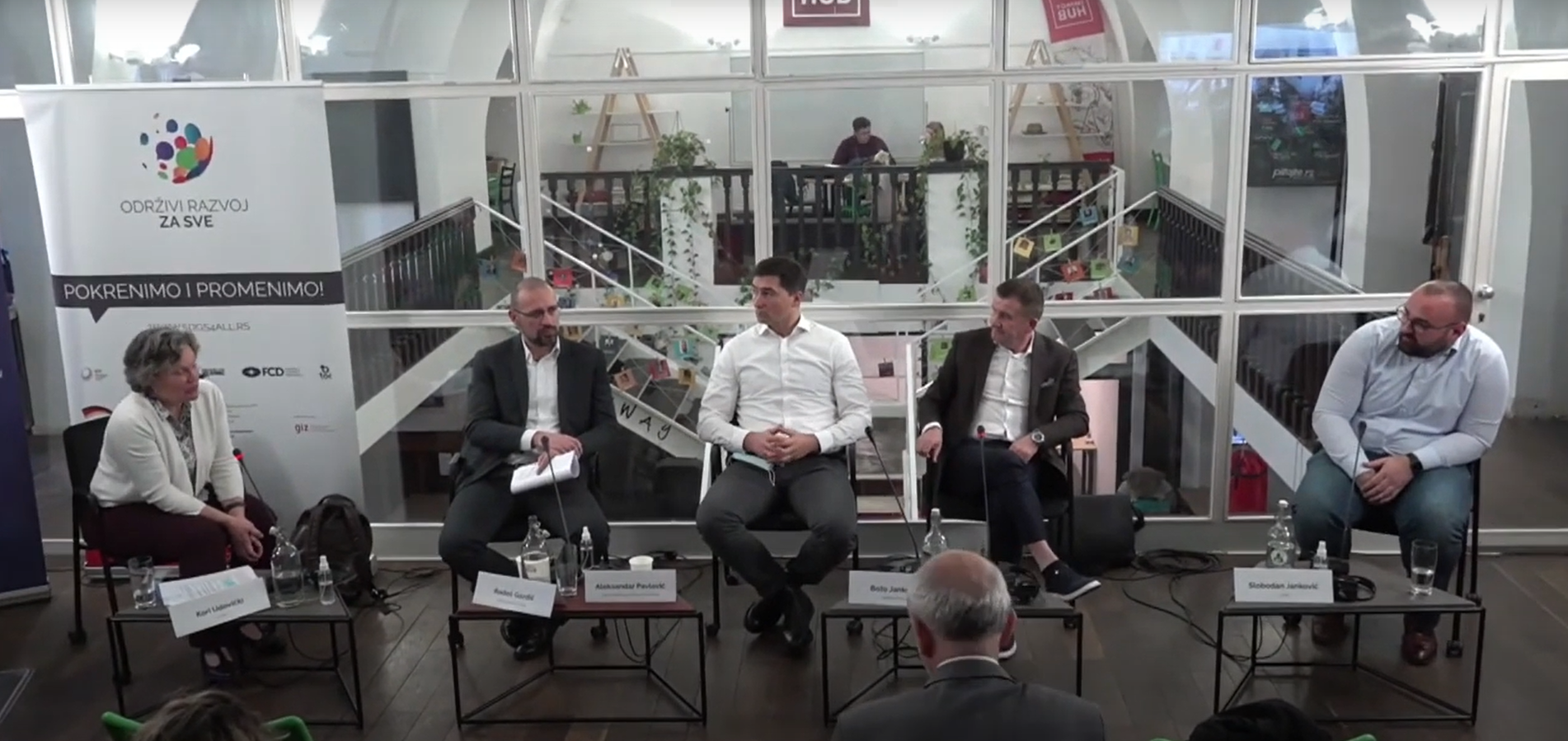
(SR) Održana Konferencija CEVES-a i TOC-a „MSP Srbije 2030: Saradnja – veliki iskorak za „malu“ privredu“
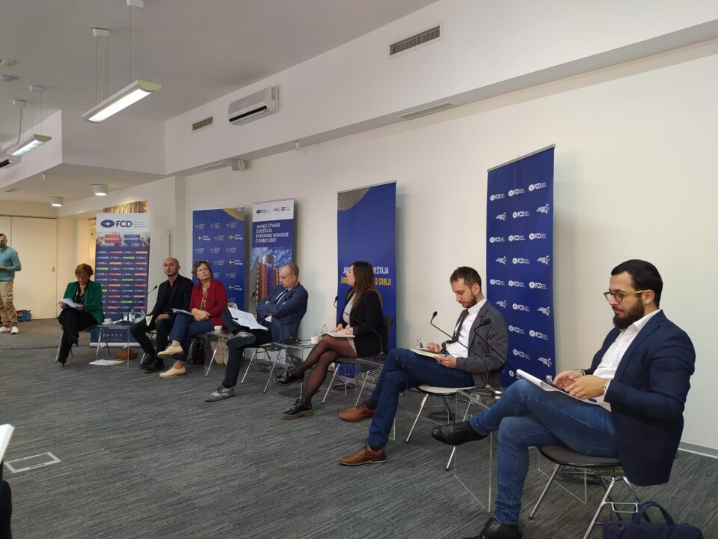
(SR) Kori Udovički – Javno čitanje izveštaja Evropske komisije o Srbiji 2021

Green energy for our children (for real)
Author: dr Kori Udovički
In Serbia worries about the energy crisis are fading. However what remains is the mistaken idea that green energy is to blame. Even worse is the notion that it is good for Serbia not to give up its coal. In Serbia, only a few weeks before the Global Summit in Glasgow there had not been a single mention of the Summit. It is true that some of the recently adopted green European polices have contributed to an additional jump in energy prices, but the causes of the crisis lie elsewhere. One cause is the unpredictability of supply and demand not only in terms of energy but within the context of the global recovery from the crisis brought about by the pandemic, especially in the case of China. Another is the intensified manifestation of climate change that can only be dealt with by focusing on green energy. Still, even if it were true that green policies are to be blamed, it would be a big mistake to cheer having ignored this problem for so long. The last train is leaving for humanity to be able to contain climate warming to somewhere between 1.5 – 2.0 C – the limit beyond which our life on earth would become unimaginable. In the event we miss the train Jeff Bezos is “getting ready for Mars”. But where will Serbia go?
The pandemic and the unstoppable growth of Chinese demand
During last year’s lockdown, fossil fuel prices plummeted– to the point of the price of oil even turning negative! Just as then this could not be blamed on the slow global transition to green energy sources, now a presumable rush in that direction should not be blamed for their dizzying growth. This time, the difficulties in forecasting the demand for everything, including energy, were followed by unexpected, record high, growth of China’s demand for thermal energy (gas, coal, nuclear energy). In the 12 months to August, Chinese consumption went up by as much as 14 percent compared to the previous period, although economic growth was relatively slow. The Chinese demand for gas was increasing even faster, not because China had given up coal, but because its record-breaking production has been growing more slowly. Coal production would have gone up more if coal-mine safety standards had not been strengthened following a series of accidents leading to loss of life for the miners.
China has not (yet) phased out coal, nor is it cutting down its production. For now it is only (reasonably and understandably) trying to meet its voracious growth in energy demand by increasing the share of renewables and the much slower growth of coal consumption. There is no doubt that China has embarked on a path of renewables because of its well-known long-term view of the future. The pollution of Chinese cities has provided an additional sense of urgency. It is also obvious that in this particular case, the problem lies primarily in the imbalance in the Chinese energy market, to which the Chinese authorities have responded in the only way possible at present: by raising the price of electricity for industry and quietly announcing a price increase for households as well.
Extreme climate and geostrategy
Meanwhile, throughout the past year global warming brought about an extraordinary number of examples of extreme climate events affecting the rise in demand and a drop in fuel production. First, the winter was extremely cold and the summer was extremely hot, thus causing a rise in energy consumption, gas especially, for heating in the winter and for cooling in the summer. At the same time, due to extreme rainfall and floods coal production declined in Indonesia and Columbia, the key global market suppliers, whereas drought (yes, you guessed it–extreme again) in Brazil reduced the Brazilian production of hydro-energy and drastically increased their demand for coal and gas on global markets. All of this was followed by declining wind farm production in the North Sea due to unusually mild winds.
Here we need only briefly mention geostrategic factors as they are not the focus of this text. It is quite certain that Russia was somewhat hesitant about supplying gas hoping that this would bring forward the launching of the Nord Stream 2 gas pipeline. At the same time, the sanctions imposed by China on imports of Australian coal (which are now being quietly bypassed) contributed to China’s problems.
We can only wish the problems derived from the accelerated transition to green energy! To the contrary, global greenhouse emissions stand at record-high levels. An accelerated construction of renewables facilities is the only possible long-term response to this crisis, and even beyond, to the climate crisis. The International Energy Agency (IEA) has estimated that the current construction effort by the global public sector is currently three times lower than required to keep the global warming below the desired limit. Luckily, the EU response to the ongoing crisis is to announce higher investments in energy transition. Still, it is questionable whether the current crisis will weaken the measures the world would be ready to commit to in Glasgow. These measures need to finally and effectively change the ways in which we are living today.
Fallacy instead of clarification
In this regard (and in many others), Serbia is persistently being fed a red herring.
“Coal ensures our energy independence.” And why would it be a problem to “independently” rely on our own renewable energy? By relying exclusively on coal, we can secure demand for the next 30 years, while entering into conflict and showing no solidarity, with the accountable world and our offspring. By relying on renewable resources, Serbia can secure its “independence” for the centuries to come, given that Serbia is abundantly endowed (despite still not having a fair estimate of just how much and at which cost). Just to make this clear, for the time being, “relying on renewable sources” surely implies a necessary reliance on thermal energy for the so called “baseline production”. “With coal we can sell electricity when the price is high and buy it when it’s cheap.” We can do the same if we start gradually phasing out coal and switching to renewables.
True energy independence is a privilege of a small number of countries, and Serbia is surely not one of them. However, even such countries, not only the US, but for instance Saudi Arabia as well, have started heavily investing in renewables. It is a fact that renewable energy calls for intensified trade in energy, and, in our case, this means deeper integration with the European energy market. Relying on gas, highlighted these days as a positive trait, and let alone oil, will not bring energy independence either. I am not convinced we are getting gas at an extremely favorable price, but if that were true, this would only corroborate the non-existence of independence. Nothing comes for free in economics and politics.
The actual reason underlying the resistance to green energy in Serbia is the political economy. One of the aspects is that (for now) it unquestionably costs more than coal-based energy. The other is that coal is linked to a whole range of strong, even corrupted, vested interests. All these are difficult factors for a populist government to handle. Still, they are not insurmountable – we just need to take into account the fact that the price of fossil energy should include the cost of our health and the cost of corruption.
The responsibility of “common” citizens
An essential issue remains – accountability. It can be debated how big should the contribution of “small and poor” Serbia be in fighting climate change. However, we cannot simply ignore this fight. It would be irresponsible, and also wrong, to lull ourselves in the notion that the green transition is something imposed on us by the “evil West”. Quite contrary to that, the strongest pressure for action was created by green parties protesting for years against global capital and the powerholders. For years, these were not mainstream forces. The facts about climate change have been persistently stressed by the United Nations panel convened three decades ago, comprising nowadays more than 600 of the most eminent global experts
The most affected by climate change are actually the poorest- small poor island countries that will, for instance, be entirely flooded, or tortured semi-desert-based agriculture that will become completely thwarted.
The awareness about the necessity for change penetrated the mainstream in full force with the adoption of the UN 2030 Agenda, namely of the Sustainable Development Goals back in 2015. Serbia, however, is still ignoring them. Luckily for our grandchildren, “ordinary” Westerners are becoming increasingly engaged, and the awareness is now reaching more and more people in power. This May, in a single regular day, an “ordinary” judge in the Netherlands had ruled that the Royal Dutch Shell company ought to reduce their net emissions by 45% by 2030. At the same time, a small, so called “activist” hedge fund “Engine No 1“ won in the fight for a similar change in the policy of ExxonMobil, the largest oil company in the USA. The Fund achieved this by engaging in raising the awareness of the major shareholders- these are the pension funds of “ordinary” people- to vote in favor of a change at the company assembly session. On the same day, the shareholders of Chevron, the second largest US company, voted for the emission reduction. It doesn’t matter anymore if the vote of the shareholders is cast this way because of the future of their own children or because it feels stupid to hold the shares of a company not accepting the fact that the demand for their products is declining, so it may as well disappear one day. What matters is that the change is not doubted any longer.
I made a joke at the beginning of this text. The richest man in the world, the owner of Amazon, Jeff Bezos, recently took his first cosmic flight in his private rocket: he didn’t say he was planning to flee to Mars, but that, in his view, mankind will have to move their polluting production “somewhere out there”. I truly believe this will not be needed. In any case, Serbia cannot and should not try to remain “independent”, while actually being isolated and poor. The green transition is leading us to the future. It would be much better to steer this journey on our own, in a smart and accountable way, using our own potential, than to be forced to do so while lagging behind the others.
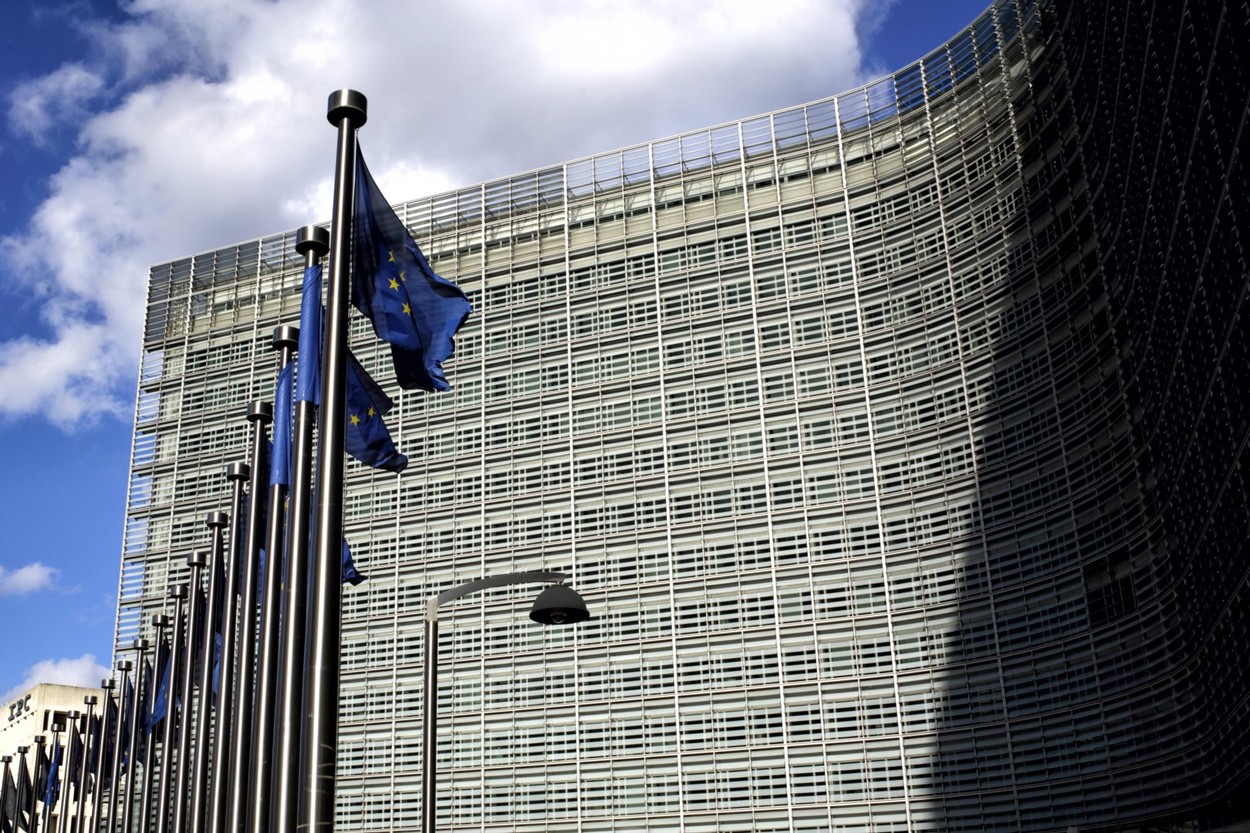
Policy paper “Reaching European level of the rule of law and institutional quality”
Within the “SDGs for ALL” Platform, Center for Advanced Economic Studies (CEVES) has developed a policy paper “Reaching European level of the rule of law and institutional quality”, which aims to contribute to the fulfilment of the UN 2030 Agenda for Sustainable Development in the Republic of Serbia, with the focus on SDG 16 – Peace, justice and strong institutions. This policy paper is focused on a limited number of priorities related to the SDG 16, specifically addressing the issues highlighted in the latest European Commission’s Annual Progress Report for Serbia for 2020.
Peace, security, and rule of law are essential to achieve all the SDGs, including SDG 16, and simultaneously represent conditio sine qua non for Serbia’s EU accession too. In order to escape formalistic “thick-the-box” type of monitoring of SDG 16 achievements, Serbia should develop its own monitoring system, at both national and local level, adjusted to Serbia’s real and evidence-based needs. Serbia should accomplish this task within the frame of the EU accession process, using available technical, financial and expertise assistance from the relevant EU institutions, Member States and other international organizations. Special emphasis should be put on how to strengthen democratic institutions, step up fight against corruption and improve strategy and policy planning, as these are the most critical elements for creating a development supportive environment.
The document is available on the following link:
Reaching European level of the rule of law and institutional quality
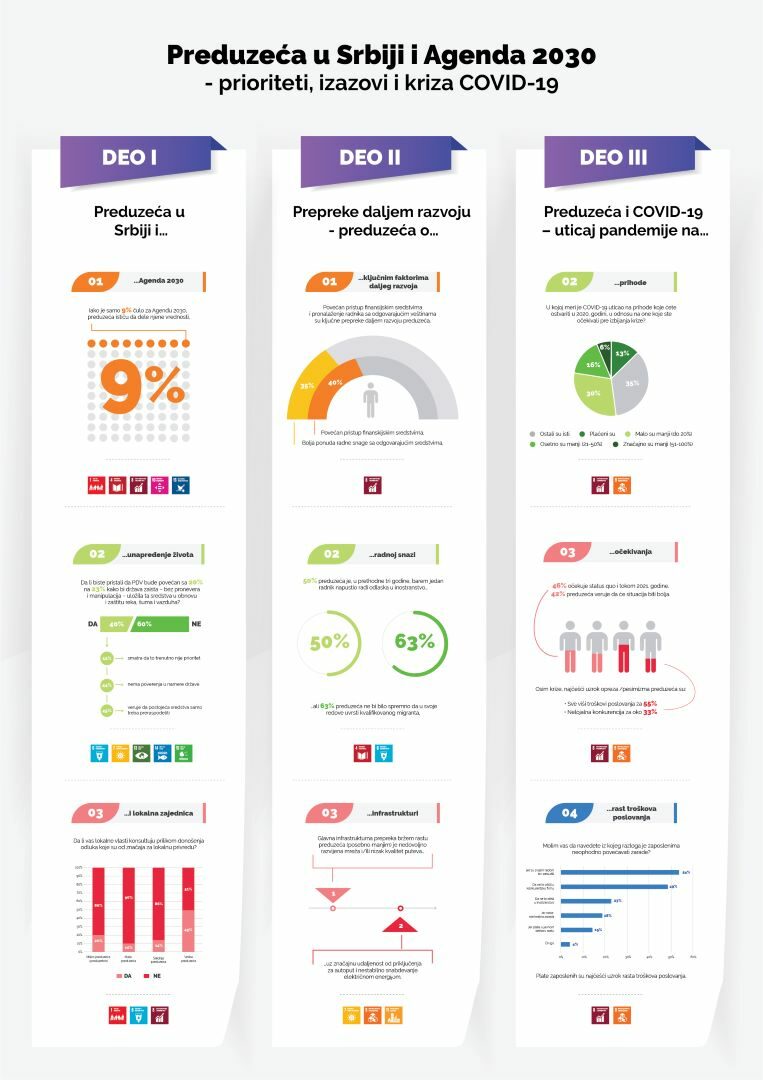
Publication “Enterprises in Serbia and Agenda 2030 – priorities, challenges and the COVID-19 crisis”
Within the “SDGs for ALL” Platform, Center for Advanced Economic Studies (CEVES) introduces publication “Enterprises in Serbia and Agenda 2030 – priorities, challenges and the COVID-19 crisis”, which aims to contribute to the fulfilment of the 2030 Agenda for Sustainable Development in the Republic of Serbia. The publication showcases the results of a survey conducted in October 2020 on a sample of 1100 enterprises in Serbia differing in size, sector, and the region in which they are located.
The publication provides answers on questions regarding familiarity of enterprises in Serbia with the 2030 Agenda, their societal priorities, challenges they face towards faster growth, and the influence of the current pandemic on their expectations and business activities. The survey reveals which topics and initiatives are identified by the enterprises as the most relevant for improving living conditions (on local and national level) and whether the enterprises additionally engage in making contribution to the community. Through the survey, the enterprises mapped the main factors influencing (or constraining) their further growth, such as stable economic growth, digitalisation, infrastructure and deficiency of qualified labour. They expressed their positions about foreign direct investments’ influence on their local communities, but also about issues of global concern, such as protection of the environment.
The document is only available in Serbian on the following link:
Preduzeća u Srbiji i Agenda 2030 – prioriteti, izazovi i kriza COVID-19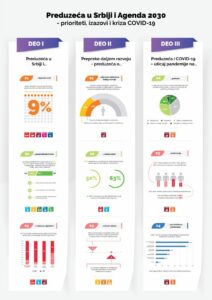

Call for proposals: Initiatives for innovative health and environmental measures on local level
The Fund for Sustainable Local Development invites all local civil society organizations (CSOs) from the following municipalities and cities: Priboj, Požega, Užice, Sremski Karlovci, Pirot, Zaječar, Bor, Knjaževac, Apatin and Sombor, to submit project proposals for initiatives to accelerate the implementation of the Sustainable Development Goals (SDGs) in the areas of health and environment.
The duration of the initiatives is foreseen to be up to 12 months with a budget of up to EUR 30,000.00 per initiative. Implementation of the selected initiatives is foreseen to start in June 2021.
Initiate proposals should be submitted in Serbian language, by sending required documentation to the email address: milica.andrejevic@giz.de
The application deadline is the 9th of May 2021.
For more information please visit website: Initiatives for innovative health and environmental measures on local level – Sustainable development for all (sdgs4all.rs)
Full text of the Call for proposals and documents needed for application are available in the document:
Call for proposals – Initiatives for innovative health and environmental measures on local level

Policy paper “Pathway to social consensus on key objectives for sustainable urban development”
Within the “SDGs for ALL” Platform, Center for Advanced Economic Studies (CEVES) has developed a policy paper “Pathway to social consensus on key objectives for sustainable urban development”, which aims to contribute to the fulfilment of the UN 2030 Agenda for Sustainable Development in the Republic of Serbia, with the focus on SDG 11 – Sustainable cities and communities. The subject of this document is an overview of key issues for fulfiling strategic priorities, the importance of SDG 11 for achieving a balanced territorial development, and the analysis of three complex challenges for urban development on which there is a social consensus that need to be resolved.
There is only ten regional centers for waste management in Serbia, while 40% of municipal waste is being deposited at illegal dump sites. This is why the establishment of regional waste management centers should be the first target within the SDG 11. Completing the process of legalizing illegally constructed facilities in Serbia is considered as the second target. Five years following the enforcement of Law on legalization of facilities, 364.400 illegally constructed facilities has been listed, out of which only 210.000 with positive outcome. The third target is related to increasing citizens’ participation in creating urban plans. Such plans are usually adopted in a non-transparent way with citizens being engaged only formally. The recommendations for these three targets are a result of analysis of strategic documents and regulations, and qualitative research methods – individual interviews with decision-makers, municipal activities experts and experts for environment, as well as with sectoral associations.
The document is only available in Serbian on the following link:
Analiza “Put do društvenog konsenzusa oko ključnih ciljeva održivog urbanog razvoja”

Policy paper “Reducing inequalities – pathway to sustainable development”
Within the “SDGs for ALL” Platform, Center for Advanced Economic Studies (CEVES) has developed a policy paper “Reducing inequalities – pathway to sustainable development”, which aims to contribute to the fulfillment of the UN 2030 Agenda for Sustainable Development in the Republic of Serbia, with the focus on SDG 10 – Reduced inequalities. The subject of this document is an overview of the inequality in the Republic of Serbia with a set of recommendations for improving the current situation.
Inequalities in Serbia are high, and mostly driven by the following factors: labour market inequalities, failure of welfare state mechanisms to reach some vulnerable segments of society, gender inequalities and inequalities in education. After some improvements over the last few years, Gini coefficient in Serbia stood at 33.3 points in 2019 making it one of the highest in the EU. In fact, while the EU average stood at 30.2, only Bulgaria, Romania, Latvia and Lithuania had higher Gini coefficients (and therefore higher inequality). Issues related to inequality are not considered as a priority in public policies in Serbia. Even though some aspects indirectly affecting inequality such as poverty and social inclusion are given somewhat more attention, strategic documents addressing it directly seem to be missing. The National Economic Recovery Plan encompassing all relevant targets of SDG10 and a new ESRP that takes into account all relevant aspects of reducing inequality, including inequalities in income, consumption and access to basic social services, should be adopted. The best way to resolve inequality is through creating decent employment, accompanied by changes in income tax policy, education reform (from preschool to higher education), adjustments in some welfare state mechanisms, labour market institutions and Active labour market policies as well as adopting the new Law on gender equality.
The document is available on the following link:
Policy paper “Reducing inequalities – pathway to sustainable development”

The economy or the nation’s health – a false dilemma
Currently, the text is available only in Serbian.
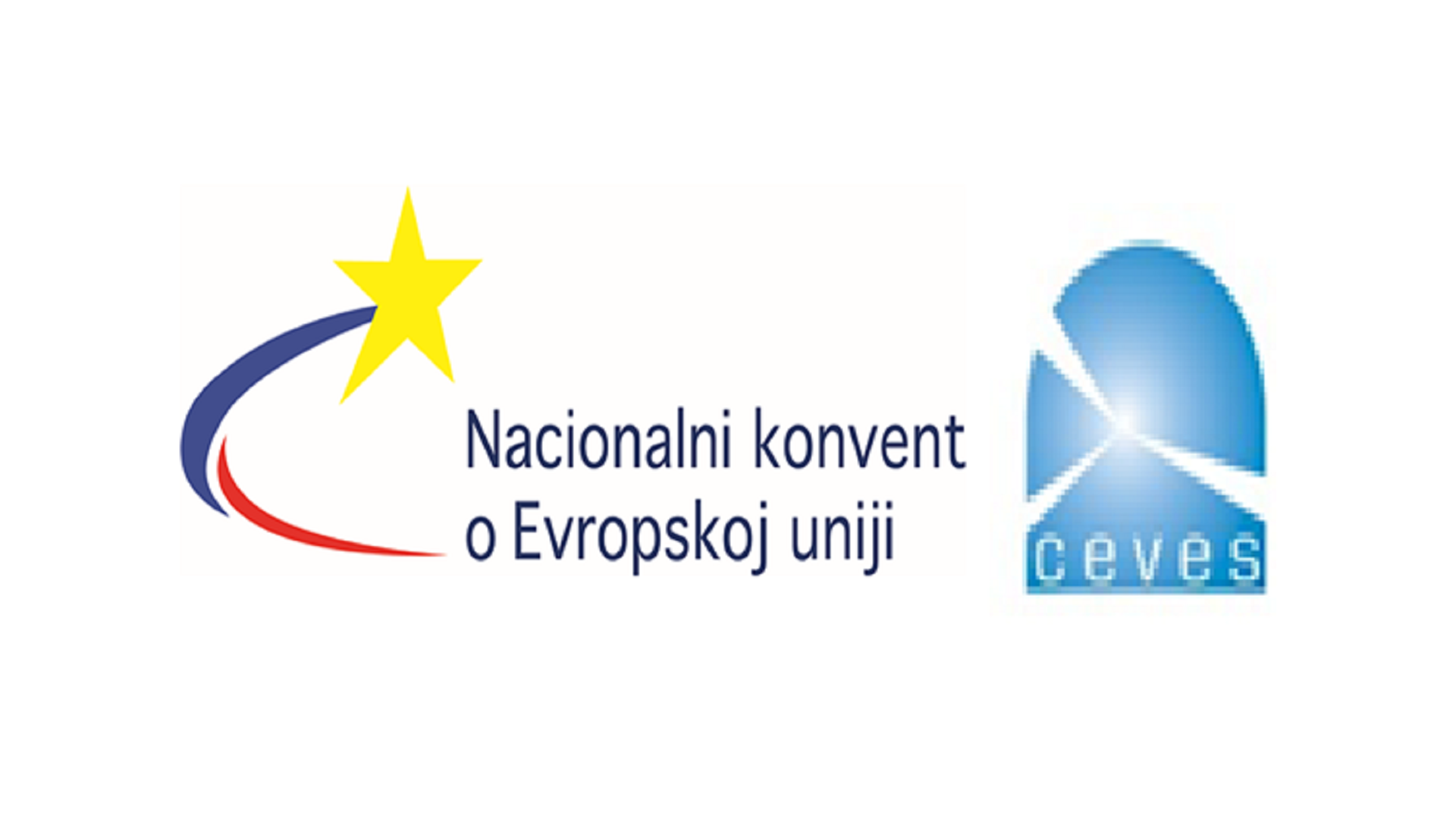
Working Group of the National Convention on the European Union for Chapter 32 – Financial Control, coordinated by CEVES, held a meeting with the Central Harmonisation Unit
Working Group of the National Convention on the European Union for Chapter 32 – Financial Control, coordinated by CEVES, held a meeting with the Central Harmonisation Unit on 11.03.2021. For the minutes from the meeting click on the link.

Positions of the Working Group of the National Convention on the European Union on Chapter 17 – Economic and Monetary Policy
CEVES held a meeting of the Working Group of the National Convention on the European Union on Chapter 17 – Economic and Monetary Policy on 11.03.2021. The position of the working group is that, although Serbia has achieved notable macroeconomic performance, there has been a growing macroeconomic imbalance, a lack of progress in strengthening the country’s capacity, and an intention to pursue complex economic policies needed to address the underlying structural factors. We thank the members of the working groups for their expert contribution, the National Convention on the European Union, and the European Commission for the opportunity to express our views, and we look forward to future cooperation. Click on the link for more details.

An Imperative for Support Measures – Abundant Liquidity to Accompany Payment Discipline
By Kori Udovički, orig. 29/03/2020, rev. 01/04/2020
The pandemic struck us just at the very moment when the payment discipline in Serbia begun significantly to improve. The measures to strengthen financial discipline in the private sector adopted in 2016 and the reduction in government arrears in the context of the fiscal consolidation, significantly reduced the chains of illiquidity in the system. Of course, no one could expect the pandemic, and it will inevitably cost us. But if the payment discipline is now loosened, the pandemic will cost us much more. Clearly, those who cannot access liquidity will simply not be able to pay. It is the Government’s responsibility to make sure there are as few of those as possible. In this, it must start from itself.
If the Government wants to mitigate the economic downturn during a pandemic and ensure its rapid recovery once the pandemic is over – a key task is to accompany intervention measures with safeguarding payment discipline. I start by assuming that it is clear to the reader how important this discipline is to economic growth. In short: non-payment creates a chain of illiquidity, which then creates problems for everybody. The first debtor affects his partners, suppliers, and employees, who in turn pull those, now many, into the third line of iterations, and so on. In this way, illiquidity snowballs through the system, further affecting everyone – even those whose business otherwise would not have been affected by pandemic at all. Its worse aspect is that it tends to spread distrust, discouraging new business ventures, and this carries over into the post-crisis period. Simply, economic activity is stifled over the longer term.
Payment discipline is actually one of the pillars of financial discipline. We understand financial discipline as “you incur only those costs that you can afford to pay”. We mostly interpret this as having to plan one’s budget carefully – which is, certainly, its first pillar. However, the discipline of realistic planning does not make sense unless it is accompanied by payment discipline. Once a cost has been incurred –it must be paid for. Even if it requires borrowing to pay. Not even the best plans can predict everything. Liquidity needs to be available/accessible if prompt payment is to always be possible. So, access to liquidity can be considered the third pillar of financial discipline. These three pillars reinforce one another. We will really take care to plan realistically only if we know with certainty that we will have to pay. Only if we plan realistically, will we be creditworthy when we need to access liquidity when unexpected problems do happen. And, finally, only if we have access to liquidity, will we be able to act upon that creditworthiness, that is–to borrow and to pay.
Financial discipline is a matter of political will and upgrading of the financial management system. In the distant past, we planned unrealistically and borrowed without much consideration. In the end, we paid for it through inflation. In the 1990s we had both hyperinflation and non-payment. Since the 2000s, we have started to plan somewhat more realistically, but not sufficiently. Therefore, we continued to fall back on non-payment, the so-called arrears. The unpaid expenditures from this year burden next year’s budget and hence leave less space for next year’s spending. However, this means that instead of the financial market, the difference is financed by businesses and citizens. The key at this point is to understand how harmful is the non-payment culture, and to tackle it. The Government needs to dare to look for liquidity in the market to cover the difference between expenditures and revenues, even unexpected ones. For financial discipline to be maintained despite more flexible borrowing in the market, Serbia needs to use more decisively and honestly its financial management instruments: primarily budget planning and oversight, which have been built over the past two decades.
Controlling the level of spending by limiting payments, in a time when the state needs to stimulate economic activity by increasing the deficit, is like stepping on the gas of a car while pulling the parking brake. It is this odd combination of actions that explains why in 2010-13 large fiscal deficits did not contribute more to growth. By the same token, a combination only in opposite directions explains how the recent sharp fiscal consolidation of 2015-2017 was not accompanied by such a larger contraction in economic growth: the tightening of the fiscal belt was accompanied by a reduction in public sector arrears giving the economy a substantial liquidity relief. It would be inexcusable if we fall into using the same wrong combination of instruments again. We need a true fiscal stimulus: a fiscal deficit, ie. overall public spending, paid for by adequate liquidity.
The price of the fiscal package, as well as its allocation, will be less important than the need that it be accompanied by a clear intention to maintain a sound financial discipline and the measures to do so. This should by no means be taken as a call to abandon reasonable budget planning. The state must weigh a very significant, but feasible package of support to the economy and citizens. In this greatly uncertain context, it is likely to err, but it should err on the side of looseness rather than tightness. We are witnessing “the mother” of unimaginable, unexpected events. Responsible planning, the first pillar of financial discipline will be observed if the plans are as realistic as possible, and then are revised as frequently as needed. The government, businesses, and citizens should certainly expect to produce much less this year, and therefore to be able to consume much less.
If paid in liquidity, excessive spending will be punished by inflation, which then needs to be quickly corrected. However, in its early stages of acceleration inflation would get as much production rescued as possible. Some increase in inflation should be expected and allowed, (this is a supply contraction crisis). However, if inflation starts accelerating, beyond 5-7%, then it could and should be arrested with corrective measures—tightening of spending, not by running arrears. Loosening of financial discipline overall, would, of course, mean repeating the biggest mistake of the past. If accompanied by excessive liquidity, it would lead to hyper-inflation. If, as is more likely, accompanied by insufficient liquidity and non-payment it would drag us into a “swamp” of unfulfilled obligations, general illiquidity and insolvency as well as distrust, putting a break on the eventual recovery for the fourth time in three decades. This, clearly, would depress economic activity for a long time to come.
Focus on Payment Discipline
In order to support payment discipline throughout the system, the government must show commitment, set an example, and pay off all its outstanding obligations. These are still substantial. Until recently, the state was the key ingredient in the lack of payment discipline in Serbia. On the one hand, as by far the largest single buyer in the market (procurement of goods and services by the public sector amounts to about 20% of GDP), its non-payments were, and may still be, the first and the biggest link in chains of non-payment. On the other hand, it is the Government that, through its example and actions, sets the culture of (non) payment. It sets the culture by taking on (un)realistic obligations and then (not)paying them, as well as systematically enforcing discipline in the private sector. This applies to both obligations that the Government assumes itself, and to those it obliges others to enter. Say, for example, that the Government requires the corporate sector not to lay off employees. As we all know that many companies will not be able to pay them, if the Government would not provide the means for them to do it, then we would all know from the outset that the Government is counting with arrears. The culture of non-payment would start to spread.
Maintaining a steady flow of money into the economic system will require the state to cover the difference between planned and realized resources through borrowing on the financial markets (in these circumstances, ultimately, with the central bank “printing money”), and not as was the case so far, by running arrears. Only thus will it extinguish the fire of illiquidity instead of stoking it with non-payment. On the one hand, the deficit needs to be maintained at the desired level by strengthening budget discipline, i.e. through more realistic budget planning (and by revising plans when developments go in an unexpected direction). On the other hand, payments and / or injection of liquidity into the system must go smoothly. The “music has to keep going” while the government has to keep paying promptly for it.
Realistic budgeting requires a systematic, not just political, disciplining of the public sector. Politicians at the helm of the state, like all of their appointees as well as civil servants, should believe that they are to budget realistically and that their expenditures will be paid promptly. This requires the introduction of genuine professional ex-ante control of public budgets that will check the reality of planning. At first, politicians might think that they are at a loss because their discretionary influence on spending would be curtailed. However, they would soon discover that they can still steer spending through policies, while earning many points for successfully managing the crisis.
As far as the private sector is concerned, the discipline of payment suffices to enforce financial discipline. Until the culture is changed, payment discipline must be imposed, but it also has to be feasible. On the one hand, the prospect of enforced collection or bankruptcy, if credible, will force everyone to plan costs realistically and to pay for them. On the other hand, in situations just like the current one, the private sector needs to have access to enough liquidity to pay even when their plans will obviously have been missed.
Availability of Liquidity
Securing enough liquidity, the third pillar of financial discipline, in general is the responsibility of the central bank. In these circumstances, it will also require that NBS’s measures be strongly supported by the Government.
The NBS has already taken adequate earliest measures to ease the immediate pressure of debt servicing on the economy and citizens. As a first measure, a moratorium on debt payments was introduced. This has put pressure on banks’ liquidity that the NBS has eased using favorable monetary and foreign exchange operations. Subsequent measures should contribute to the activation of the financial sector in support of the economy, especially the most affected ones. The problems are twofold in a crisis situation like the current. First, banks will need stronger incentives, as well as guarantees, to dare to issue new loans to most of their clients. It should be expected that tomorrow’s package of measures lends support to short-term lending, with low, zero or even negative interest rates. Negative interest is a subsidy to a bank and / or even a business entity. In this case, it is not only about providing liquidity but also about financial assistance to the borrower. The package is likely to also include significant government guarantees for loans issued by banks during the crisis, especially to the hardest hit sectors.
However, the second problem is that the above classic package of measures, aimed at enhancing liquidity through the financial system will not be enough for Serbia because its financial sector does not reach far or deep enough. The financial markets are so-called “shallow”-reflected in the low ratio of total domestic credit to GDP. While in countries with developed financial markets it is common for it to be 90-140% of GDP, in Serbia it is around 50%. In the more advanced transition countries. it is generally above 70-75%. This means, on the one hand, that our businesses rely heavily on own-resources and would not be hit as quickly by the bank credit crunch as those in more financialized countries. However, for the same reasons, our economy’s ability to recover from the crisis will depend on these funds not being exhausted. A particular issue is that most businesses are farmers and SMEs. SMEs generate about 27% and farmers about 6% of GDP. About half of SMEs do not borrow from banks, and the majority of those who borrow do so rarely. Under these conditions, banks will not know them well enough to take the risk or lending now. To make the problem worse, banks require guarantees in personal property from small businesses. How many will be willing to risk their property? And how fair is it to require it under these circumstances?
Matters are made worse by the fact that Serbia does not have an extensive network of special institutions dedicated to supporting and financing SMEs, like other countries do. For example, Germany’s package of measures envisages that significant amounts of liquidity assistance (€ 750 billion) are pumped through separate networks—the regular financial system and the network of support institutions for SMEs.
The state should help the NBS with its own actions as well. It would be a good idea to expedite the payment of all the Government’s liabilities dragging through the courts, or waiting in line to be paid by the Treasury. We know less about the Government’s first actions, but I hope that at least it will continue to spend regularly and pay its obligations promptly so that its powerful demand and liquidity help mitigate the contraction of the economy – until targeted measures in the announced package become operational. Also, in the very short term, I expect the state to assist the system’s liquidity through segmented deferral of tax liabilities – at different rates for differently affected sectors and even for different sizes of businesses. A low interest rate would encourage those who still do not need the liquidity to pay them anyway. The Government’s support measures for businesses and citizens will also supply liquidity. Subsidies were already provided to pensioners, and the payment of subsidies per employee for SMEs, should also be considered, especially for those in the most affected sectors. This would reach a significant number of households.
Many countries in the world (and Slovenia among them) have announced the purchase of corporate bonds that are likely to target vulnerable sectors. There are no corporate bonds in Serbia, but the possibility to help corporations issue them and hence start the development of the market should be considered. In particular, the economic viability and operational feasibility of securitizing claims on certain segments of the corporate sector, especially SMEs, should be considered. For example, the administrative securitization of 30% of the economy’s claims on SMEs with certain characteristics (size, sector, previous business performance) should also be considered. These securities could be packaged and the banks could buy them using facilitated credit terms and guarantees from the state. After the crisis, banks could unpack the packages, collect claims, and trade those securities. Most likely, business would emerge to interested in dealing with the assessment of the value of these securities and willing to trade and collect on them. Unlike many other scenarios, the risk of such a liquidity injection would be split between banks and the state and its cost could be calculated in advance.
The Serbian economy will not emerge stronger from this crisis, as will not the economies of the rest of the world. However, if there is political will, and with the proverbial ability of Serbia’s society to rally action and improvise in response to adversity, Serbia can come out of this crisis with a significantly strengthened system of macroeconomic management. This would allow it to be among the faster, instead of the slowest recovering countries.
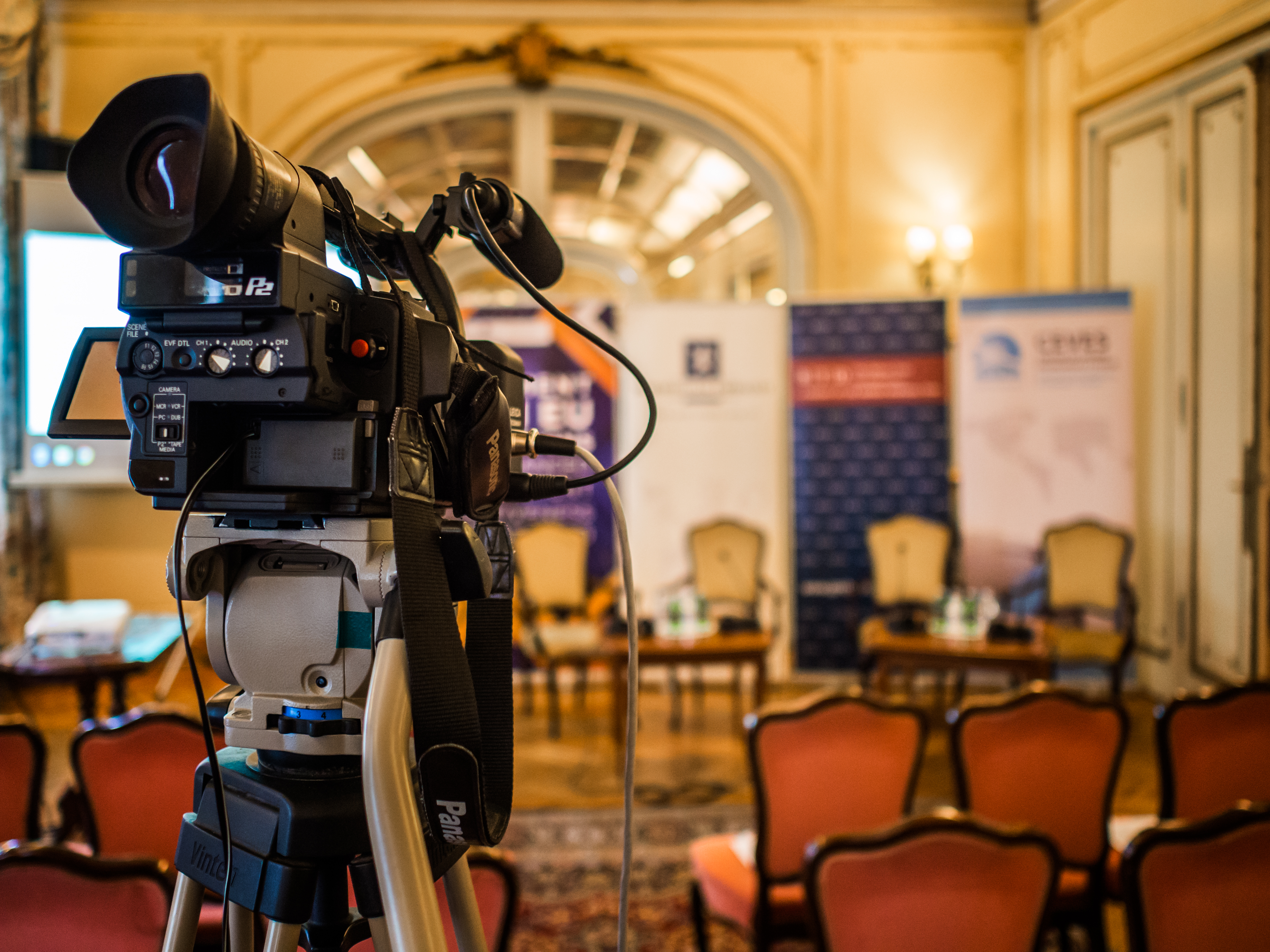
Conference “State Aid—A Friend or a Foe? EU Rules can help tell them apart”
May 27th, 2019 Belgrade
On May 27th, 2019, CEVES organized a conference entitled “State Aid—A Friend or a Foe? EU Rules can help tell them apart”. The Conference served to analyze the effects of state aid on development in Serbia, as well as the means by which the existing approach can be enhanced, led by experiences of other European countries– Croatia, Slovenia and the “Celtic Tiger” – Ireland, in particular. The first step towards this thought-out approach is full alignment with the EU rules. These rules, in addition to protecting unfettered markets and competition, also contribute to higher development effects of taxpayers’ resources.
This conference was financially supported by The Royal Norwegian Embassy in Belgrade and Balkan Trust for Democracy of the German Marshall Fund of the United States, in scope of project ‘’Alignment with EU Competition policy – raising awareness on potential benefits and strengthening capacity of key stakeholders in the area of state aid’’.
The conference was opened by CEVES Director Mr. Nemanja Šormaz, and addressed by H.E. Mr. Arne Sannes Bjørnstad, Ambassador of the Kingdom of Norway to Serbia, and Mrs. Gordana Delić, Director of the Balkan Trust for Democracy of the German Marshall Fund of the United States. Mr. Šormaz highlighted the importance of a well thought-out and enhanced approach in state aid policy design, as well as the interconnection between the essence and regulatory framework of the EU. His Excellency Mr. Bjørnstad stressed that the state aid, as development policy instrument is important, but prone to misuse. If state aid is to help lead to an efficient economy and regional convergence, it has to be subject to clear and strict rules, and it also must not be conducted at the expense of other market participants. Mrs. Delić expressed her satisfaction with the organization of this event, emphasizing the importance of further harmonization of the countries of the region with the EU regulations.
Mr. Međak, Vice President of the European Movement in Serbia and moderator of the first panel discussion, spoke about the complexity of resolving the case of state aid as part of Negotiating Chapter 8 (Competition policy). Mr. Antonijević, President of the Commission for State Aid Control, described both the current process of harmonization with the EU regulations, as well as the next steps that Serbia has to make. Mrs. Liszt, former Head of the Working Group for Chapter 8 in Croatia’s EU accession negotiation team, described challenges that Croatia had faced in this domain, that also resemble those that Serbia faces today. Mr. Nenadić, Program Director of Transparency Serbia, pointed out that transparency of state aid in Serbia had slightly changed for the better since 2015, but that new, more comprehensive information, as well as systematical evaluation of the effects was still needed. Panelists agreed that transparency enhances and facilitates building of trust of public towards government’s policies, and also leaves room for analytical assessments.
The second panel discussion, called “Investment promotion and SME support to accelerate development—the experience of Ireland” included CEVES Chairwoman Mrs. Kori Udovički and Chairman of IDA Ireland Mr. Frank Ryan. Mrs. Udovički underscored that EU regulation does not limit the space for development-oriented policies, but limits unsuited spending. She added that the policy on foreign direct investment promotion in the past led to a significant increase in employment in enterprises with mediocre effects on development, the trend which is currently changing for the better. However, linkages between domestic and foreign companies are still weak. Mr. Ryan stressed that Irish economic growth take-off came as a consequence of consistent development program, lasting for some 50 years, largely based on education, social dialogue and long-term cooperation of all relevant state institutions. He added that beside the education system overhaul and FDI attraction policies, great effort was made to build capable domestic SMEs.
Moderator of the third panel discussion, Mr. Šormaz, indicated that Serbia was at the crossroads, given that the topic of restructuring was largely closed, with high costs, and that the problem of high post-crisis unemployment was resolved by attracting labor-intensive FDIs. Director of Serbia’s Development Agency, Mr. Gazdić, said that there was indeed a shift in type of the attracted FDIs lately, towards more sophisticated projects, creating higher value-added jobs. The next step is to support development of local suppliers, so that they can become part of the newly created value chains. Mr. Ryan sad that Ireland had wandered a lot until it systematically assessed its advantages and disadvantages. The key was in selecting the right sectors that were to be supported, and setting measurable goals. Member of the Fiscal Council of Serbia, Mr. Vučković, stressed that the policy of subsidizing investments was generally wrong, and that state influence on the economy should be very little or none; but that it was in a way extorted, given that many European countries also heavily rely on it. Better results could be obtained if business environment and rule of law were improved, Mr. Vučković concluded.
The last panel was moderated by independent expert for public administration reform, Mrs. Pavlović Križanić. Former Chairman of Competition Protection Office in Slovenia, Mr. Plahutnik, emphasized that Slovenia made many mistakes during the early years of its State aid policy, but learned a lot from them. The prevalent stand on State aid in Slovenia that its sole purpose was in protecting enterprises in difficulty from bankruptcy was given up through alignment with the EU regulation. Implementation of development policies requires both the efficient public administration and trained public servants, where Serbia notably lags behind, as Mr. Maravić, Director of the National Academy of Public Administration indicated. Serbia also lacks a strategic planning document that would offer civil servants a vision to follow and signal to the National Academy of Public Administration what type of capacity needs to be built. Mr. Pejović, President of the State Audit Institution (DRI), pointed out that the vision of the DRI was to help the state manage its resources wisely, led by reliable information. Mr. Pejović further noted that DRI’s strategic plan had been moderated to turn more to public funds users, their needs and requirements, in order to enhance more effective and efficient use of public funds.
Mr. Šormaz closed the conference by highlighting the importance of alignment with the EU rules and the need for broader context in which development policy should be built, with State aid being just a small piece of the puzzle. This conference, although it cannot solve the problem of this vision lacking, certainly makes one step forward in its formulation.
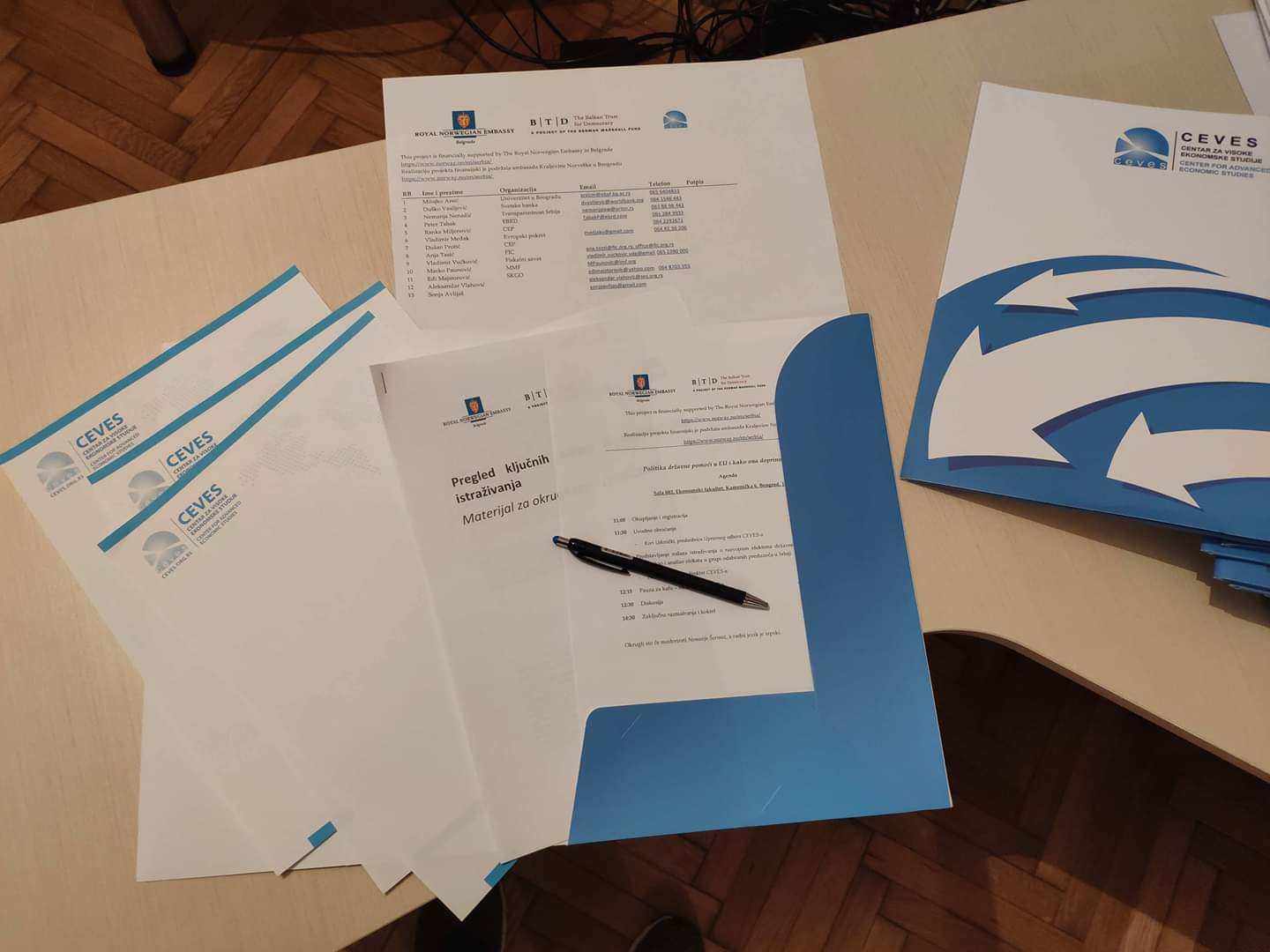
(SR) Okrugli sto “Politika državne pomoći u EU i kako ona doprinosi razvoju”

“Challenges and Opportunities after Slow Economic Recovery: the Case of Serbia”
Presentation titled “Challenges and Opportunities after Slow Economic Recovery: the case of Serbia” was held on October 25, 2018 at the Faculty of Economics, University of Belgrade.
Professor Mihail Arandarenko, Professor of the Faculty of Economics and Chairman of the Board of the Foundation for the Advancement of Economics (FREN) announced Ms. Kori Udovički, an old co-worker and founder of both FREN and CEVES, and currently president of the CEVES Governing Board.
The event was attended by representatives of the academic economic community, representatives of the media in the field of economics, students of economic sciences.
The presentation gave a look at the economic structure of the Serbian economy and the reasons for growth slower than expected, as well as the prospect of future economic growth. The presentation talked about the structure and competitiveness of the Serbian economy, from the perspective of institutional sectors, defined on the basis of ownership, size and activity of business entities, as well as on dynamics and sources of growth, with a view to the period after the economic crisis.
The presentation was organized in cooperation with Foundation for the Advancement of Economics and the Center for Advanced Economic Studies. You can download the ppt presentation that was used (available on Serbian only).
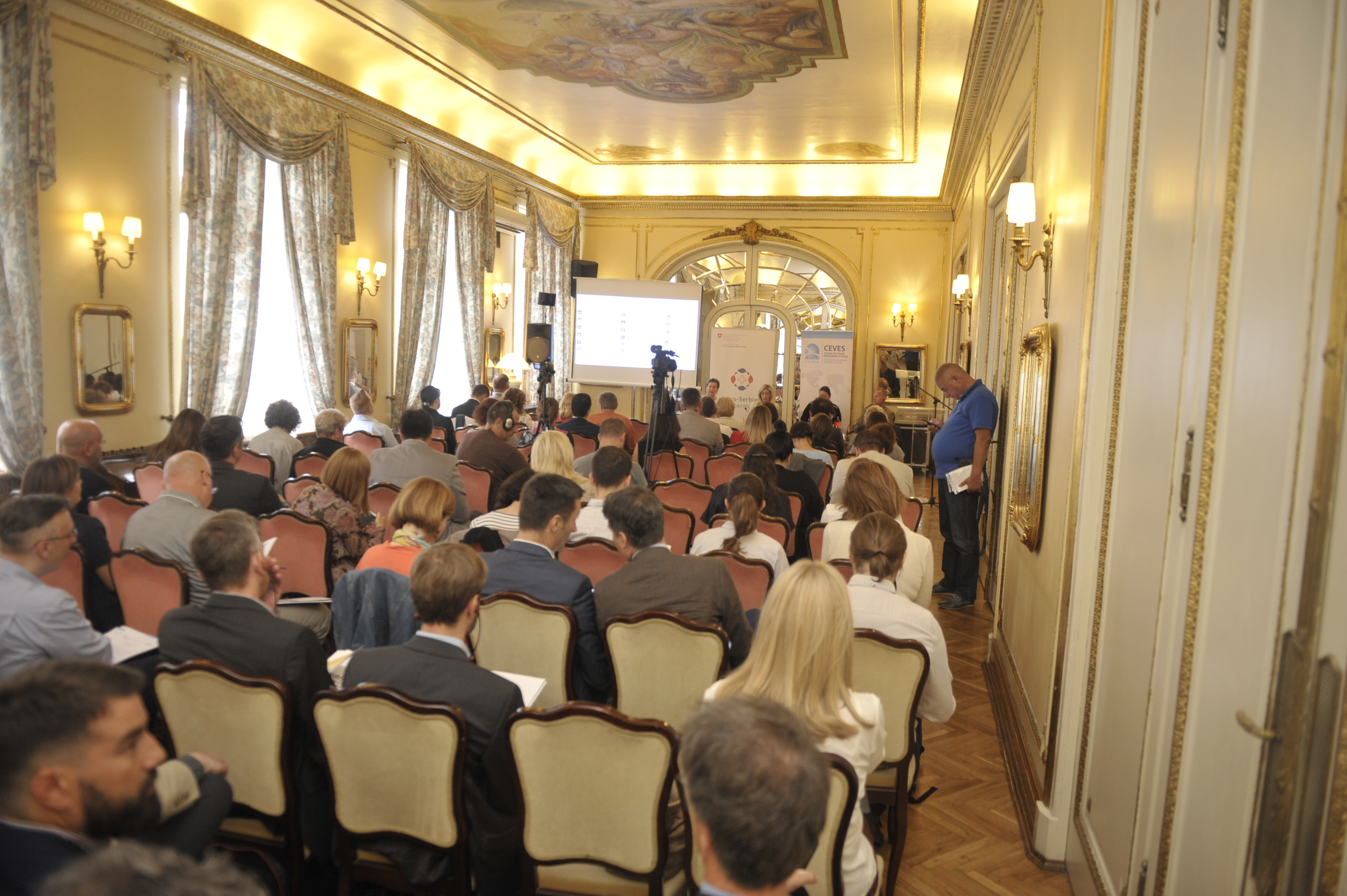
Conference “Serbia 2030: The Facts and the Options”
August 28th, 2018 Belgrade
The Conference, “Serbia 2030: The Facts and the Options“, held on 28. August 2018 in Belgrade presented the facts and possibilities of sustainable development in the Republic of Serbia by 2030 and fostered a broad debate and discussion among all relevant stakeholders: members of the government working group for the implementation of Agenda 2030, public and private sector representatives, international organizations, donors, civil society and the academic community. The Conference was opened by Chairwoman of the Center for Advanced Economic Studies Kori Udovički, Minister without portfolio responsible for demography and population policy Slavica Djukic Dejanovic, Director of Swiss Cooperation Office, Swiss Embassy in Serbia Ursula Laeubli and the UN Resident Coordinator Karla Hershey.
Minister Djukic Dejanovic emphasized that the focus of sustainable development goals (SDGs) are citizens and that no one should be left behind. When it comes to direct implementation of the SDGs, this work is shared between everyone – because it is impossible to achieve goals without the widest circle of actors in society. Ms. Laeubli stressed the importance of SDGs and that they are incorporated in the framework of the Swiss Cooperation Strategy with Serbia 2018-2021, as well as the Swiss-Serbian Migration Partnership, and that Switzerland will continue to support the nationalization of SDGs in Serbia. Ms. Hershey spoke about the work of the UN in Serbia, the efforts of the Government of the Republic of Serbia in achieving the goals and supporting the dialogue about SDGs in society.
An important topic of the conference was the complementarity between the SDGs in Serbia and the EU accession process. Minister of European Integration Jadranka Joksimovic, Head of Cooperation at the European Delegation Yngve Engstrom, UN Resident Coordinator Karla Hershey and CEVES President Kori Udovički spoke at the panel dedicated to this issue. Minister Joksimović underlined that it is important to talk about the topic of sustainable development, but that we must know that we have already established the context – the process of Serbia’s EU accession has paved the way for Serbia’s development vision. Mr. Engstrom and Ms. Hershey spoke about the European Union’s experience in fulfilling the SDGs, as well as on the benefits of Serbia from the process of European integration in the implementation of Agenda 2030.
The second panel entitled “The starting point – analysis of the challenges” began with the presentation of findings from the brochure titled “Serbia’s Sustainable Development: how are we doing?” done by CEVES. The brochure represents a useful guide to the most important challenges of sustainable development, as well as the benefits that Serbia can rely on in order to accelerate its development. Professor at the University of Belgrade, Faculty of Economics, Mihail Arandarenko, spoke about positive aspects that are hidden below the surface, whose drivers are de novo firms, as well as the problem of Serbia with the export of labor. Olivera Vukovic, Executive Director of SeCons, an organization that has been tracking SDGs for many years, noted that citizens’ trust in the institutions as one of the main challenges of the development process is lacking, as well as lack of indicators for monitoring progress. Mijat Lakićević, Deputy Editor in Chief of the New Magazine, as key obstacle to Serbia’s growth stated legal restriction and bad guided incentive policy. Discussion was moderated by Jovan Protić, National Coordinator for Serbia, ILO.
The final panel entitled “The First Steps – a Debate about the Opportunities” was opened by Christoph Lang, Senior Adviser, Global Institutions Division, Swiss Development Cooperation from Switzerland. Mr. Lang spoke about Switzerland experience in the implementation of the Agenda 2030, their development of a voluntary report and the current state of monitoring of the SDG implementation. Gordana Matković, Program Director of the Center for Social Policy, pointed out that increasing the efficiency, at least as far as the social sector is concerned, is our only opportunity, as well as working on development of full cross-sectoral collaboration, and that investing in education is very important because it is an accelerator for other goals. In the panel, we also talked about ecology, where Slobodan Perovic, Assistant Minister, Ministry of Environmental Protection, spoke about Serbia’s opportunities for creating green jobs and turning towards the circular economy with the possible development of a Green Fund in order to achieve the desired progress. Đorđe Krivokapić, Assistant Professor at the Faculty of Organizational Sciences in Belgrade and the founder of the Share Foundation, addressed the factors of the fourth industrial revolution and the development opportunities that arise from this, such as the impact of technology on the monitoring system, the capacity for public policy analysis and that they can present part of the solution for each issue. The discussion was moderated by Ms. Branka Andjelkovic, Program Director, Public Policy Research Centre, Belgrade.
The conference was held within the project “Preparatory Project for a Society-wide Dialogue Platform on SDGs for Serbia” supported by the Swiss Government and implemented by Center for Advanced Economic Studies (CEVES). Switzerland supported the project with 39 000 Euros, with the aim to initiate a dialogue The event was organized prior to a fall 2018 season that starts with a UN Mainstreaming, Acceleration and Policy Support (MAPS) mission and moves on to an upcoming regional conference on SDGs for exchange of regional experiences.

Final Results of the Call for Project Proposals
Center for Advanced Economic Studies (CEVES) within the project “Using Sustainable Development Goals to Reposition Social Science Research: Pilot project” and published Call for proposals “Towards Meeting the Sustainable Development Goals in Serbia: Job Quality and Economic Structure, How are They Linked?” announces the final results of the evaluation and selection process of received applications.
The Selection Committee have selected and awarded the best evaluated applicant: University Metropolitan – FEFA.
After period of complaint had expired, the Committee determined Final assessment and selection list of applications. Since CEVES did not receive any complaint, the details on the Final assessment and selection list remained the same as the Report on the evaluation and selection process of applications with preliminary results.
Please find enclosed Decision on the Final assessment and selection list of submitted applications; and Report on the Final assessment and selection list.

CEVES announces call for associates and job vacancies
1. Economist, Lead researcher
2. Economist, Researcher
3. Economist, analyst
Please send your CV and motivation letter to office@ceves.org.rs by June 22nd, 2018. Please quote if you are appying for permanent work position, or as an associate/consultant on project(s). In the motivation letter, describe what would you like to work on, why you are interested to work in CEVES, and what are your strong / weak sides. The motivation letter should not exceed one page. Please note that honesty is recognized and appreciated.
The selected candidates will be invited to testing and interview starting 01.07.2018. Candidates who applyed for project cooperation will be contacted separately.
Additional note – validity of the call:
- Job vacancy:
- First cut will be made on June 22, 2018, when we will approach to validating received applications and inviting selected candidates for testing;
- The call will be opened even after 22.06.2018, unless we find suitable candidates in the received applications by that date, thus we encourage you to apply after 22.06.2018 as well.
- A call for for associates is open.
Full text of the call – available only on Serbian.
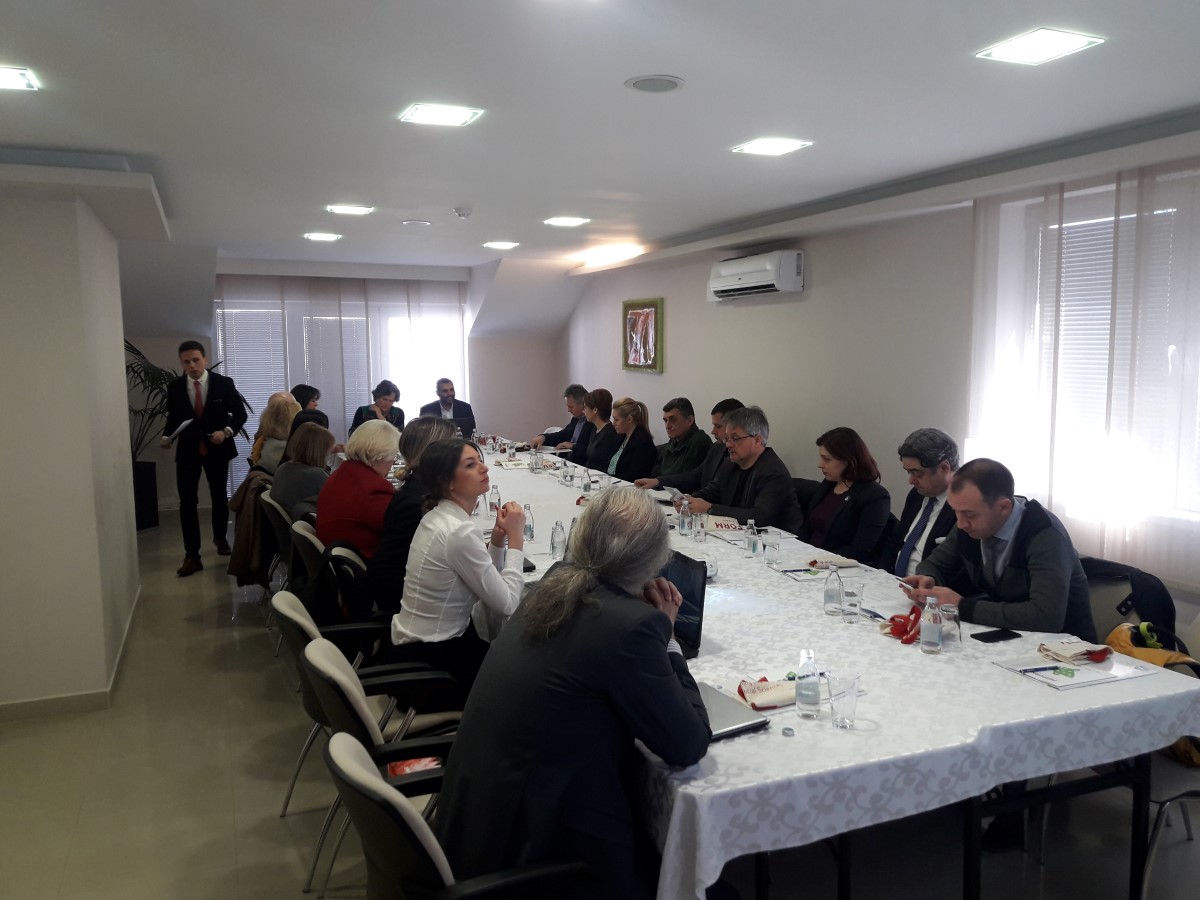
Workshop “How Quality of Economic Growth Works on Human Development”
March 28th, 2018 Niš
The Center for Advanced Economic Studies held a third workshop on March 28, 2018, entitled “How Quality of Economic Growth Works on Human Development”. The workshop was held within the project “Using the Sustainable Development Goals as a Guide to Redirecting Social Sciences Research: A Pilot Project” which supports the PERFORM project (PERFORM is a project of the Swiss Agency for Development and Cooperation implemented by HELVETAS Swiss Intercooperation and the University of Freiburg), as a part of the wider “Preparatory Project Platform for Social Dialogue on Sustainable Development Goals in Serbia” supported by the Swiss Agency for Development and Cooperation.
This workshop were focused on the topics of association and affiliation: service and manufacturing sectors, domestic and foreign companies, education and economy. We believe that all these types of connections are necessary for creating greater added value in the economy and generating sustainable dignified jobs. The South of Serbia is known for former giants who have undoubtedly left valuable knowledge and resources, i.e. as we call them: “bulk capacities”. We have tried to answer the questions of how to employ, multiply and modernize these capacities.

Corporative management in family business by Katarina Đulić
Family business is the oldest and most common form of economic organizations in the world. In many countries, family business represents a big number of firms and with a significant contribution to the economy and employment growth. For example, 75% of registered companies in UK are family enterprises, whilst in India, Far and Middle East that number is staggering 95%. In spite of all relevance they have on the economy, these firms, unlike other type od companies, were not given enough support, not even from the legislators nor the creators of economic policies.
Family firms outperform all the firms that are not based on family relations. Company Thomson International has made a simple index for family firms and other types of enterprises in bigger European countries in the period of 10 years, until December 2003. In Germany, index of family firms has increased by 206%, whilst the prices of shares of companies that are not in family property, have only augmented for 47%. In France, this index has increased by 203% and for other firms only for 76%. It is necessary to support this part of economy and encourage families to found these kind of enterprises.
You can read more about family firms here – porodične firme


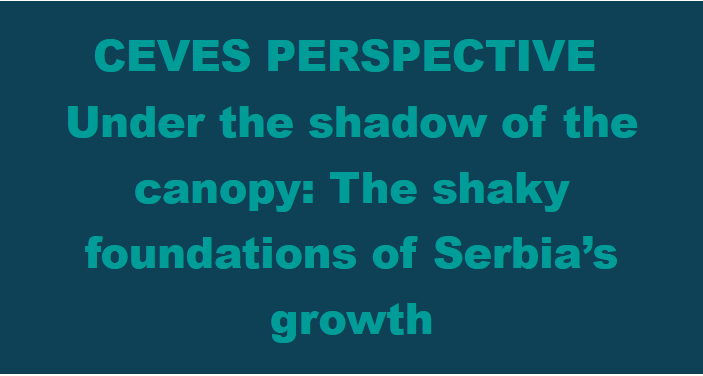

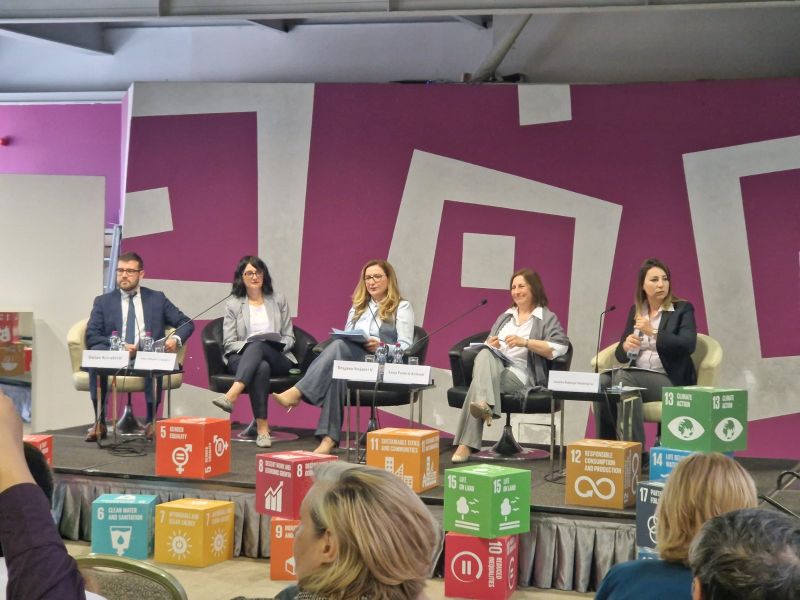
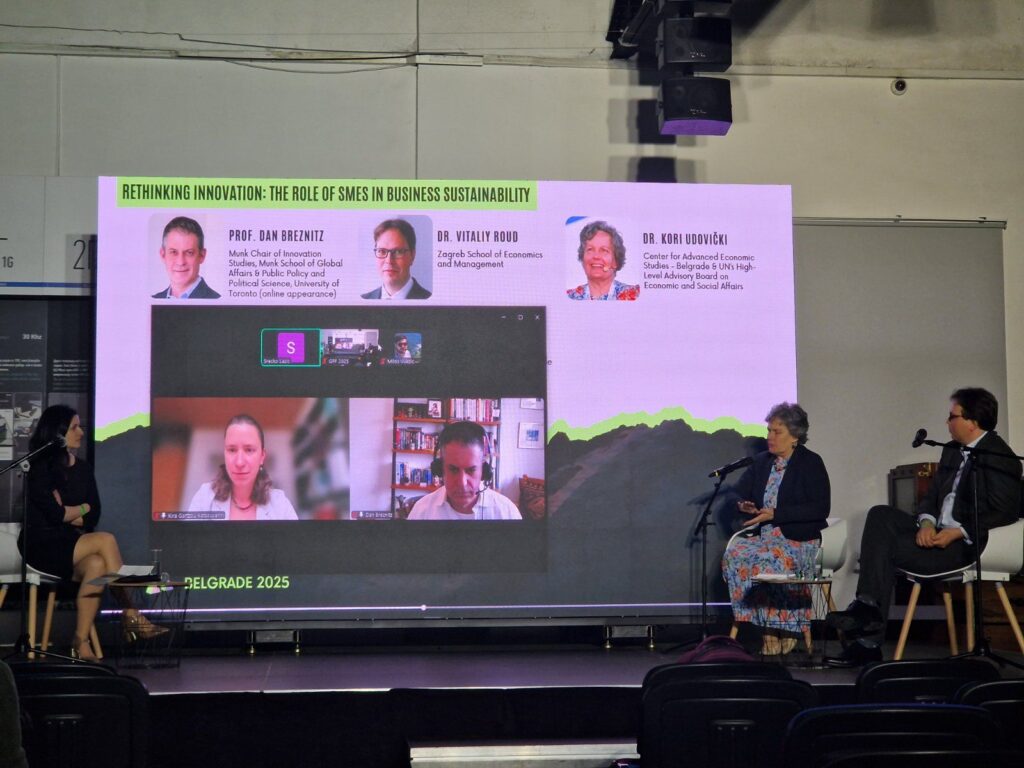
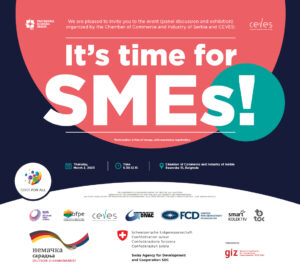



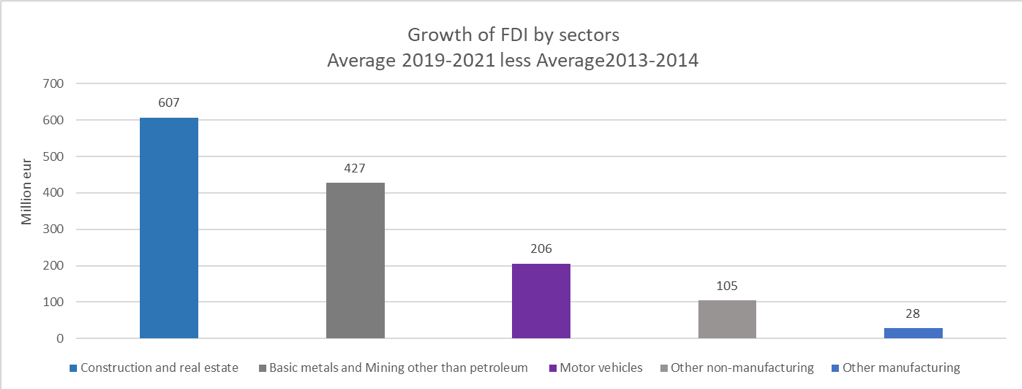










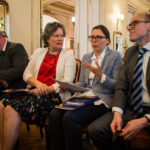




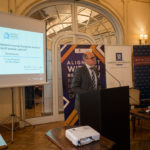






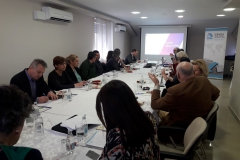
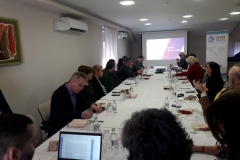
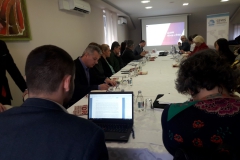
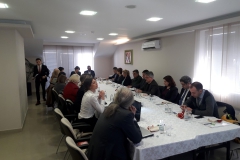

 SR
SR